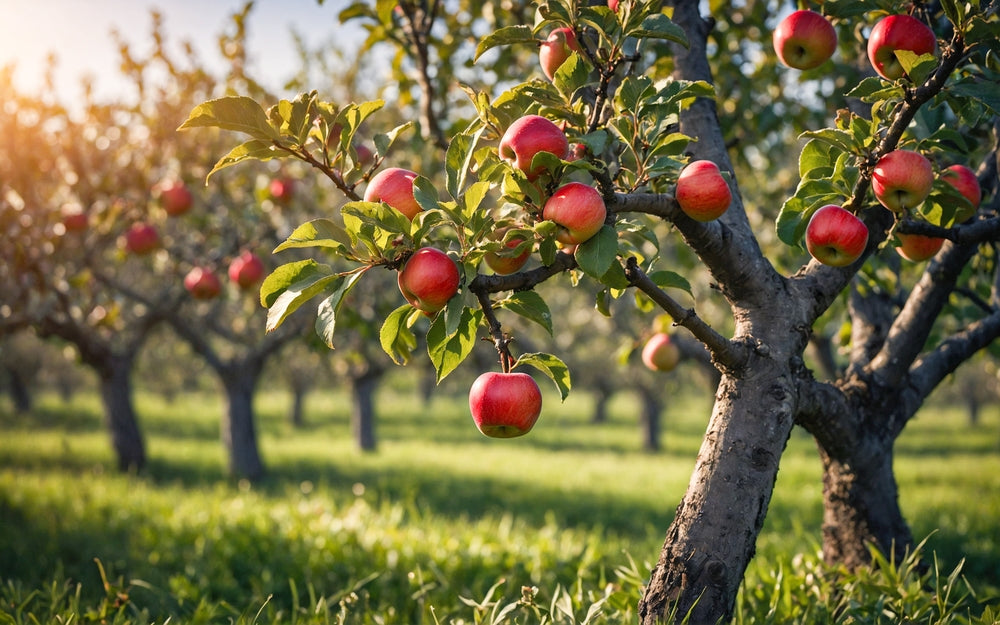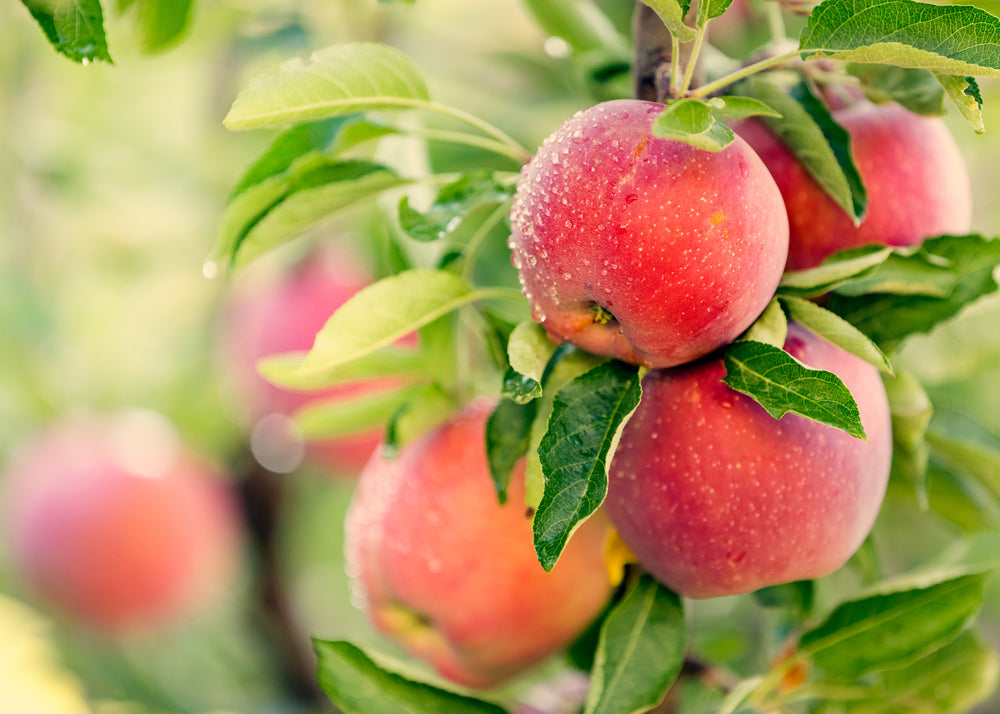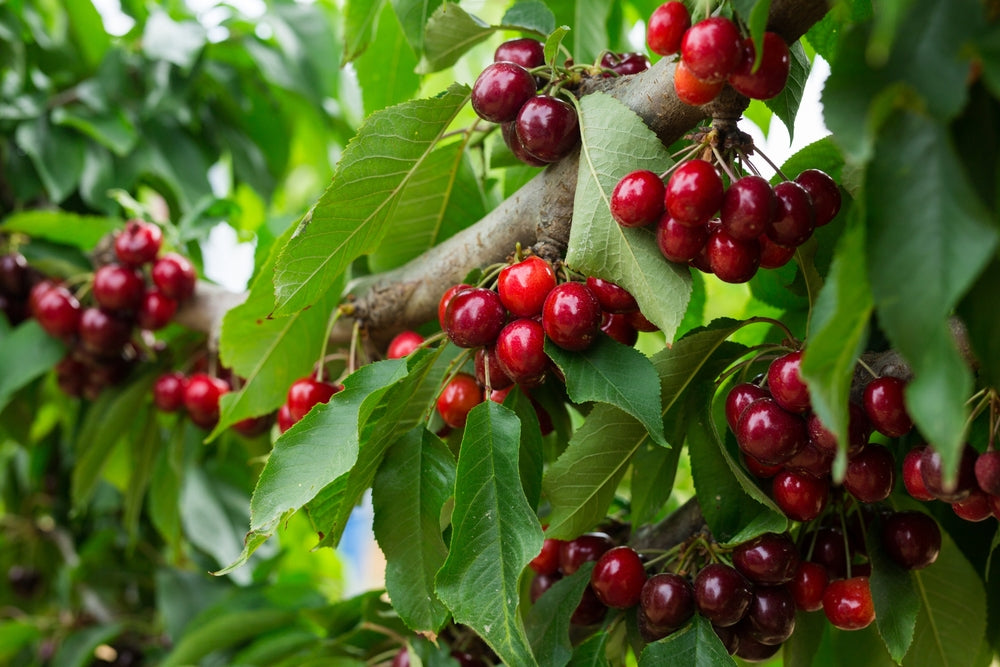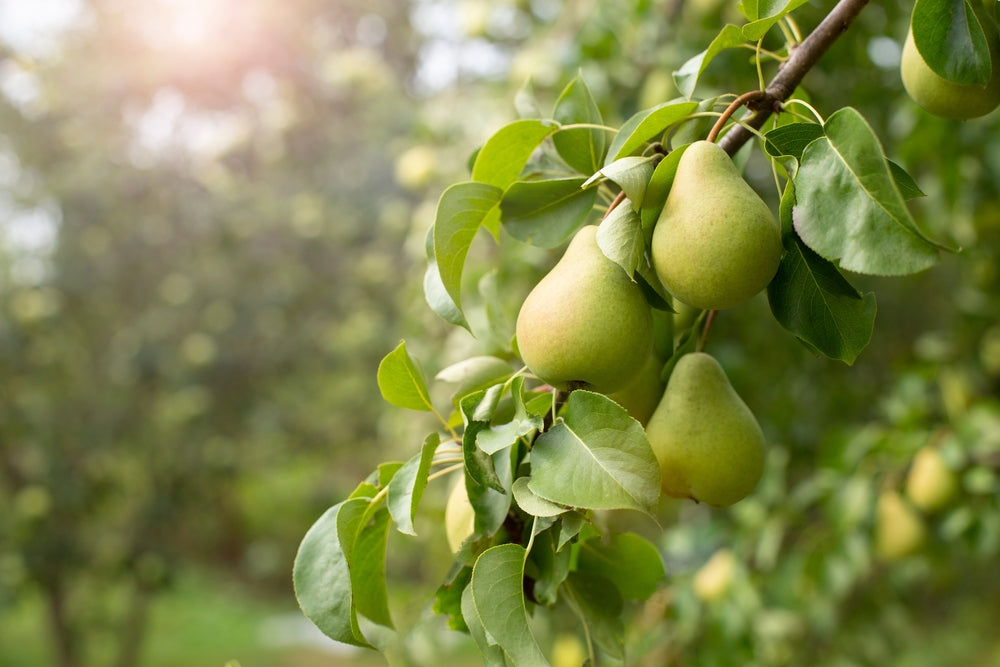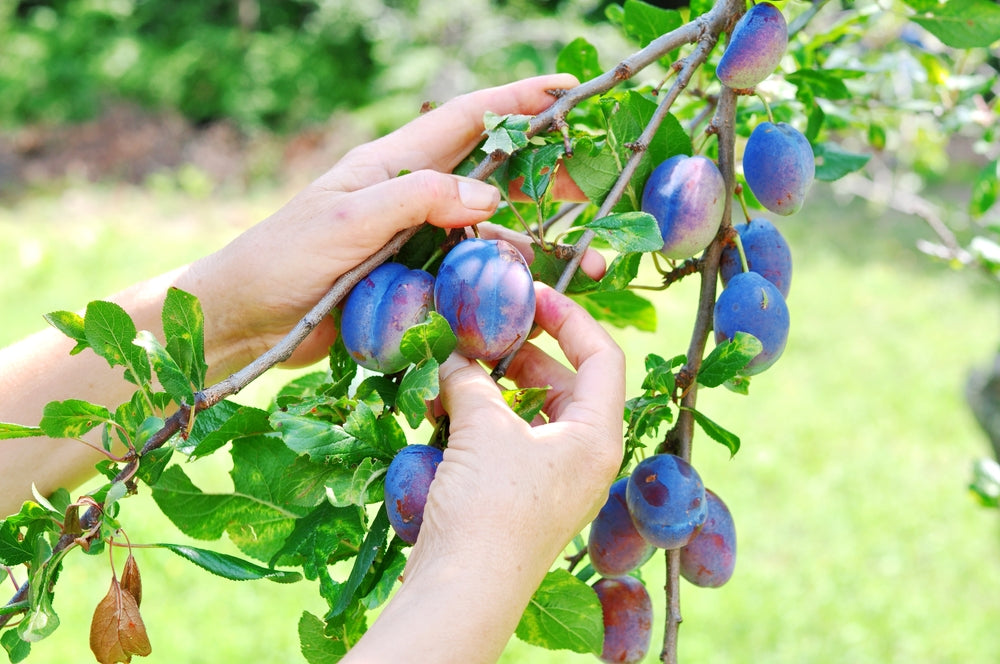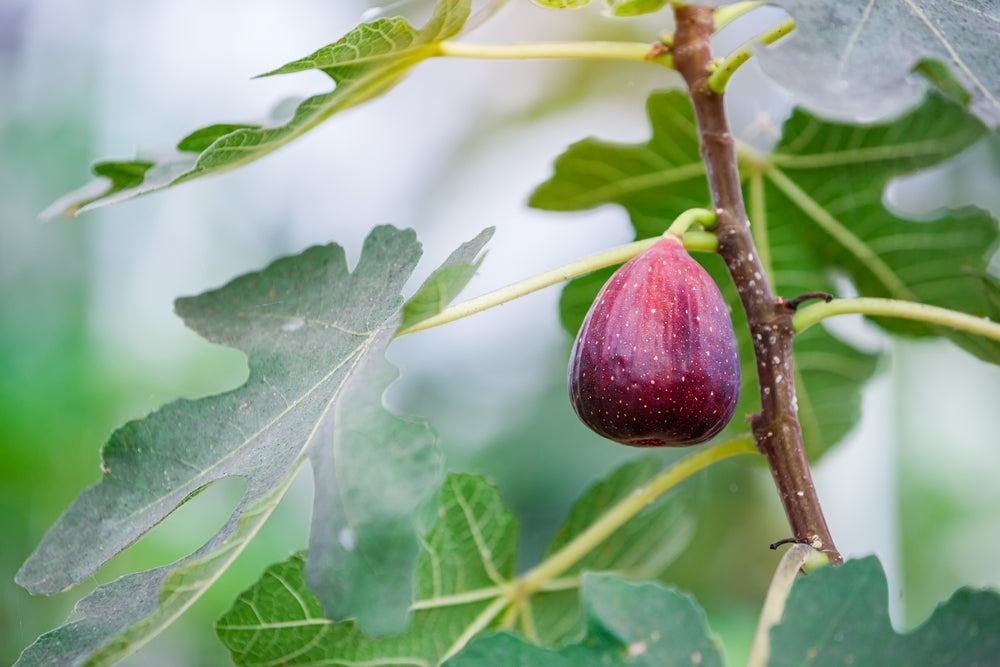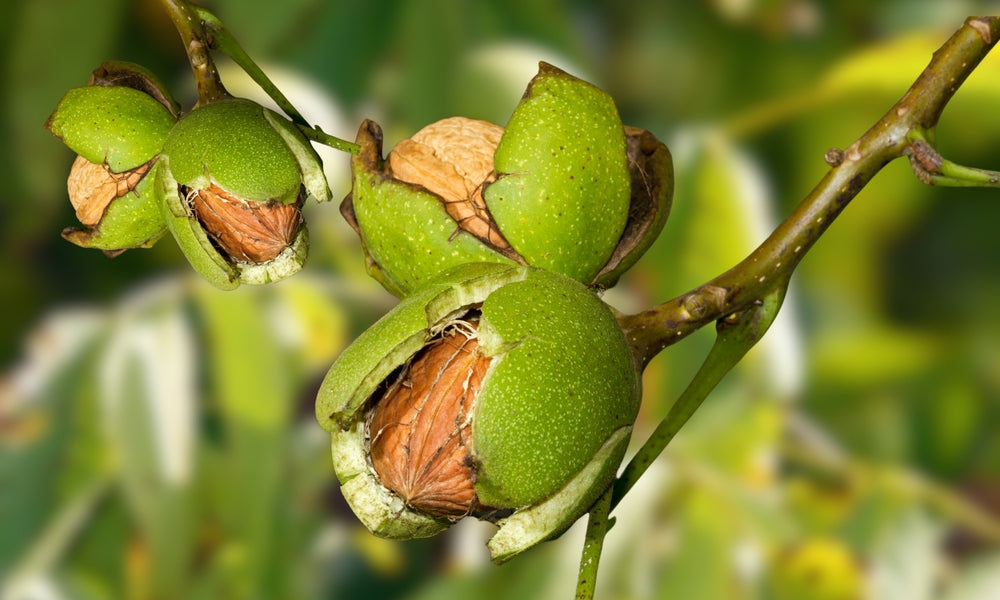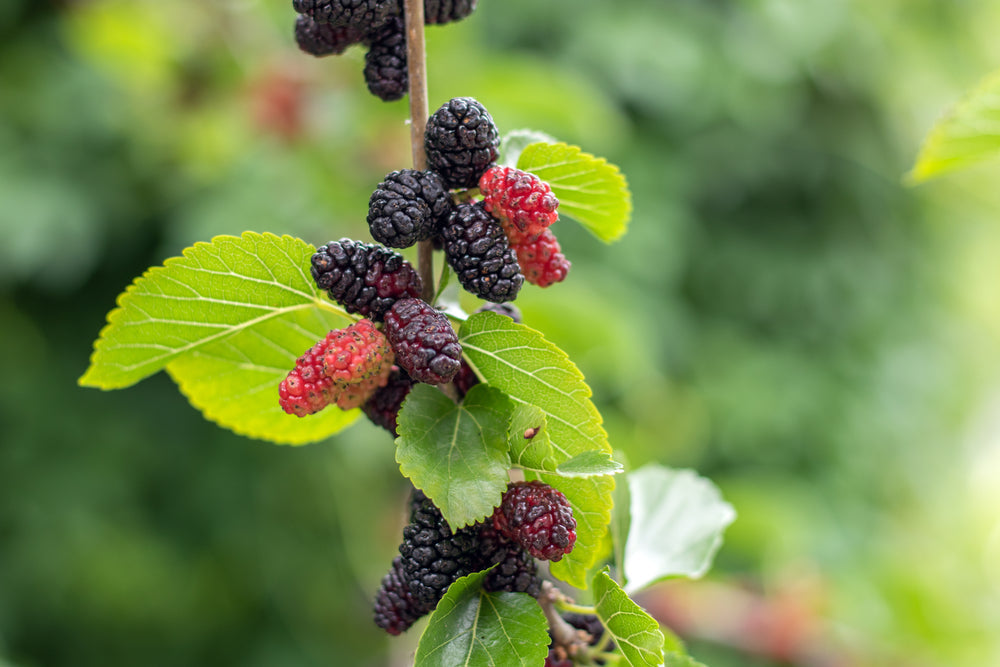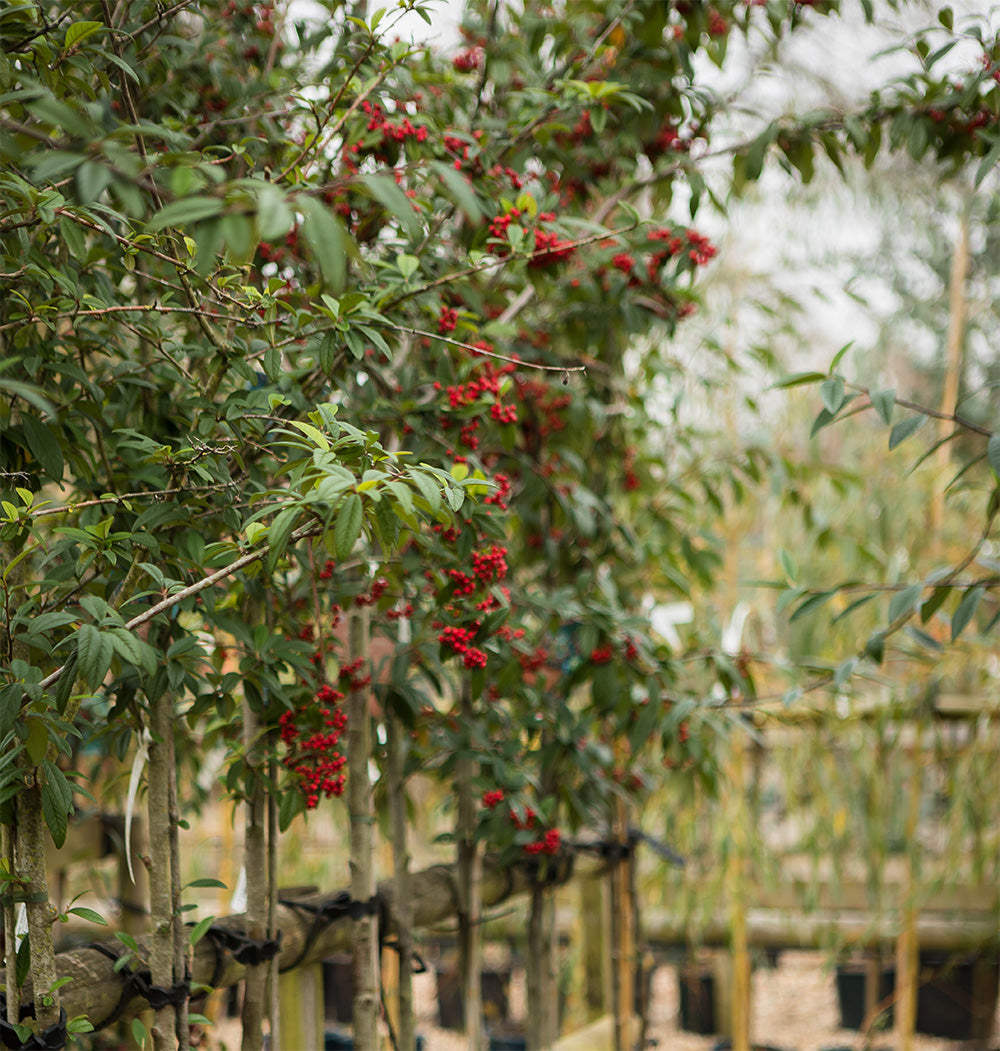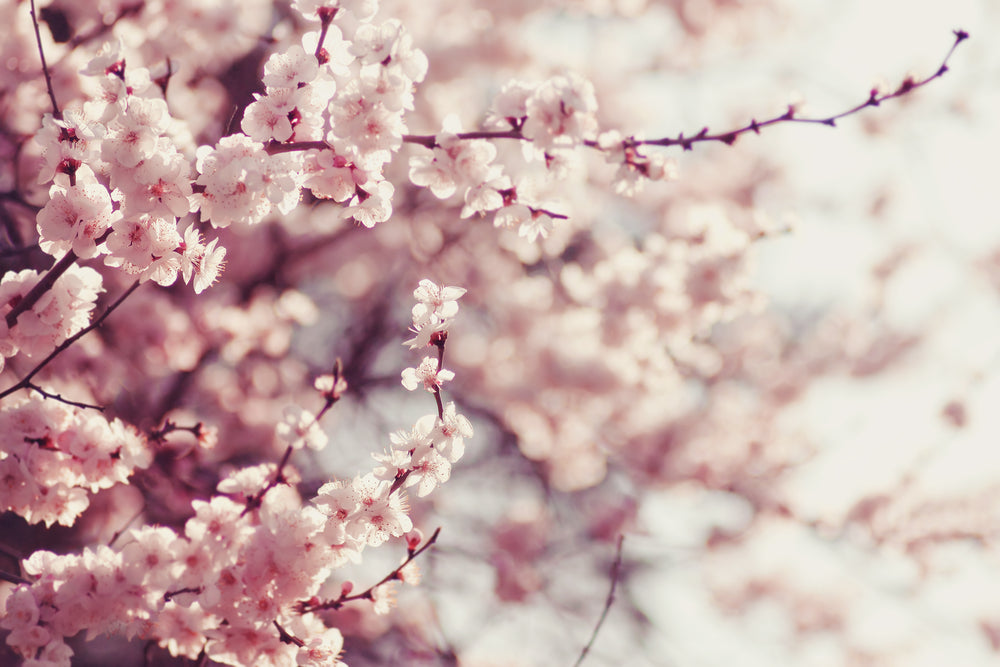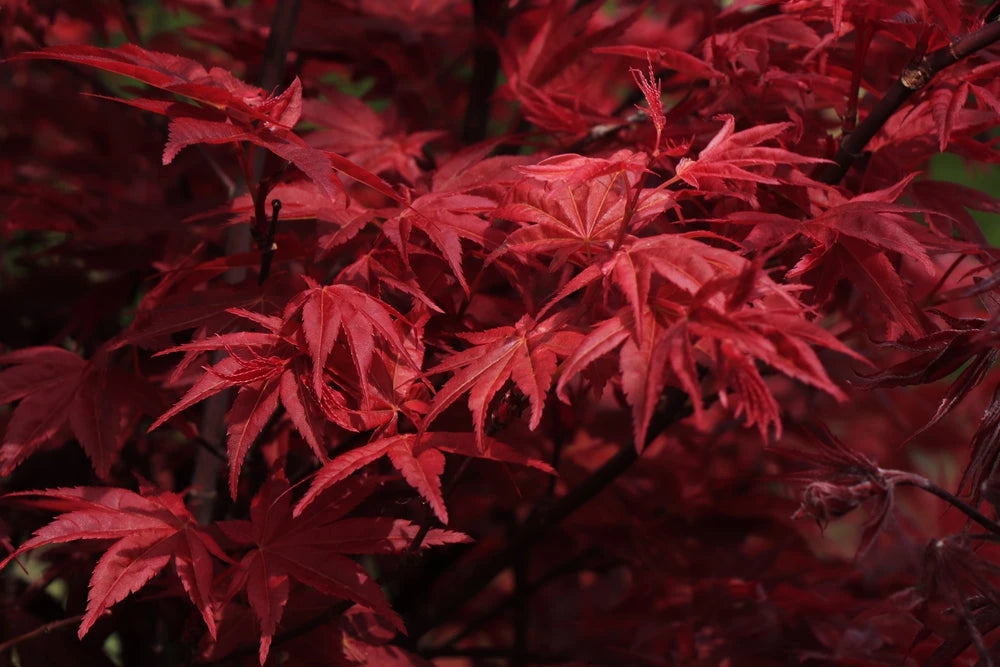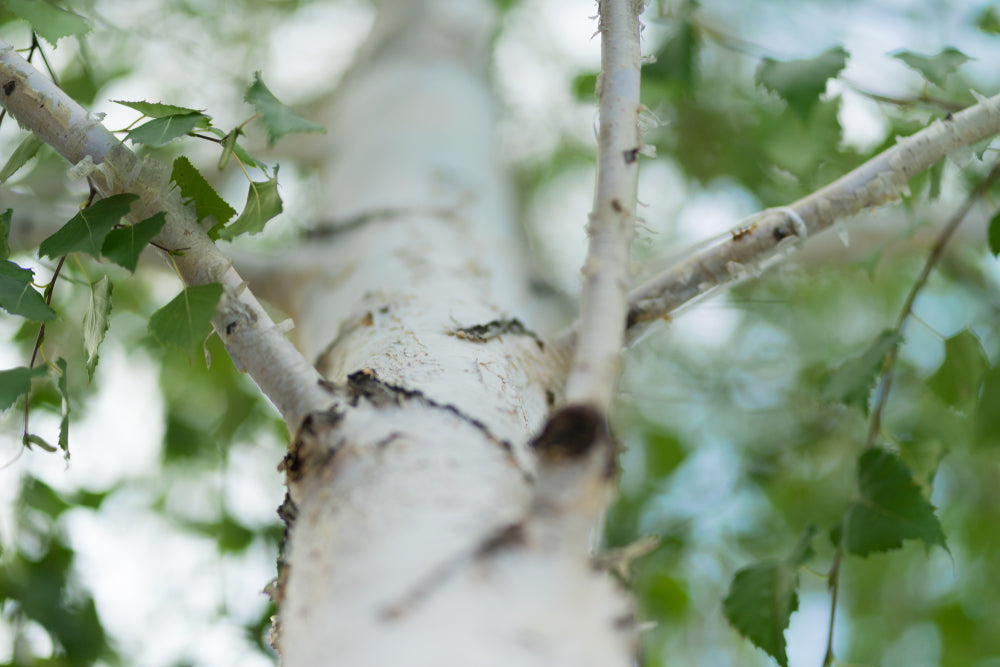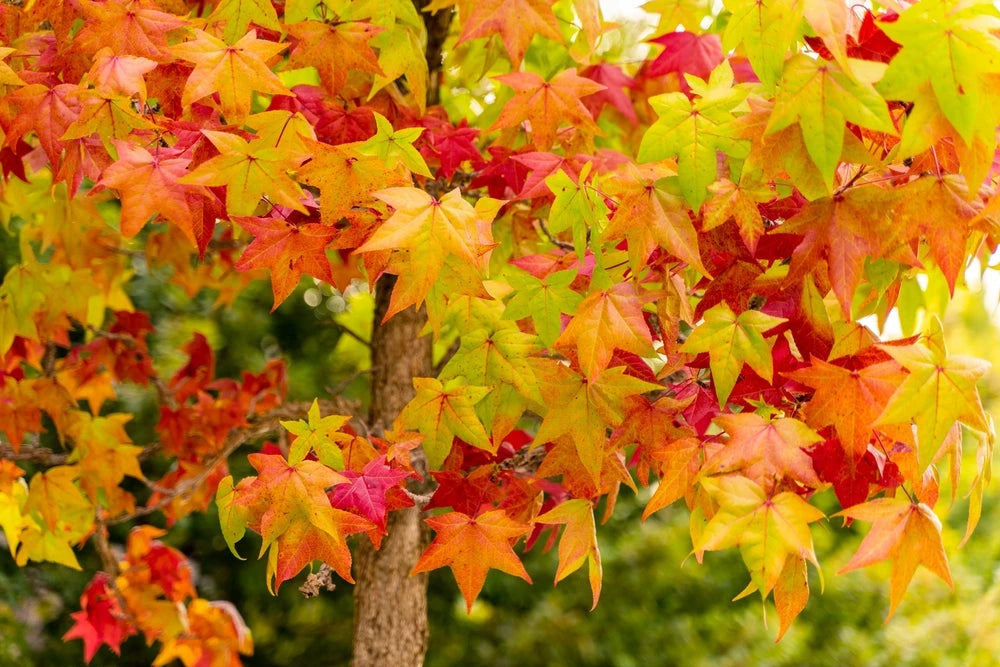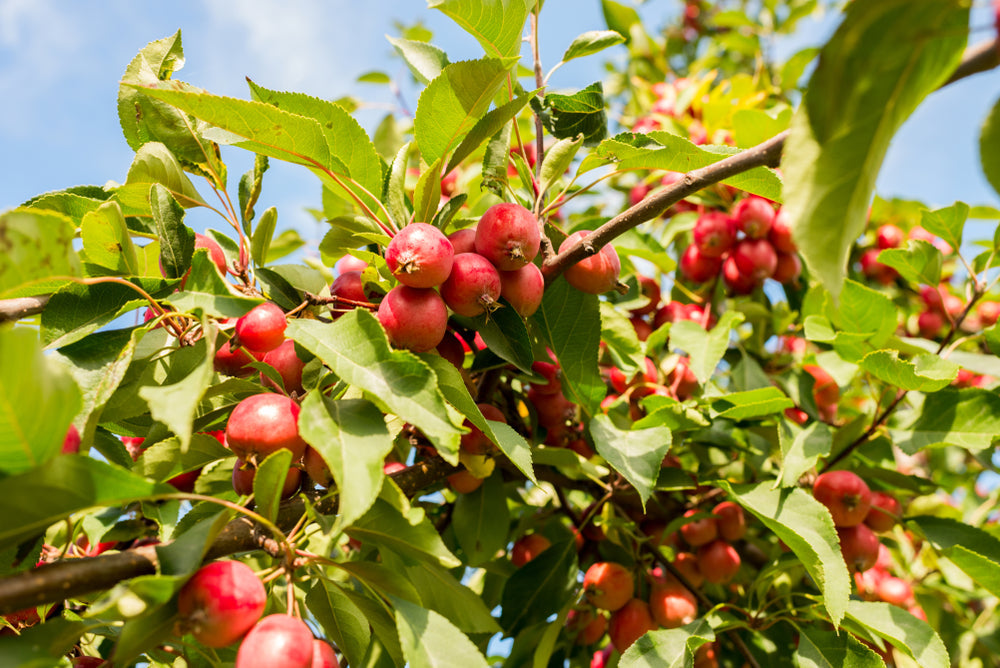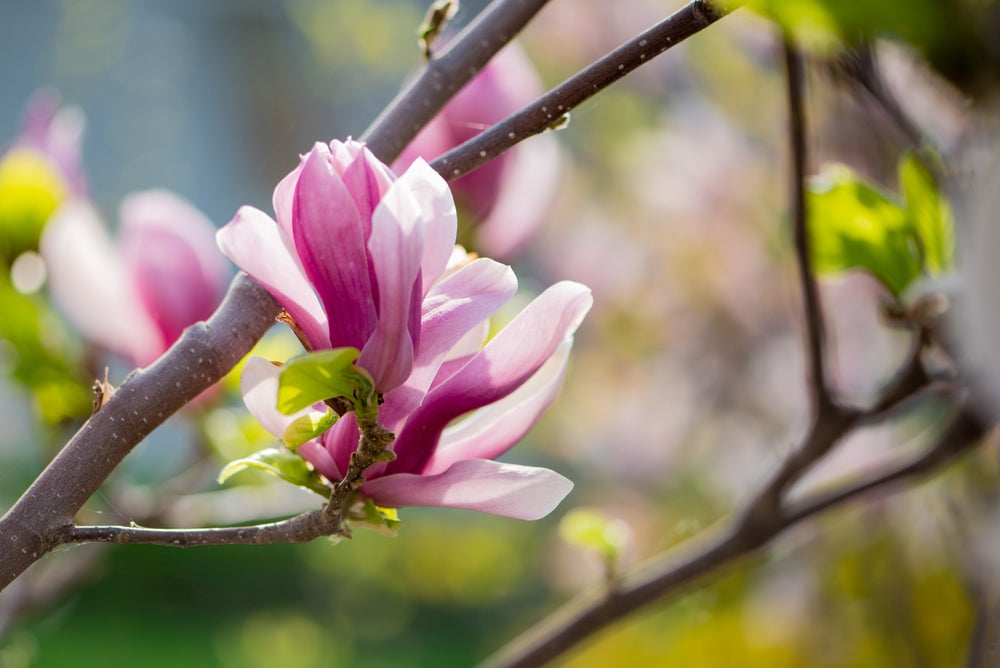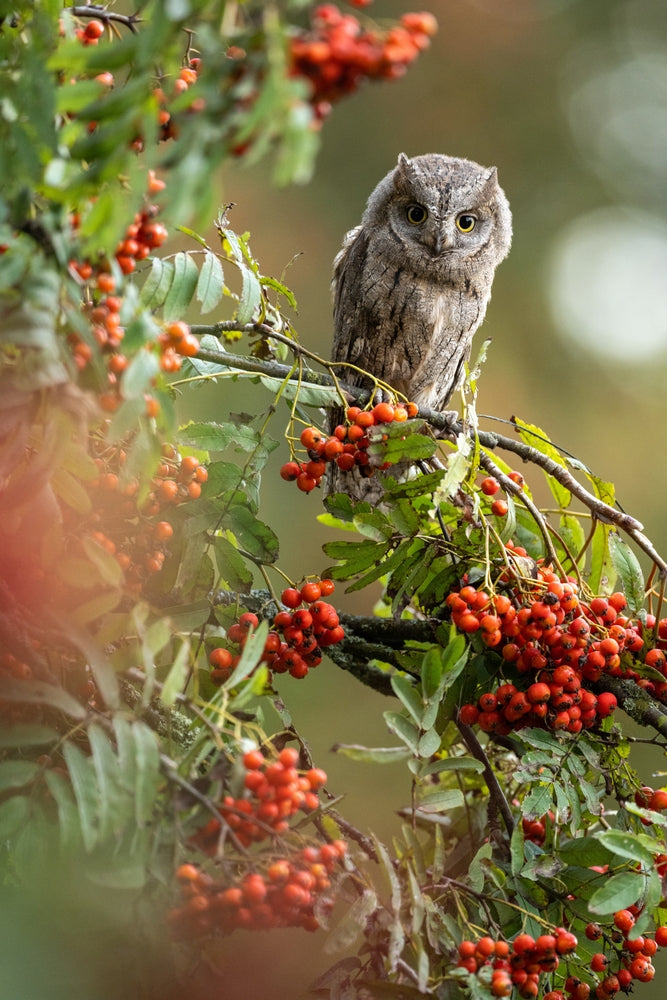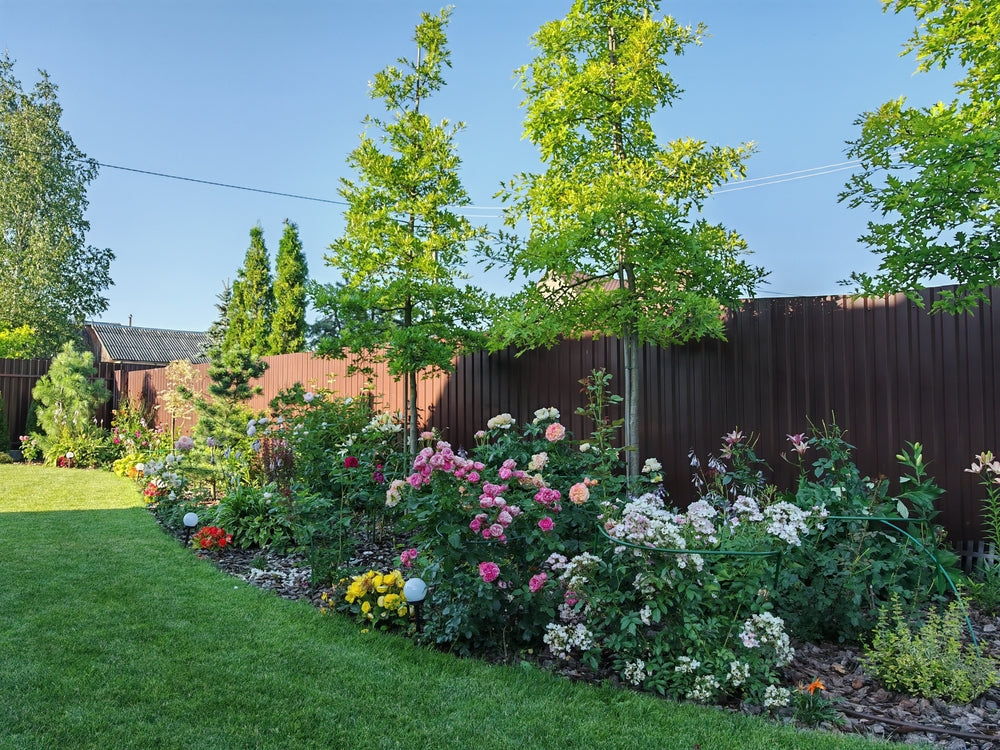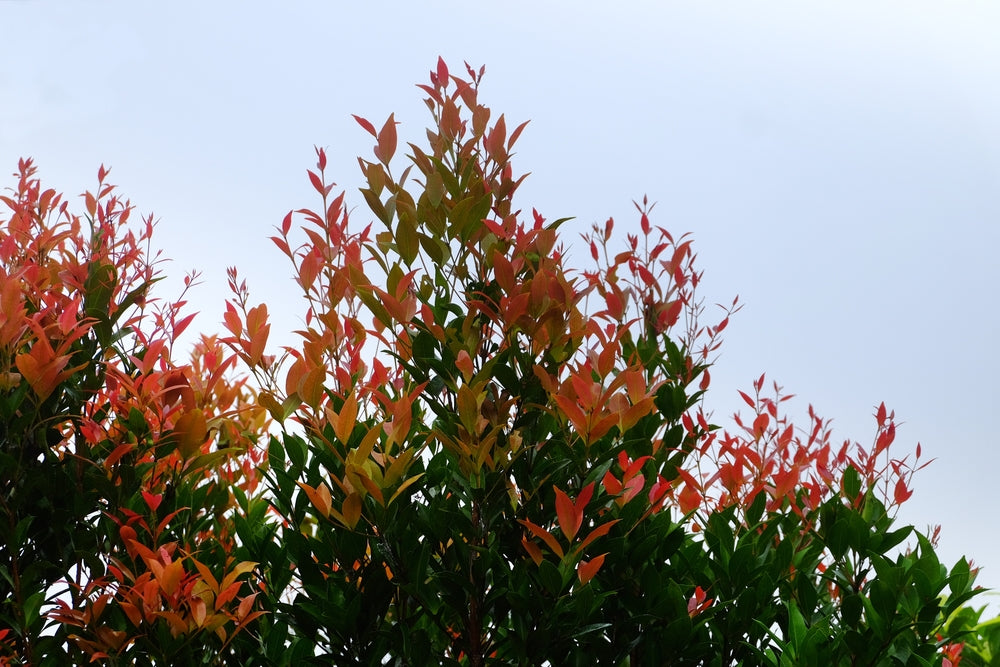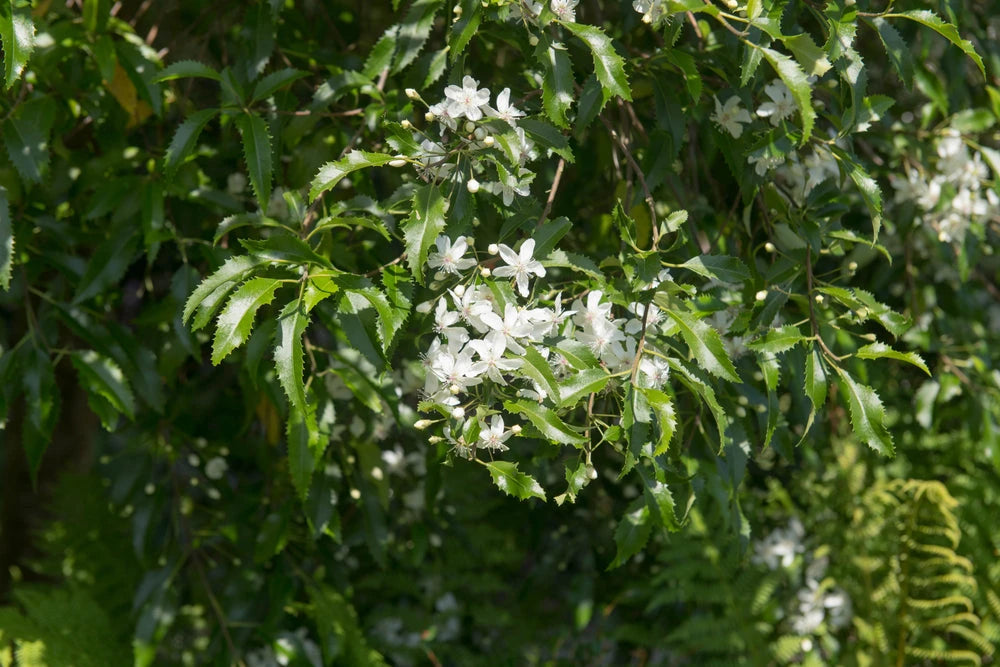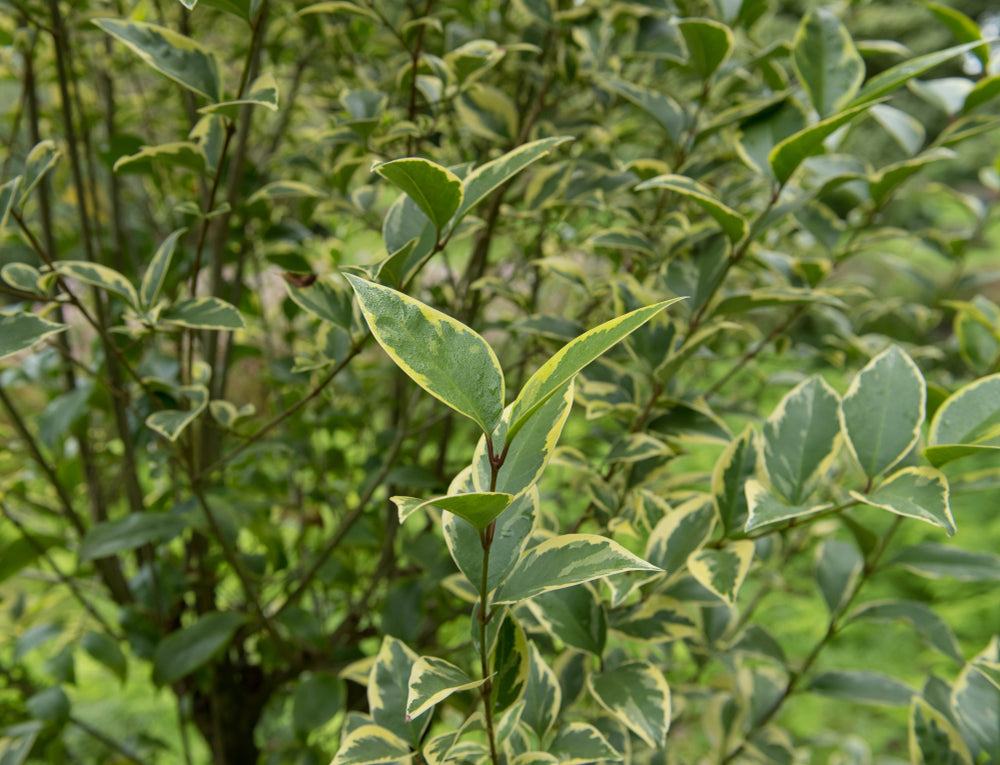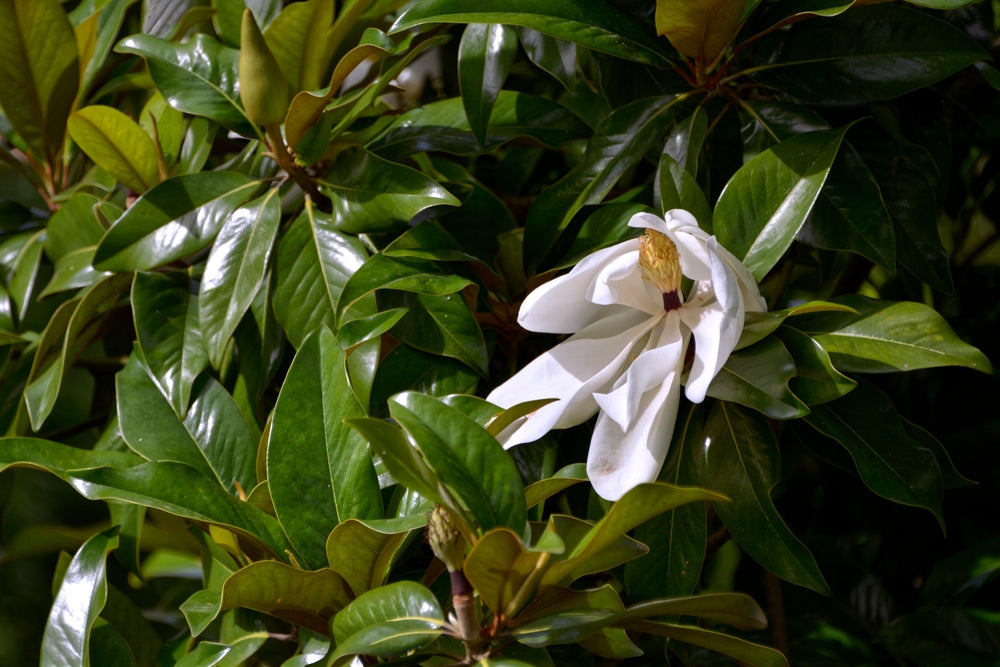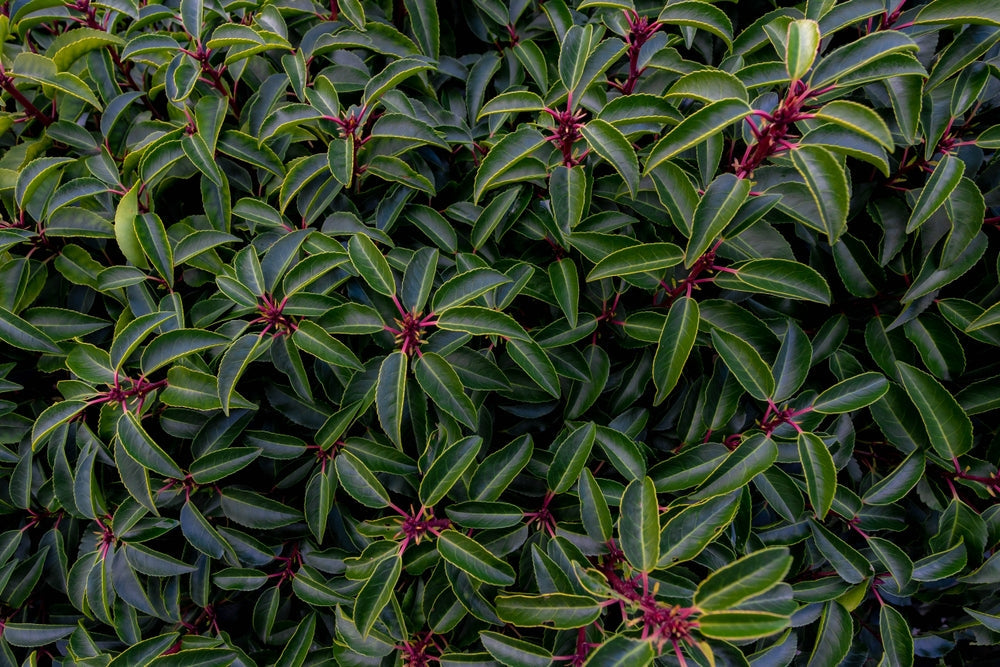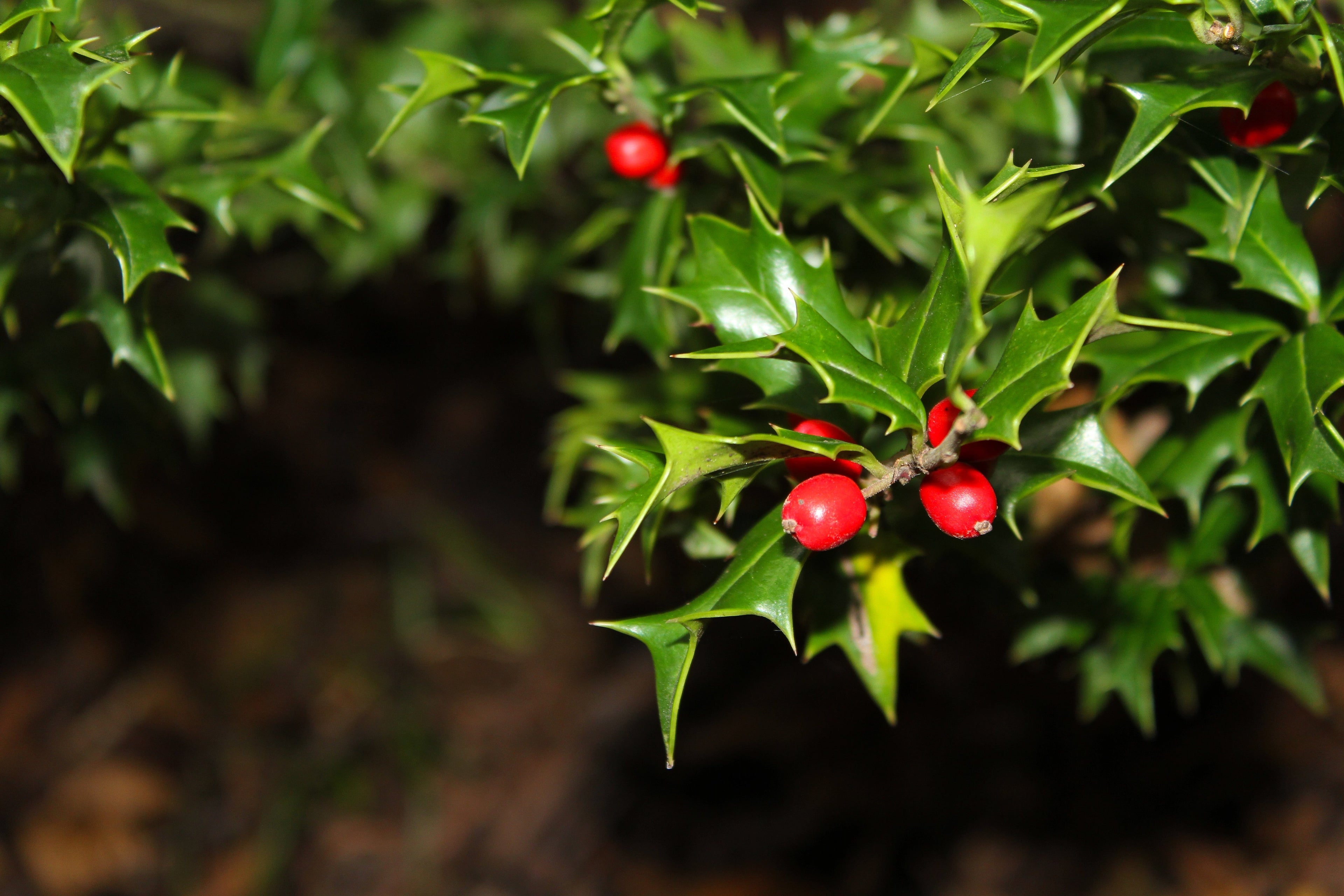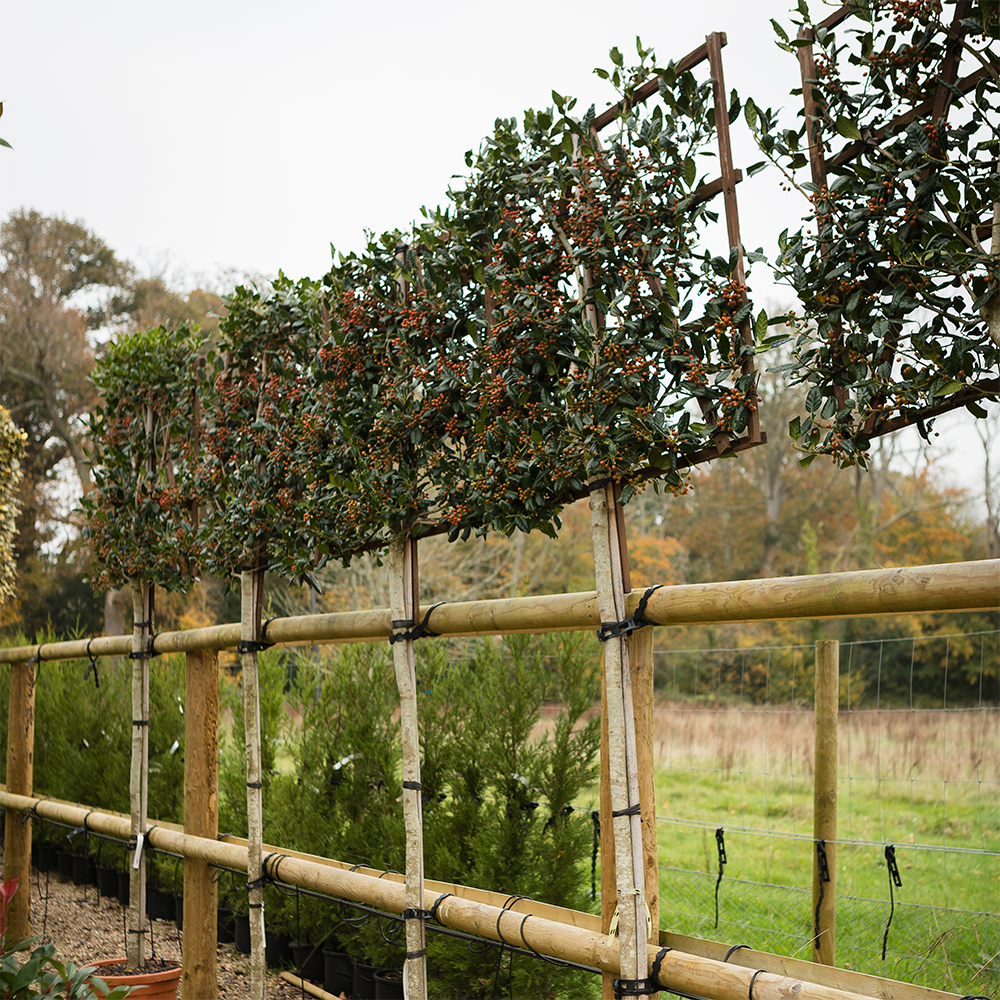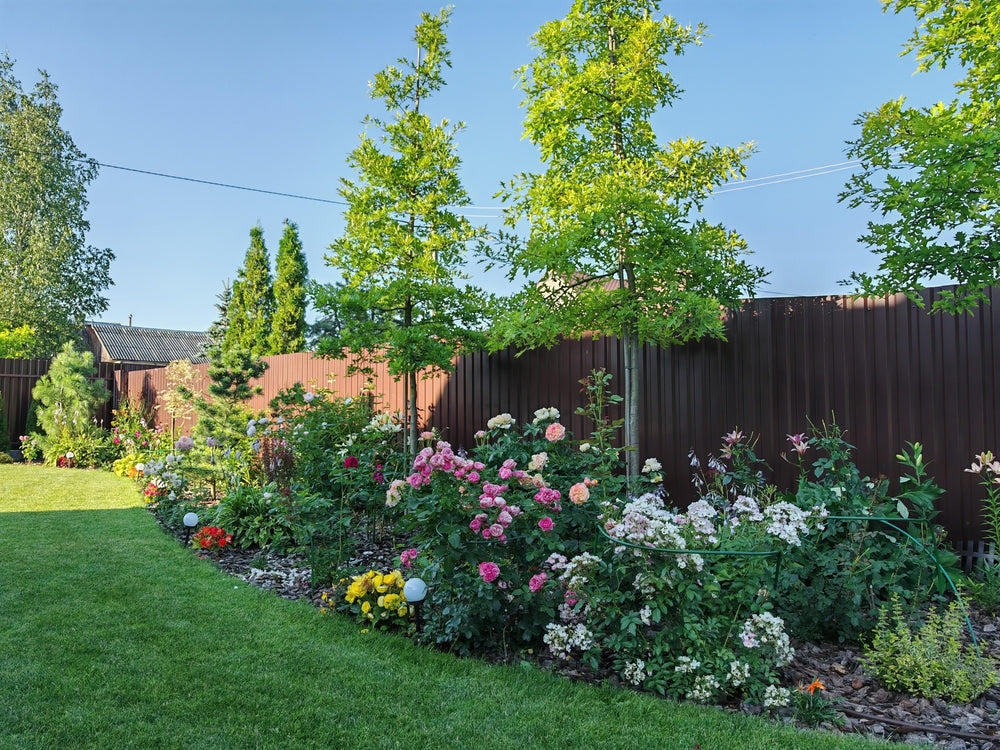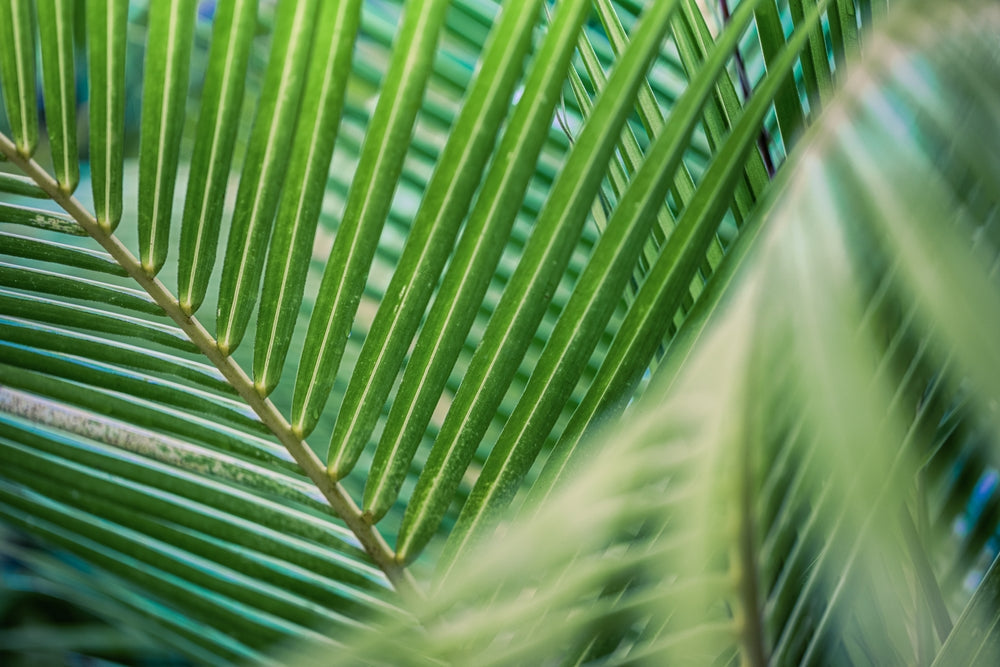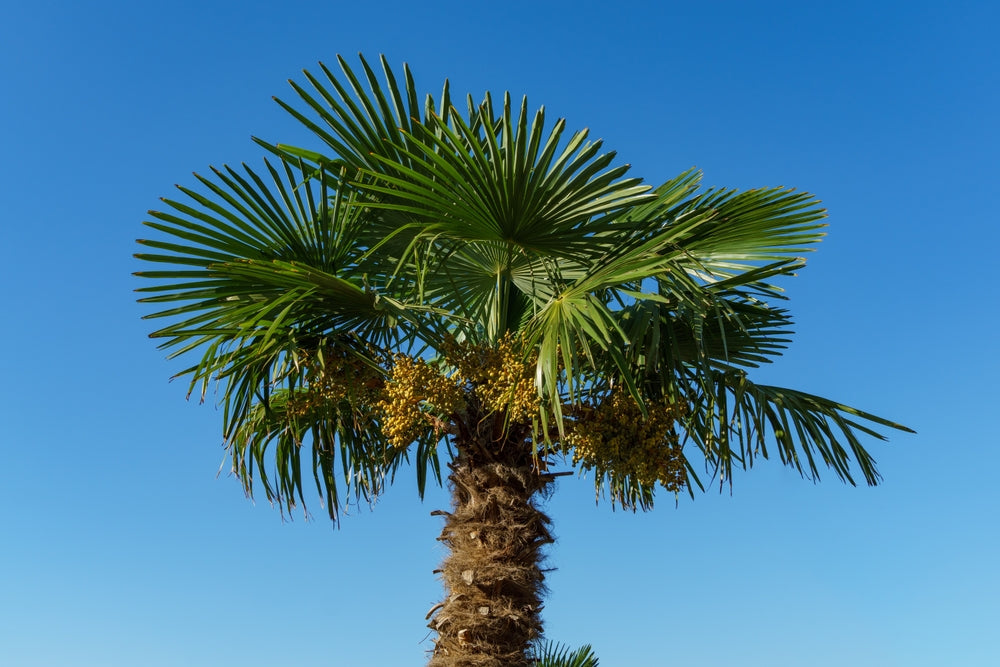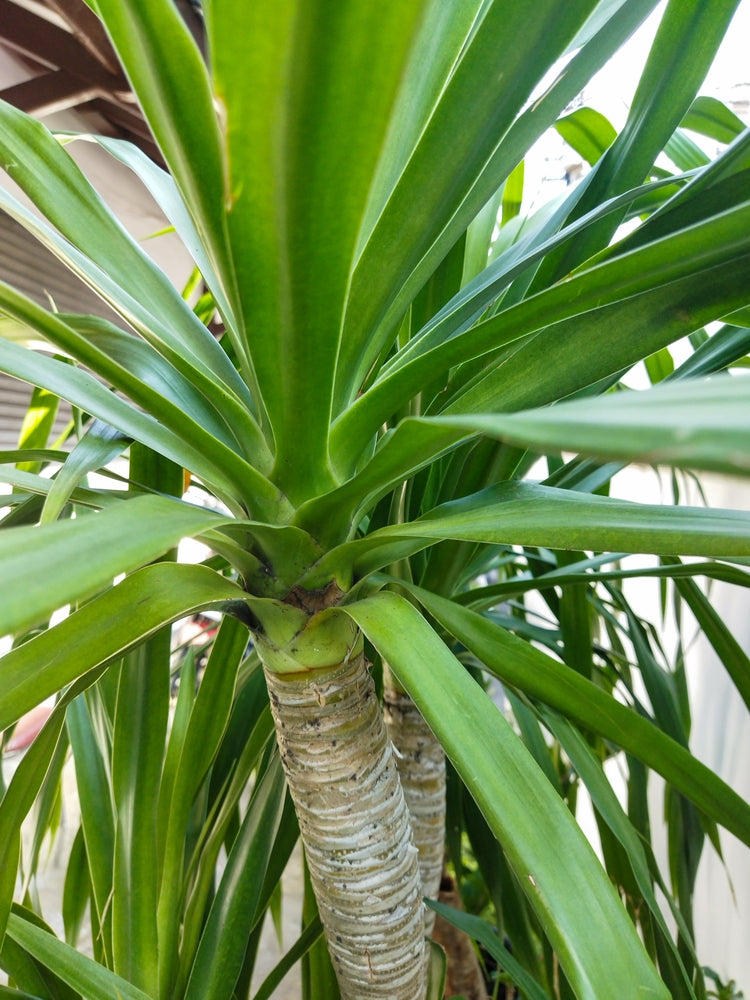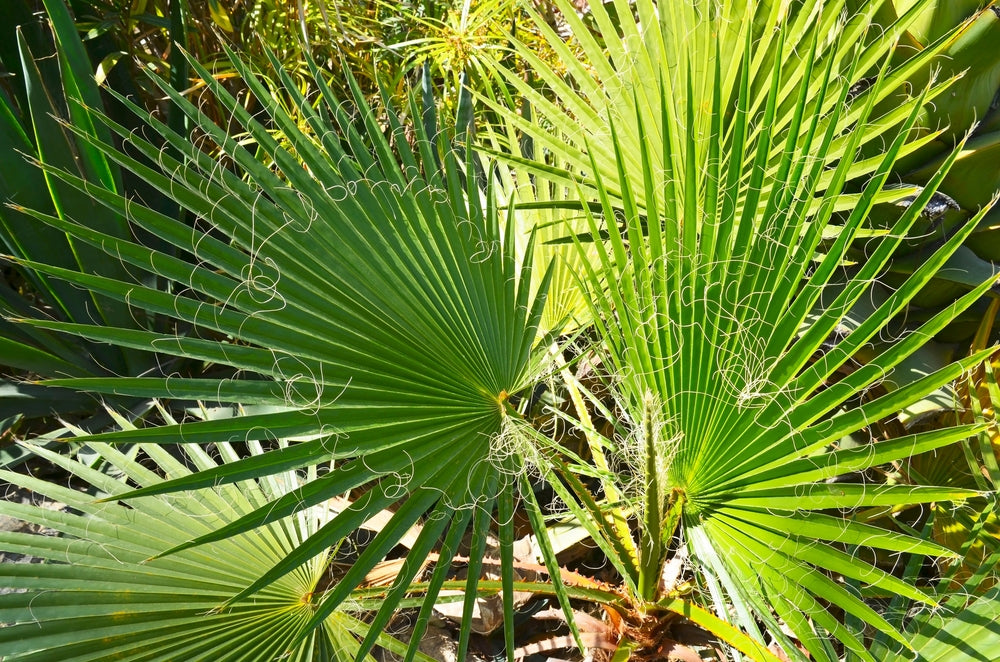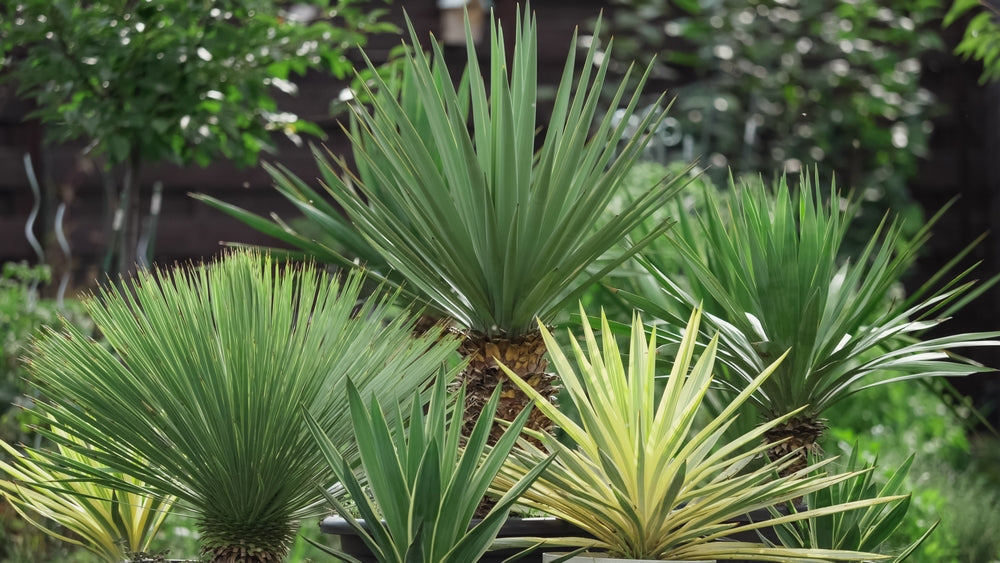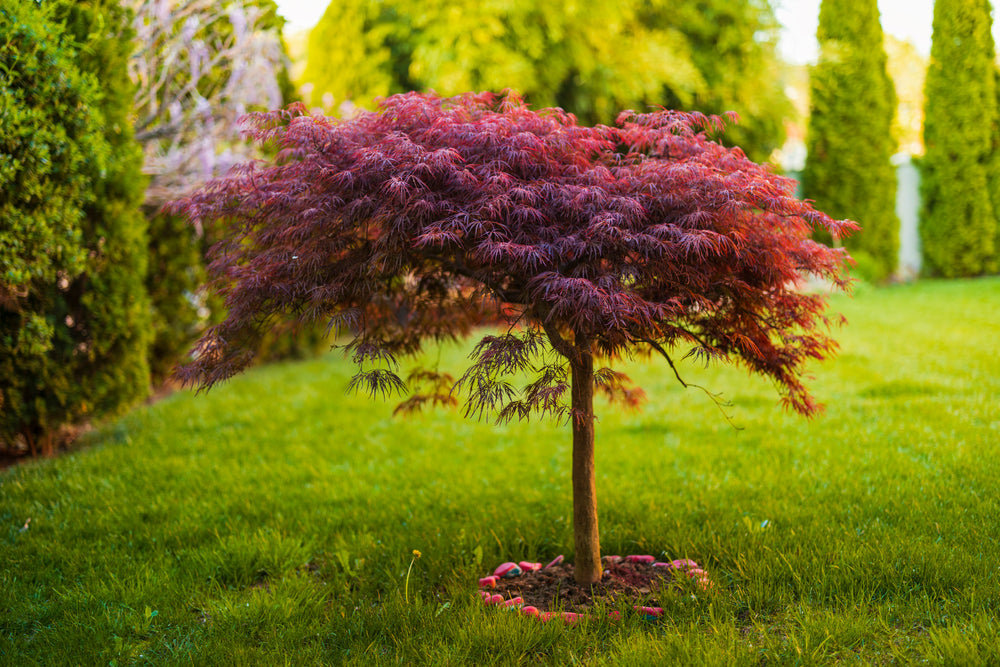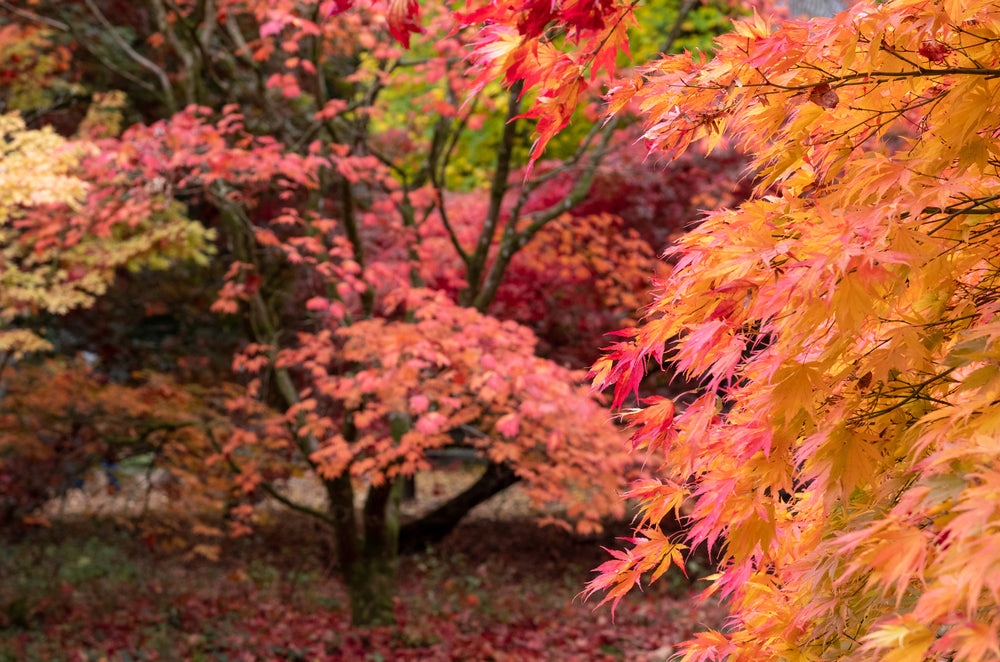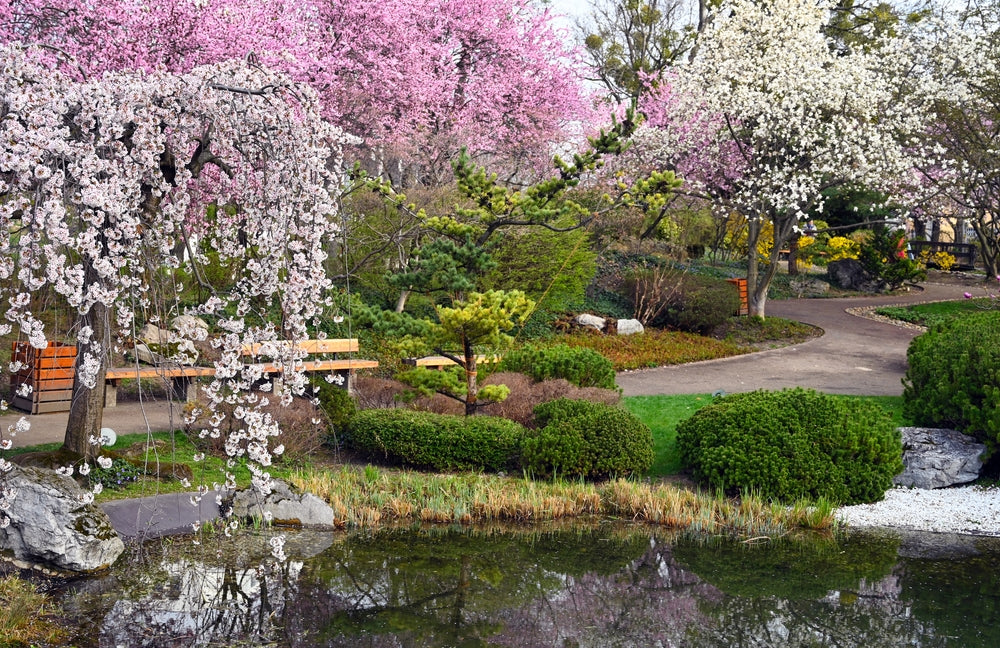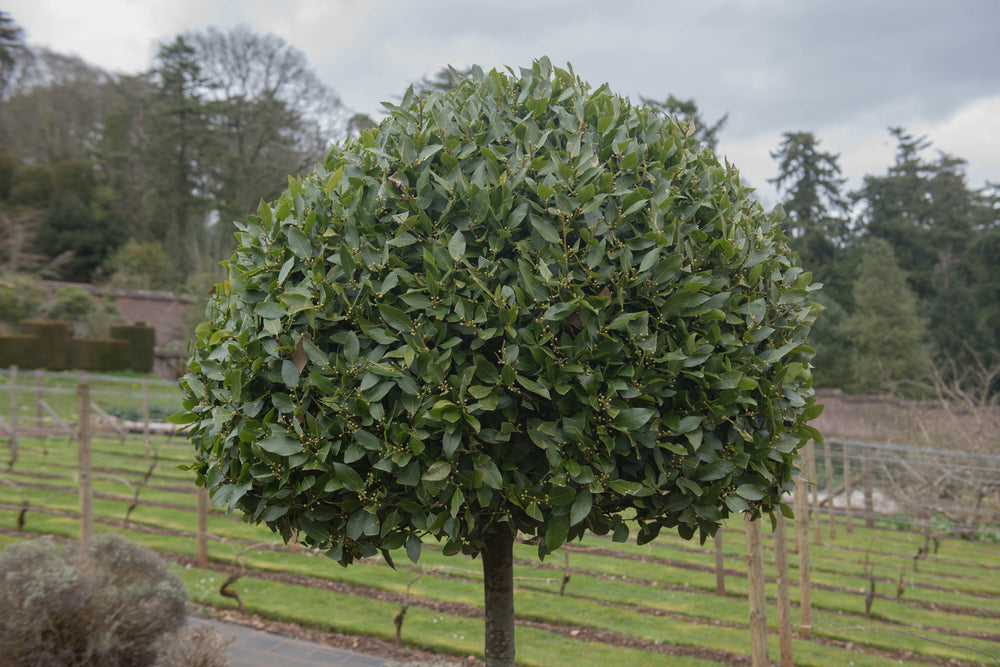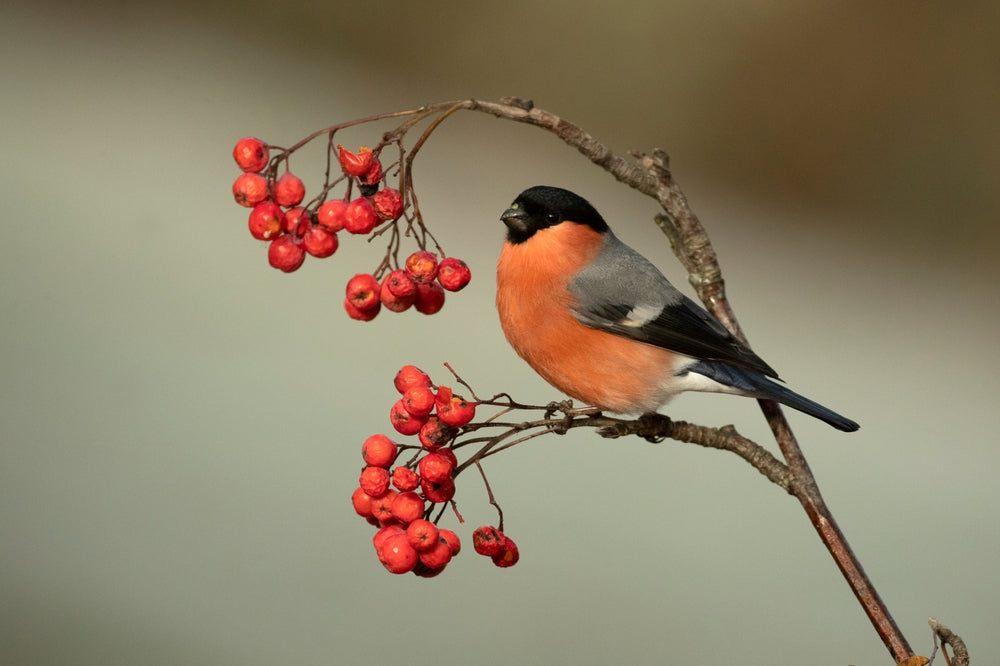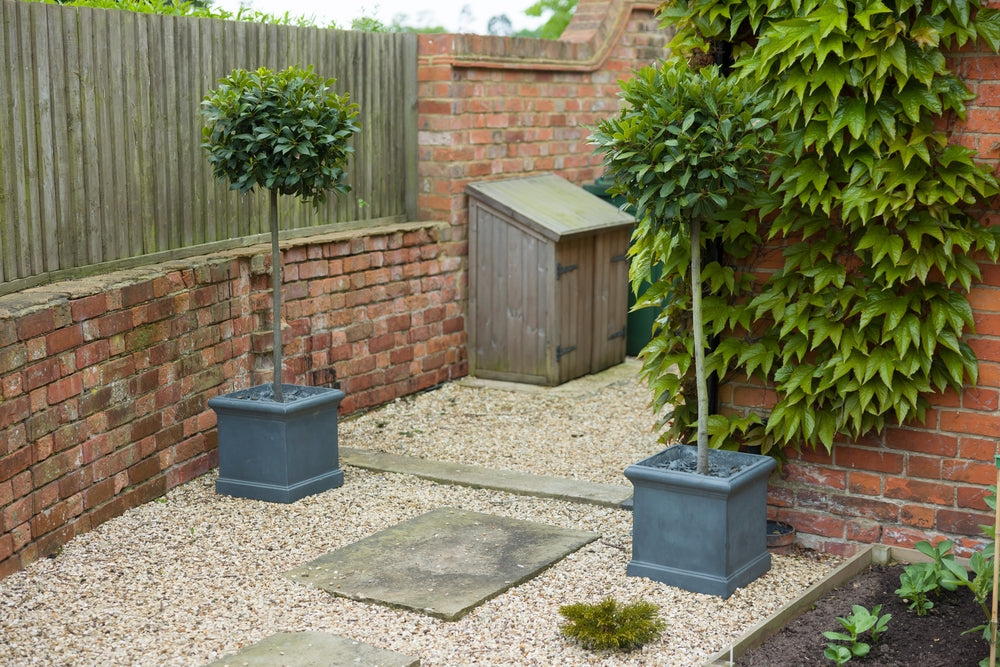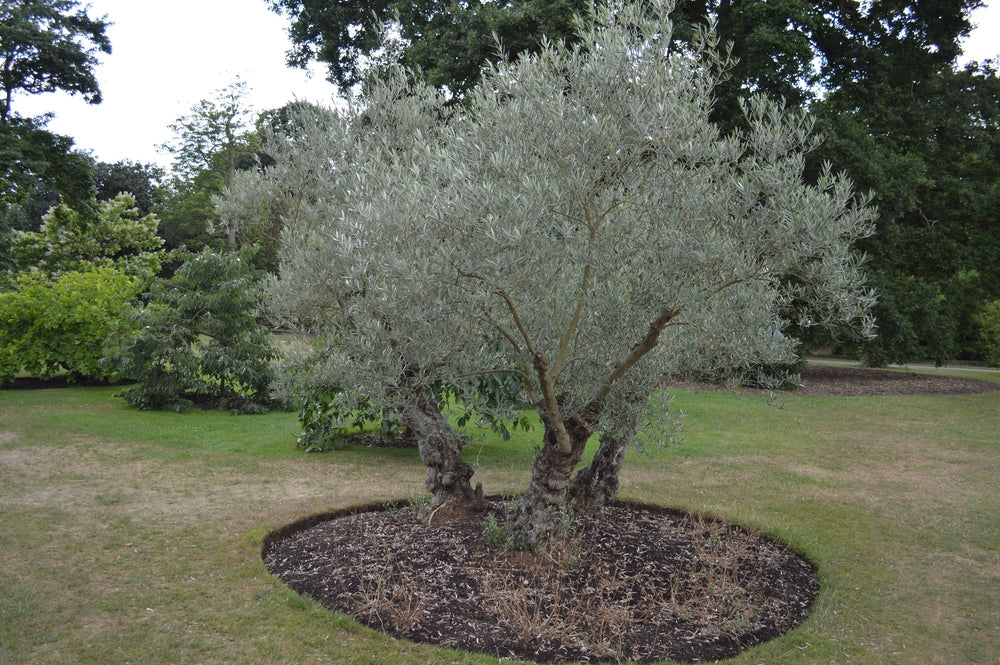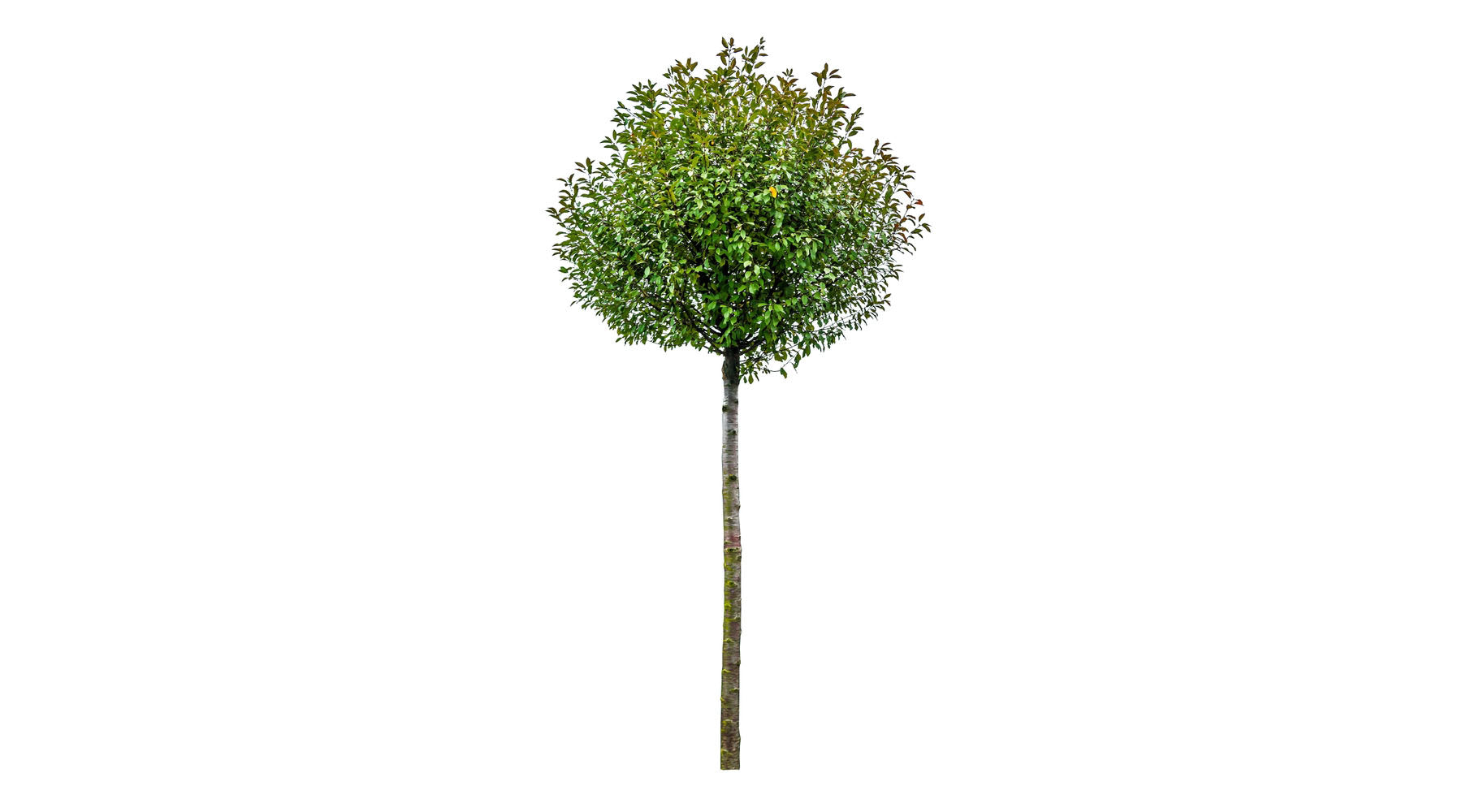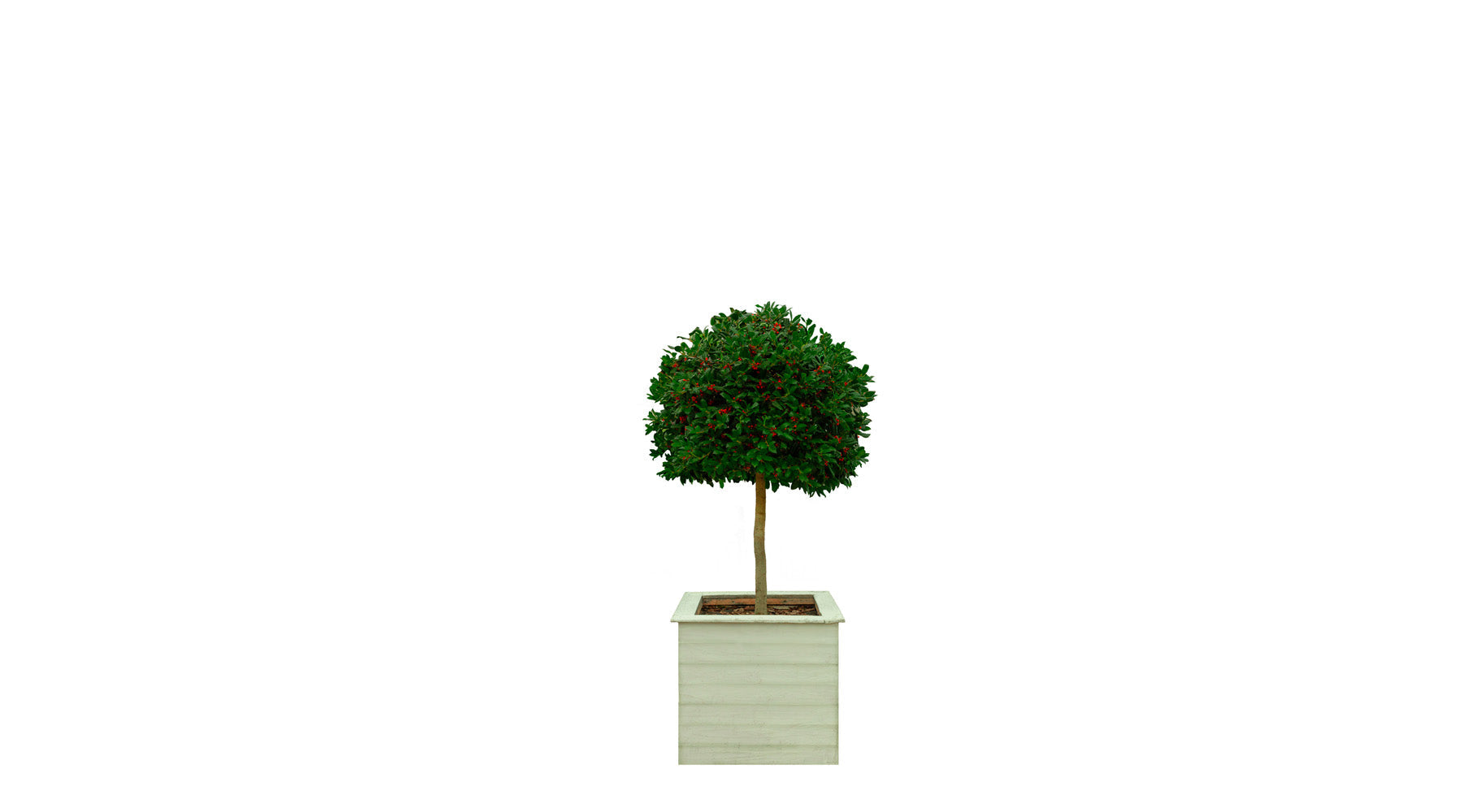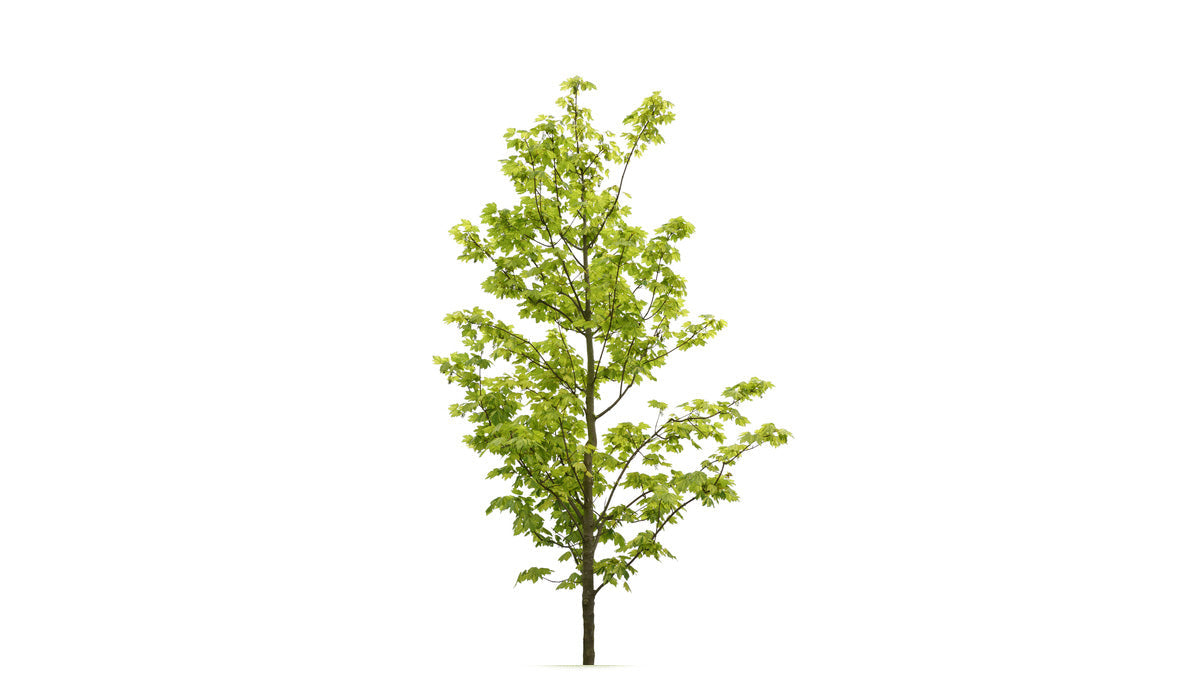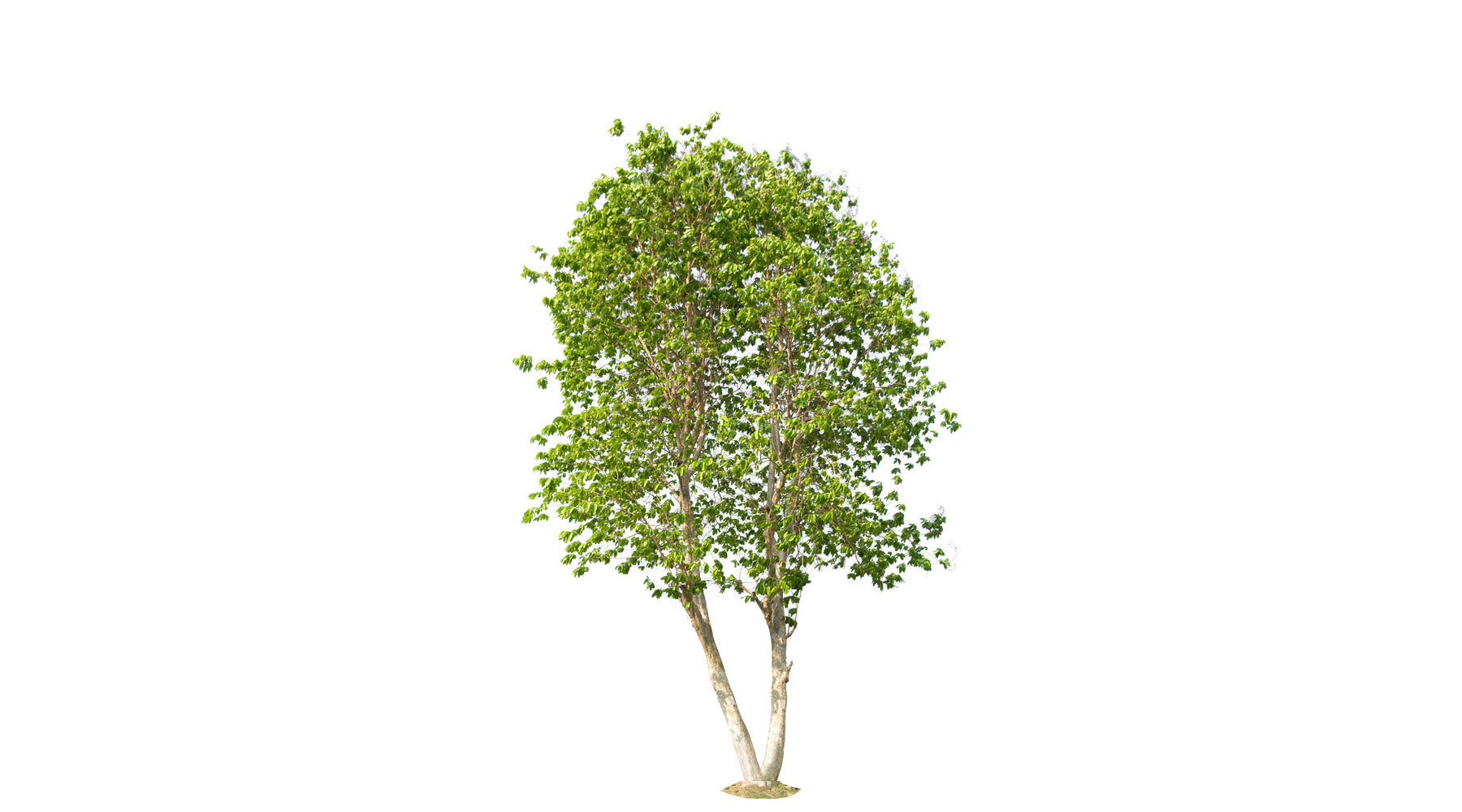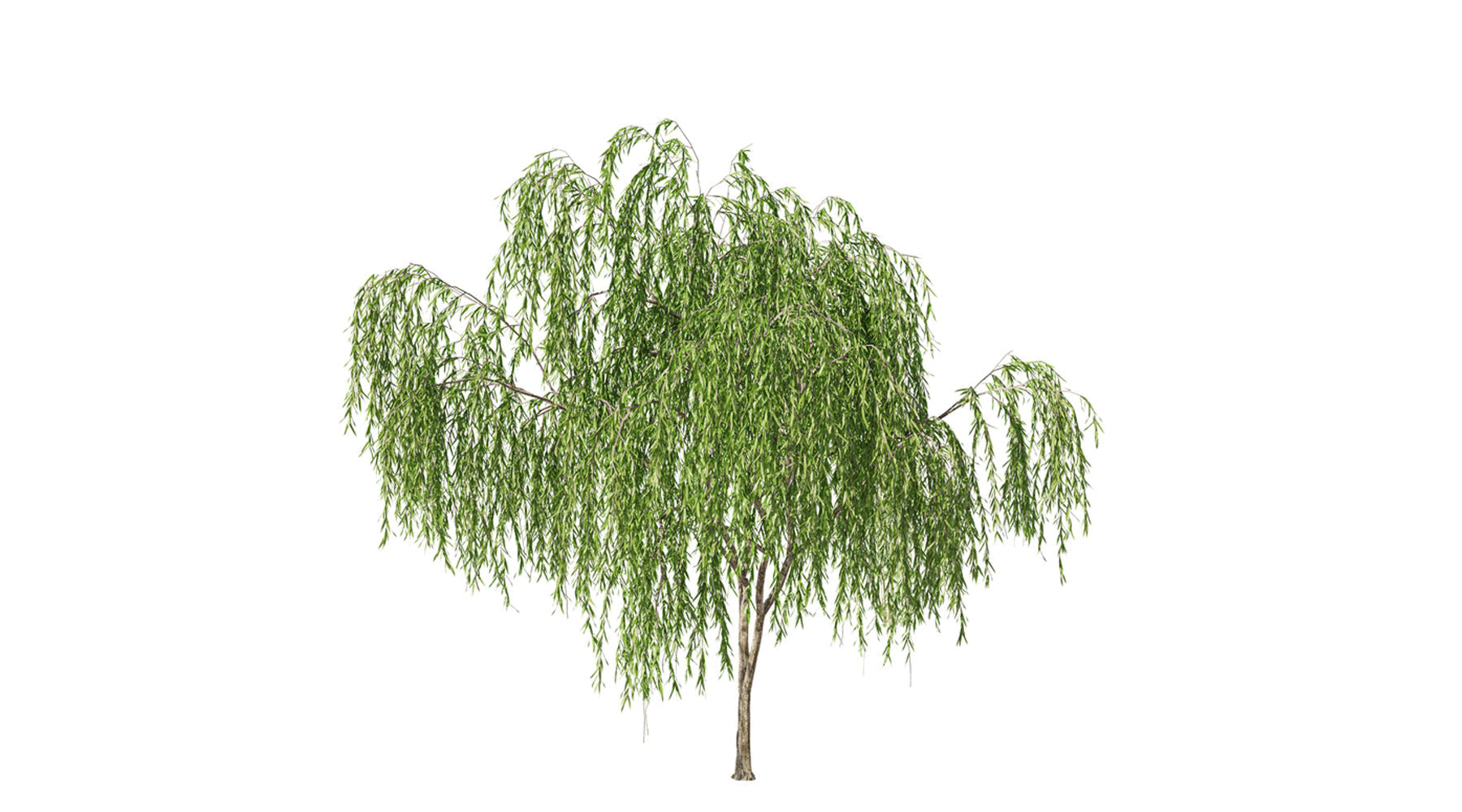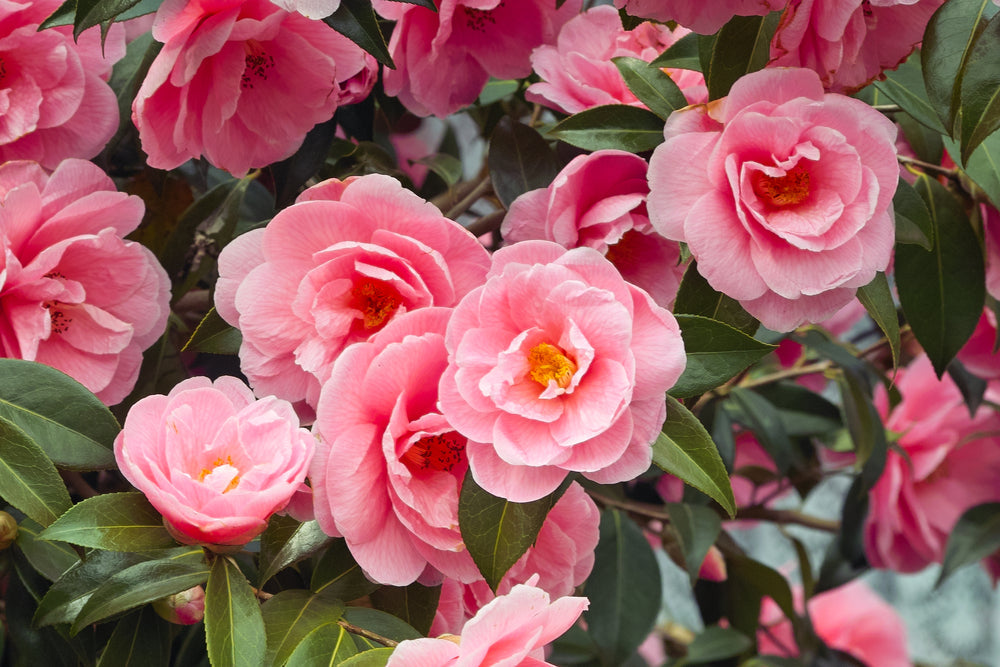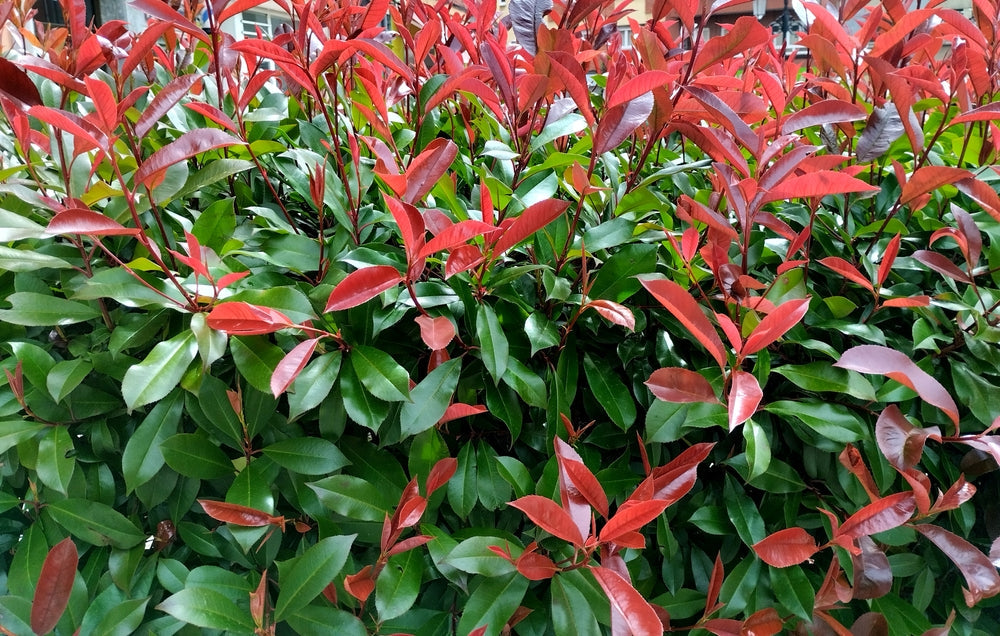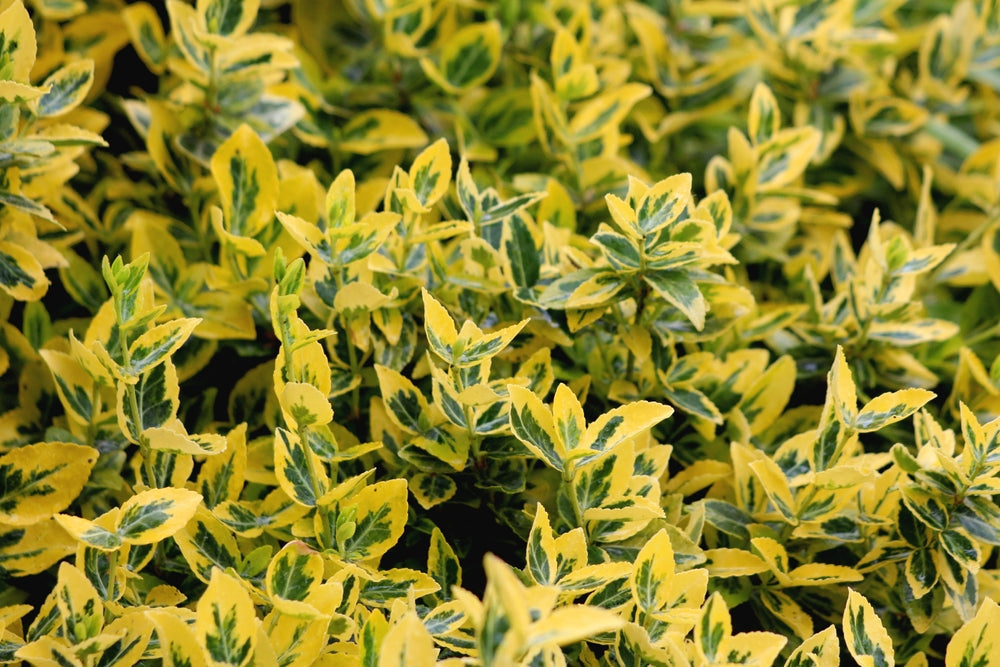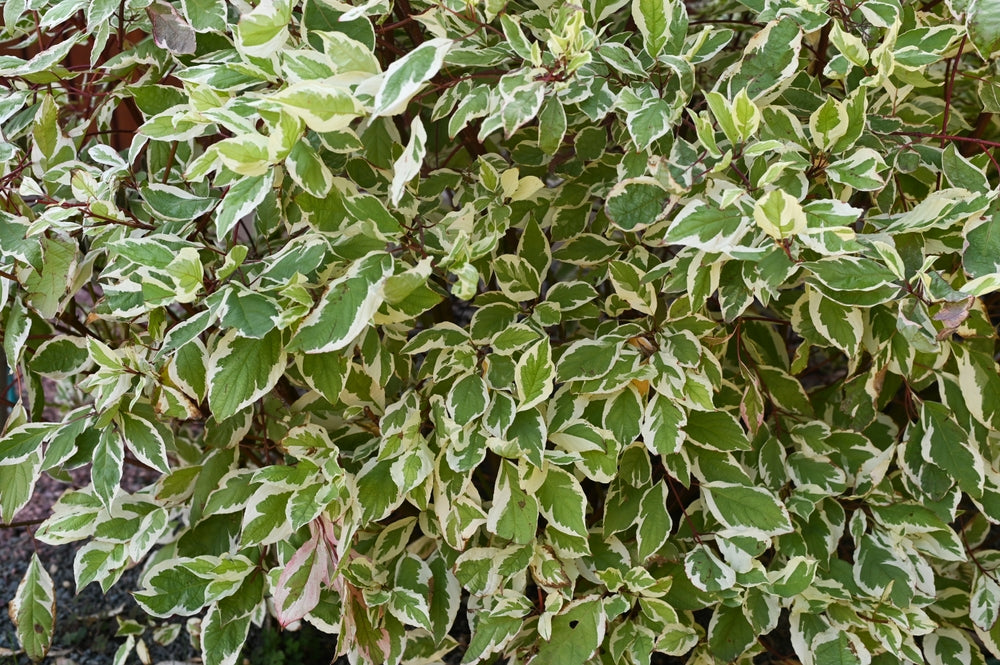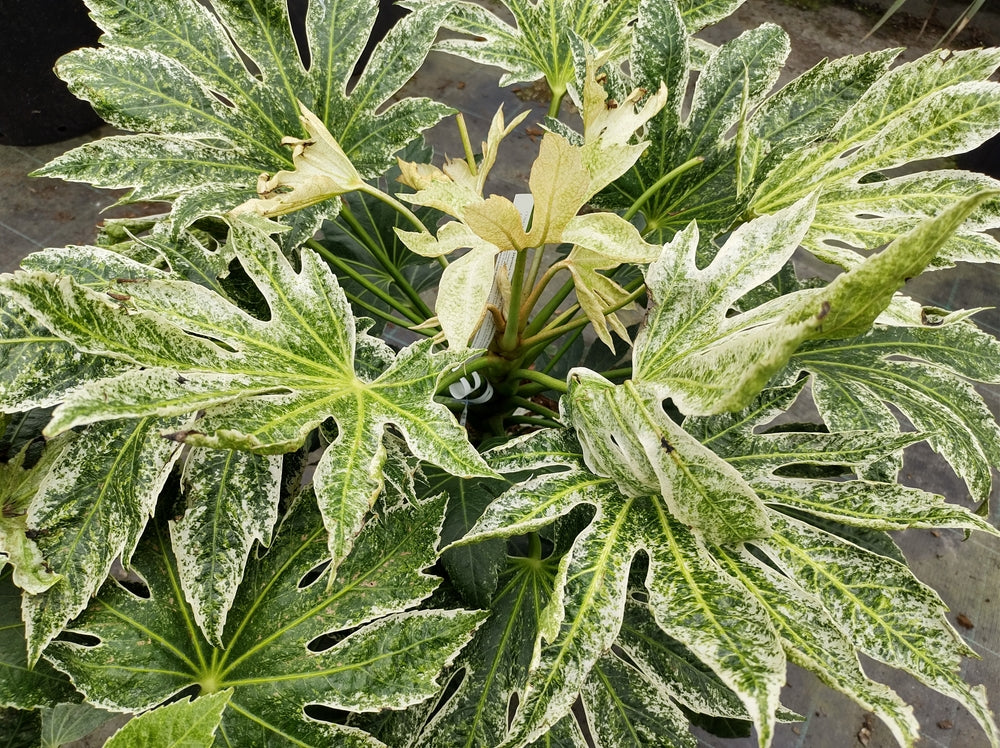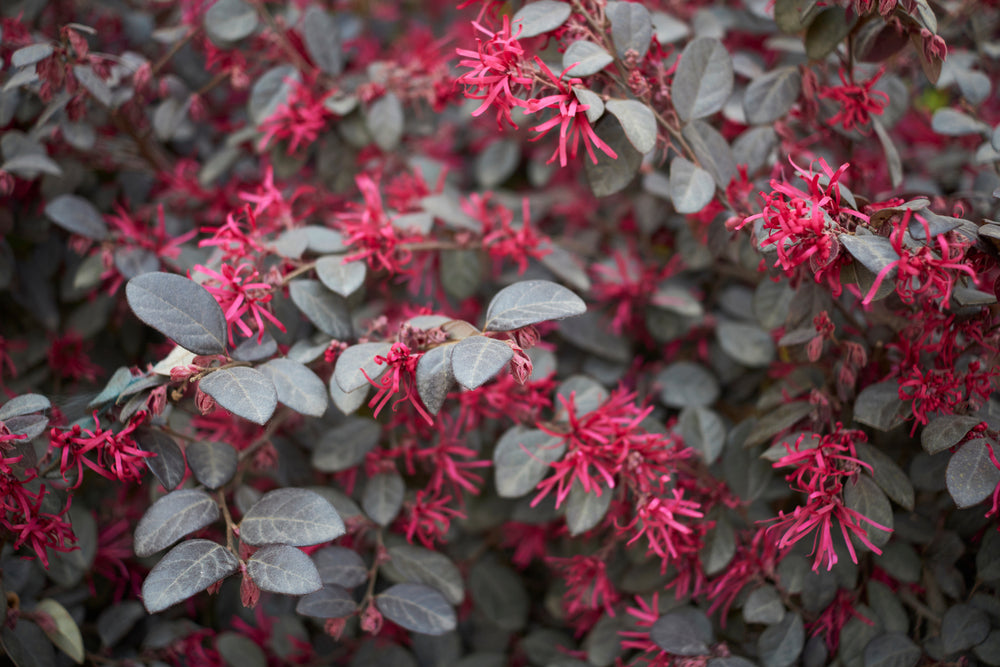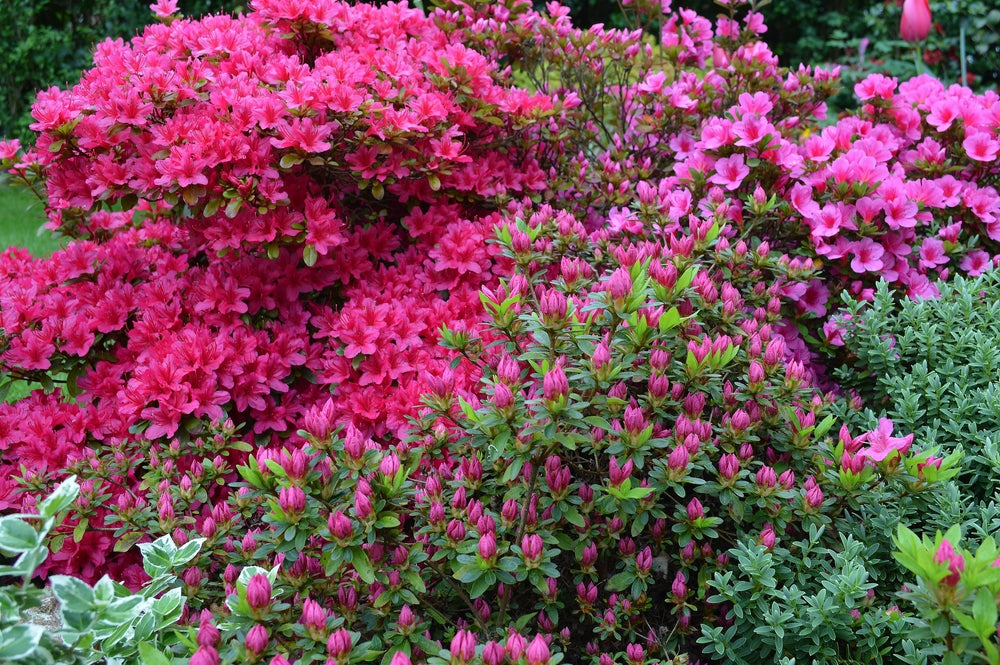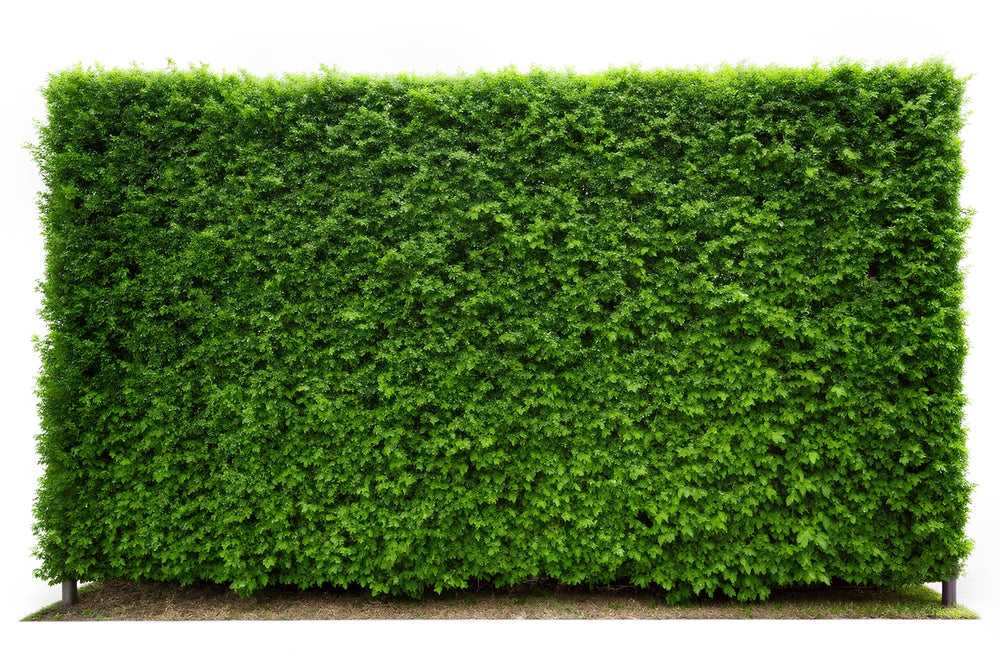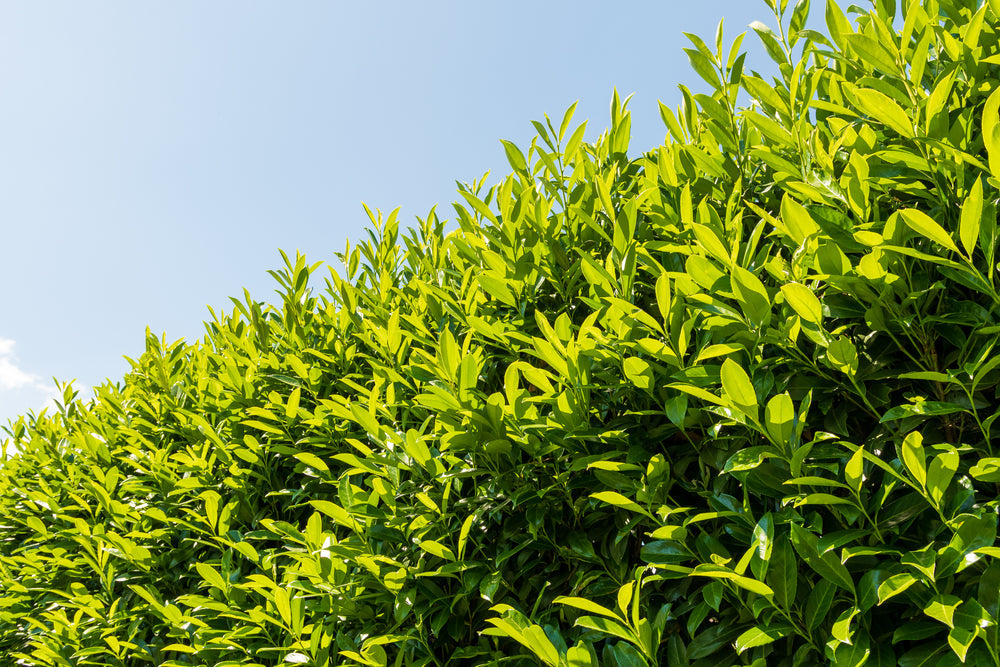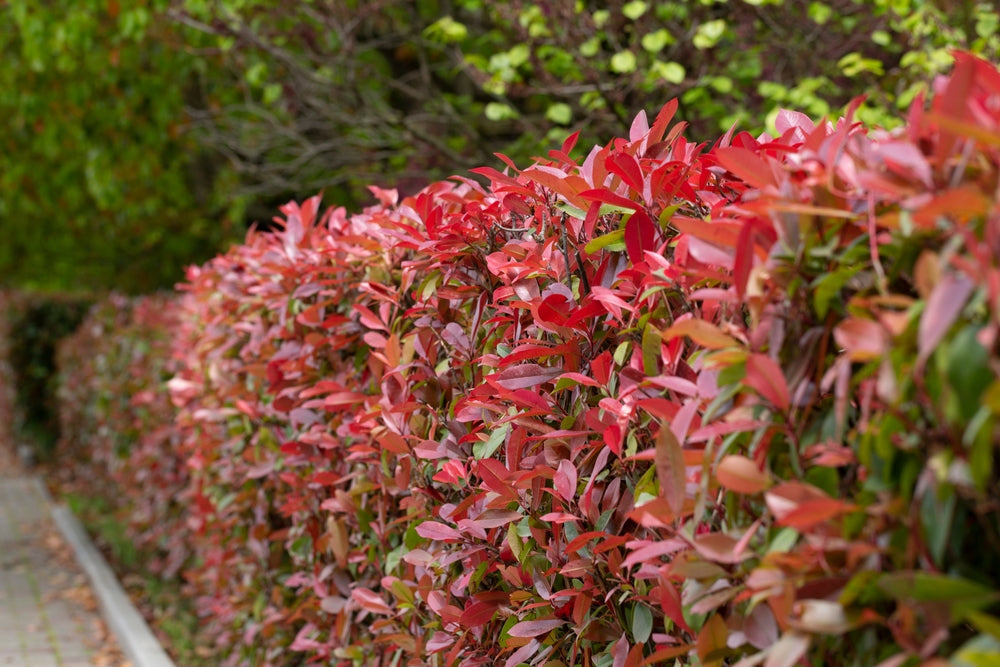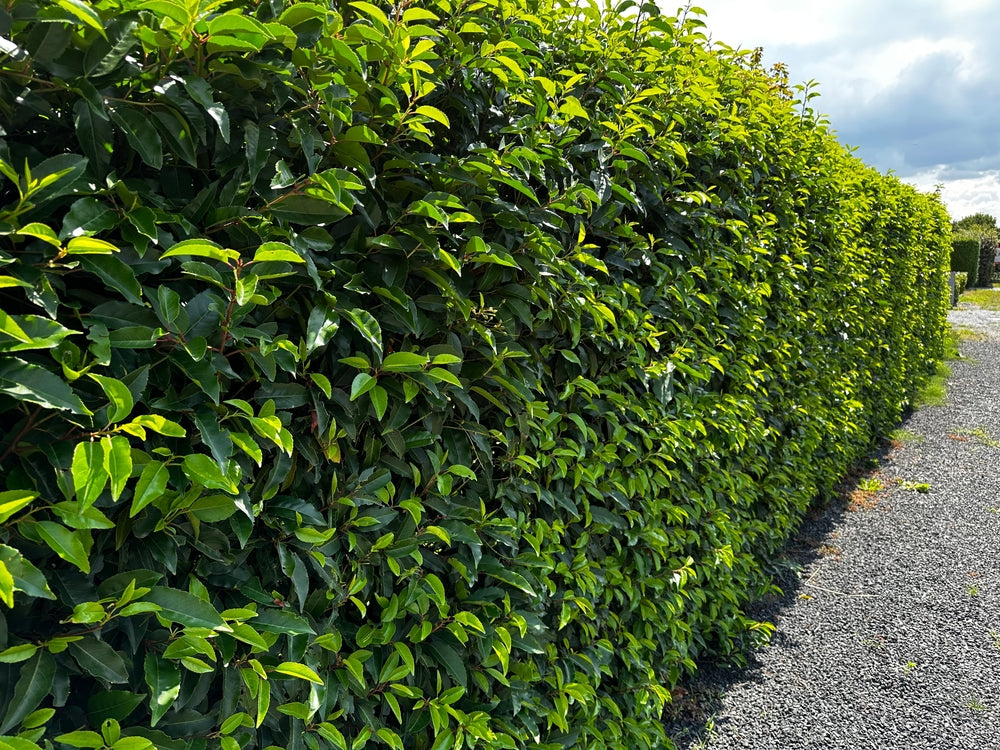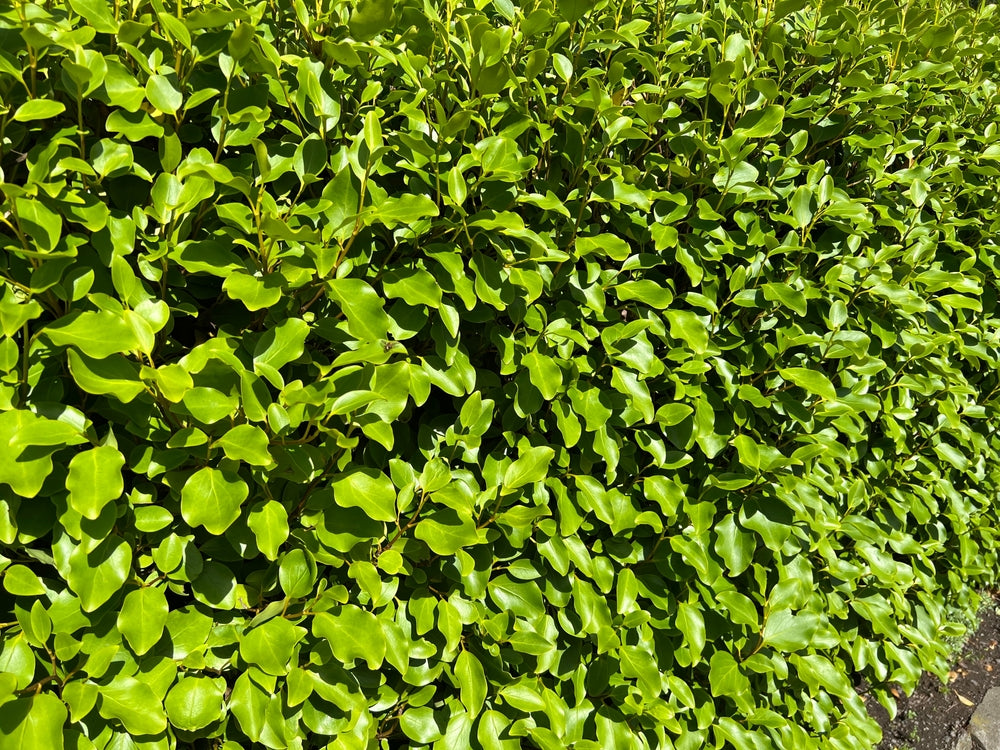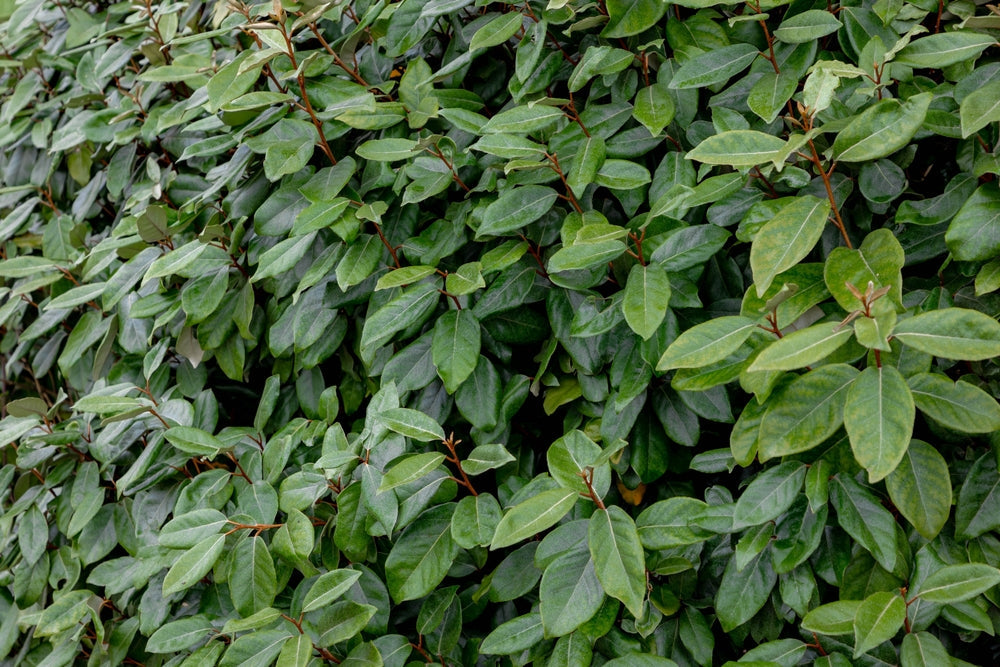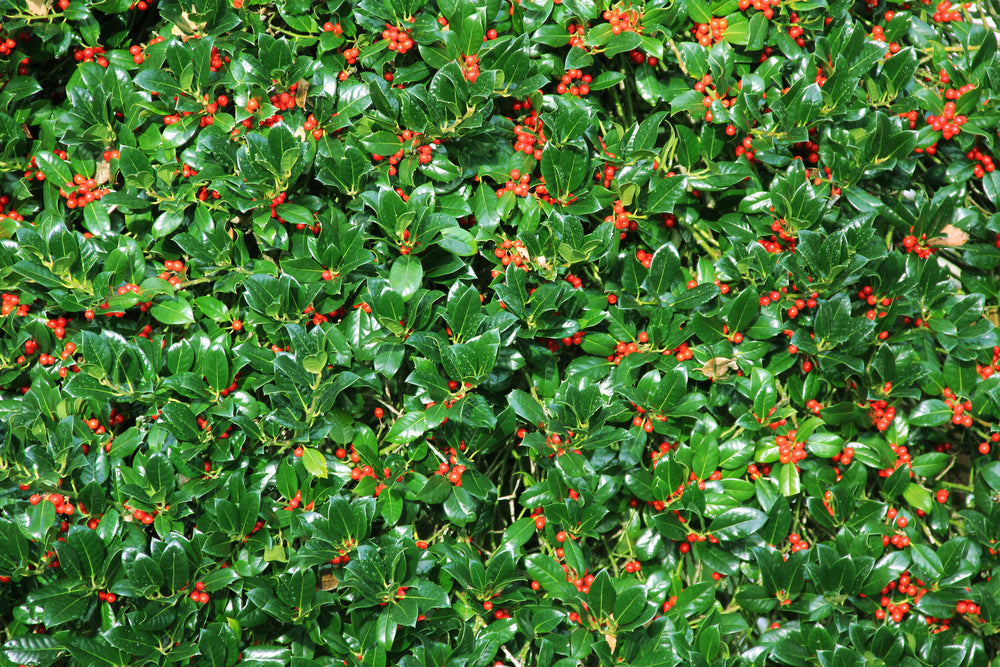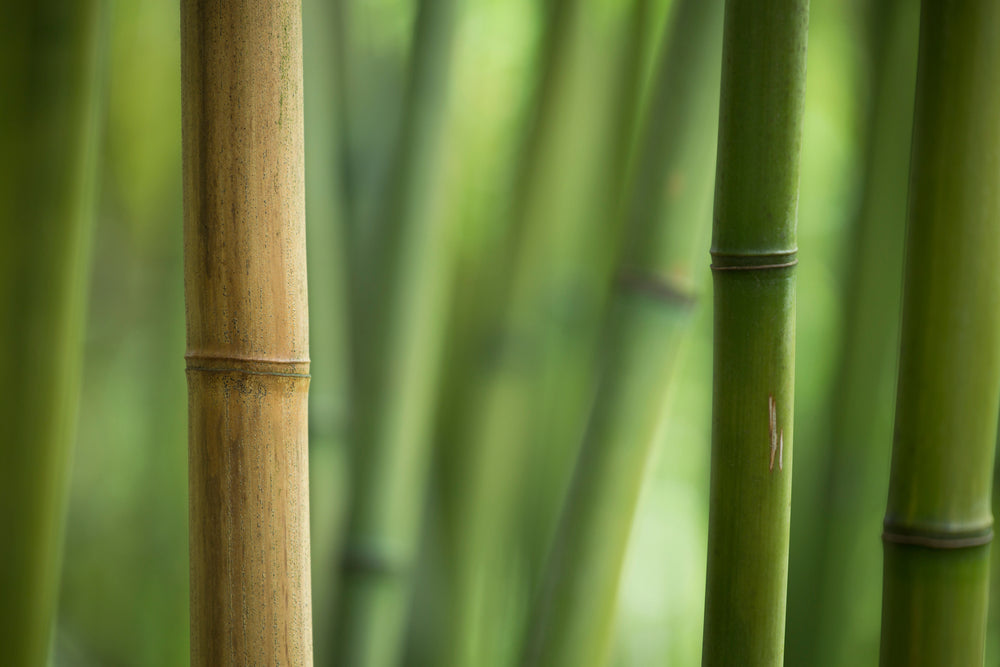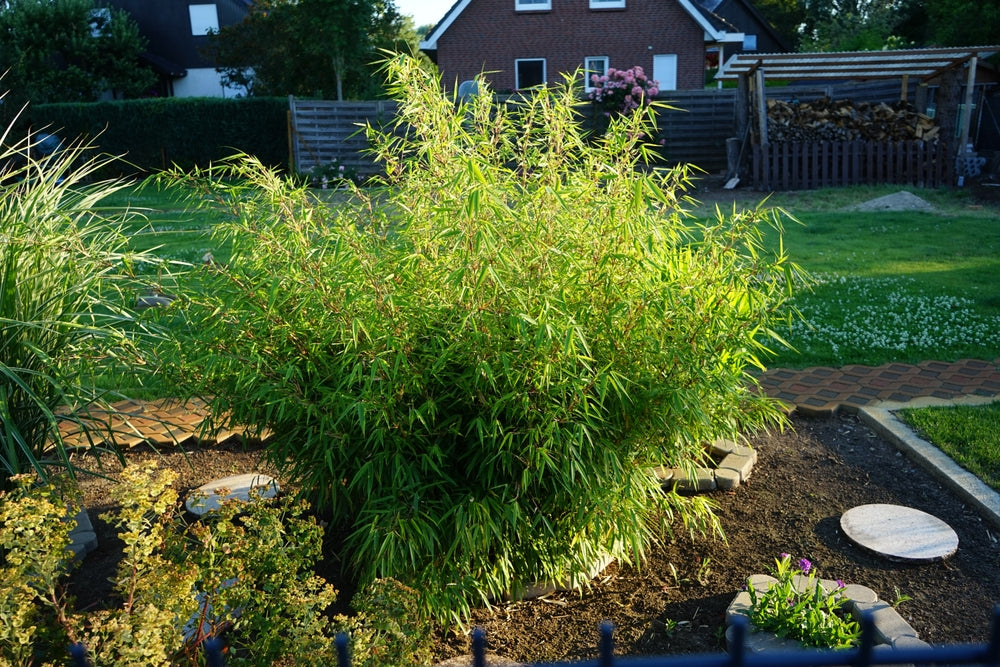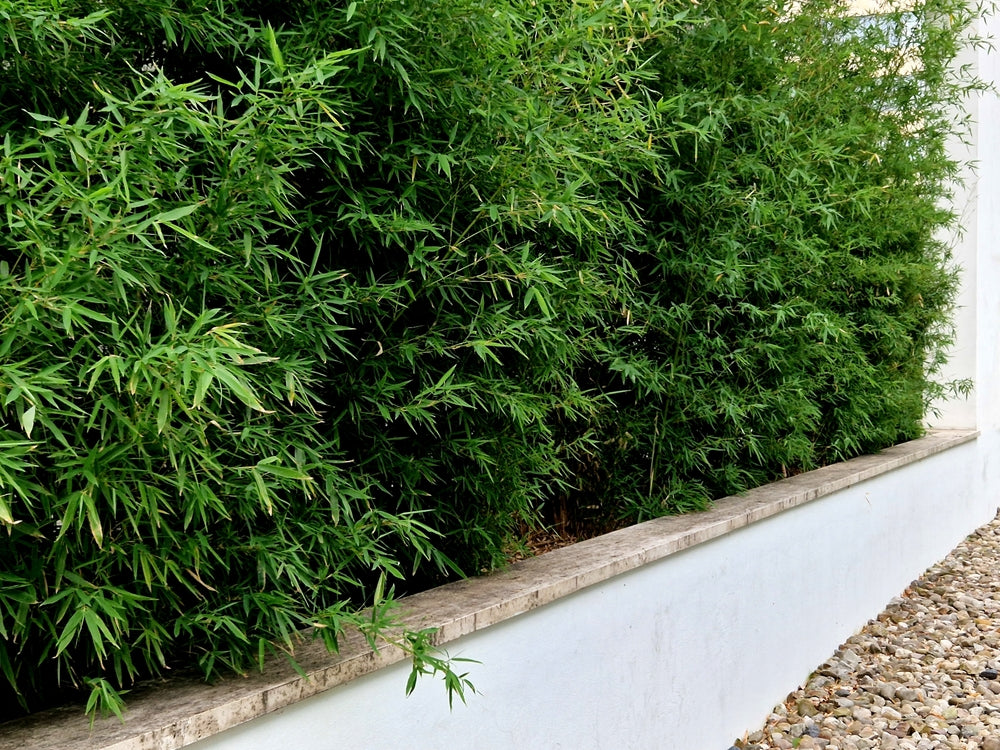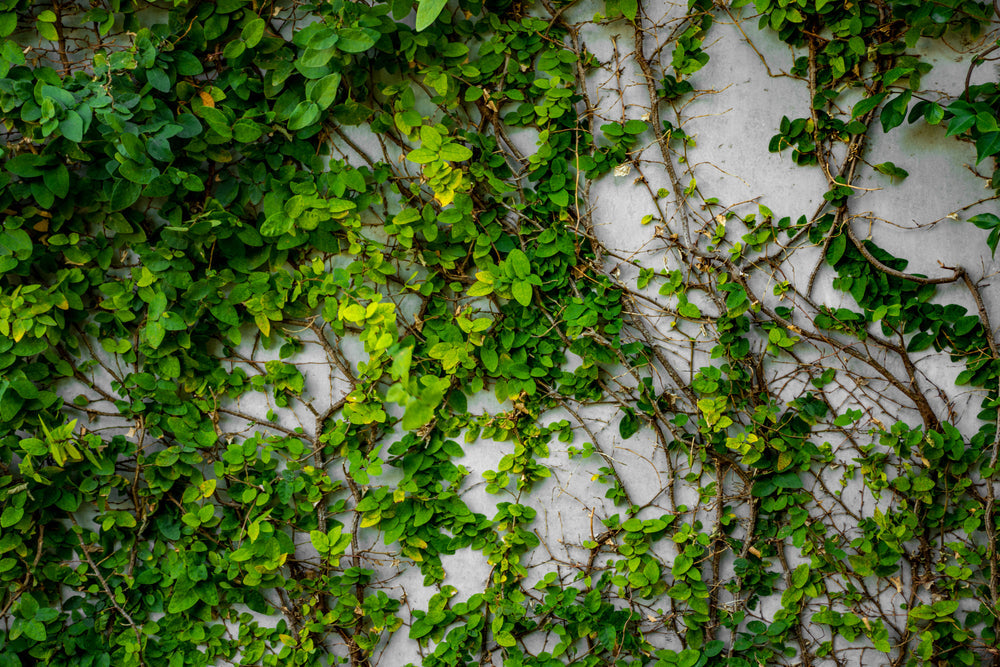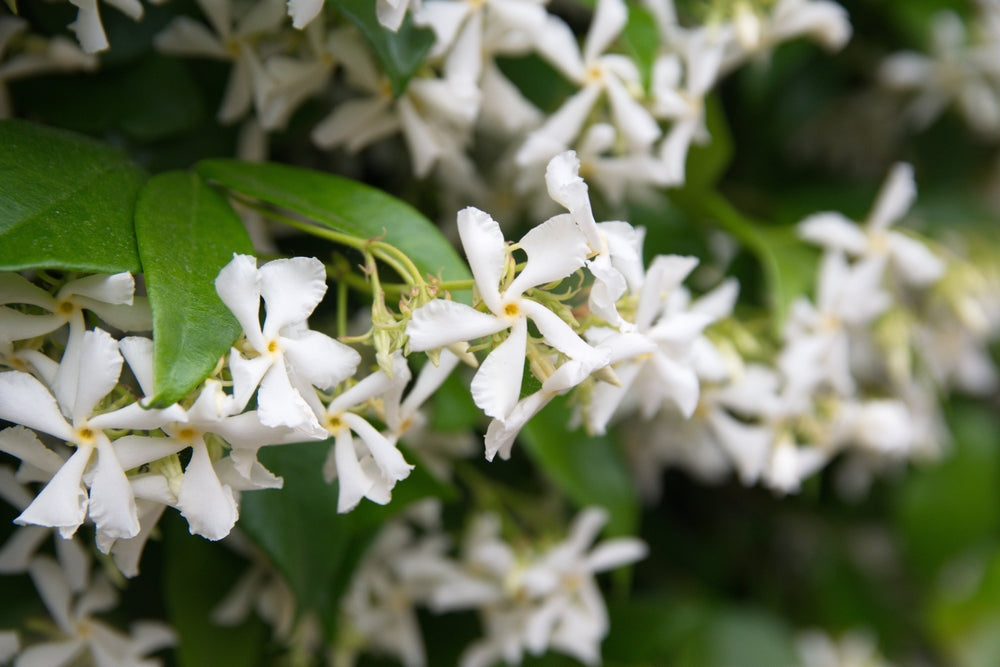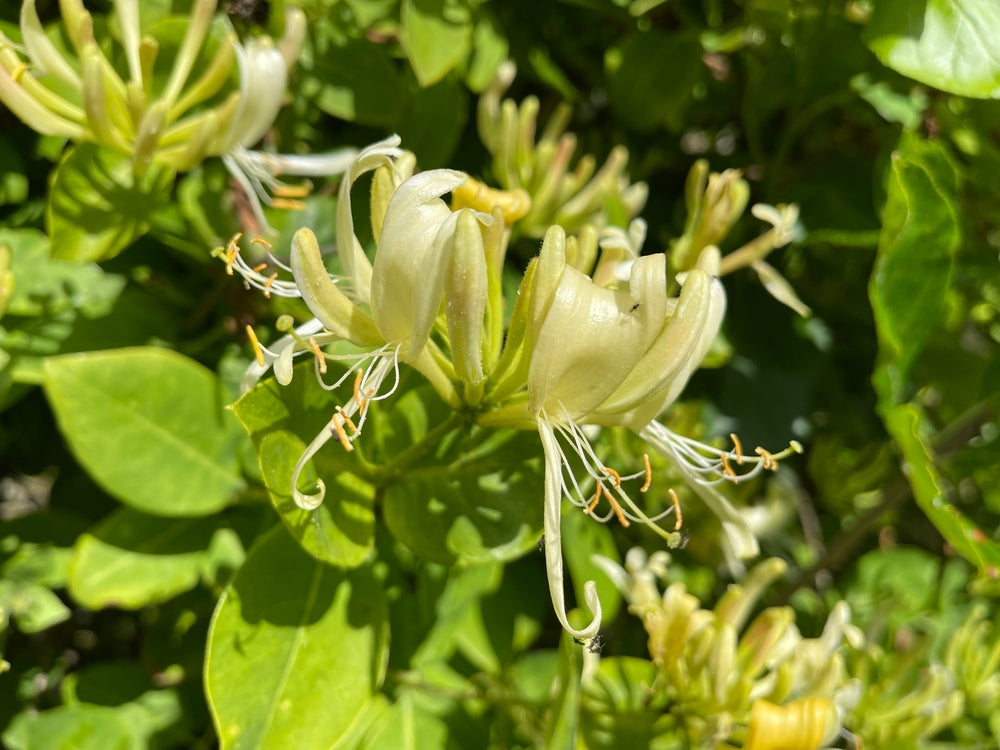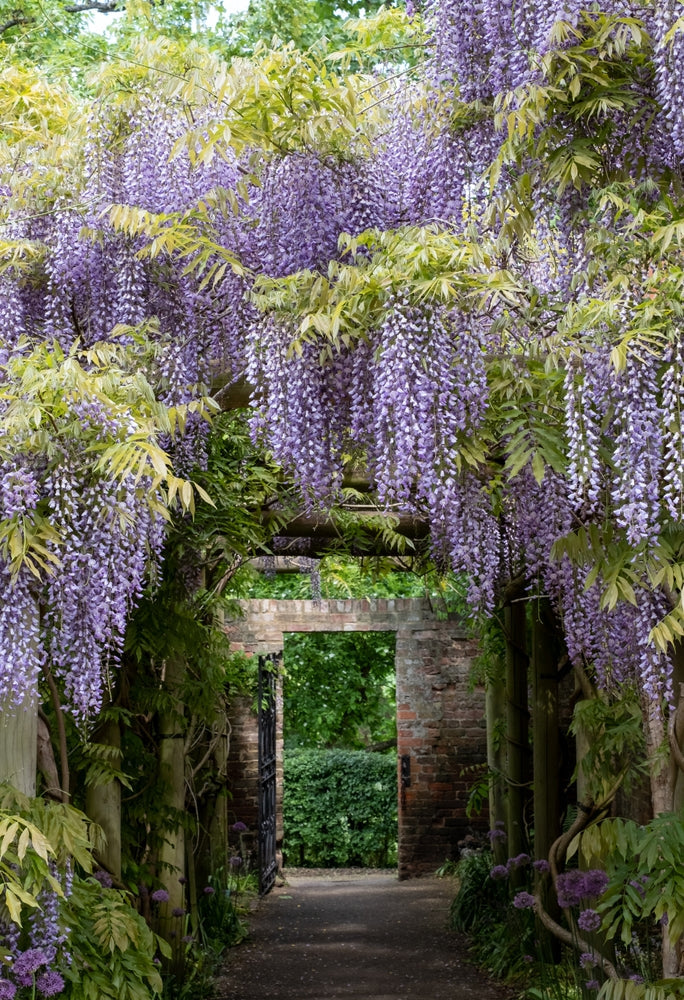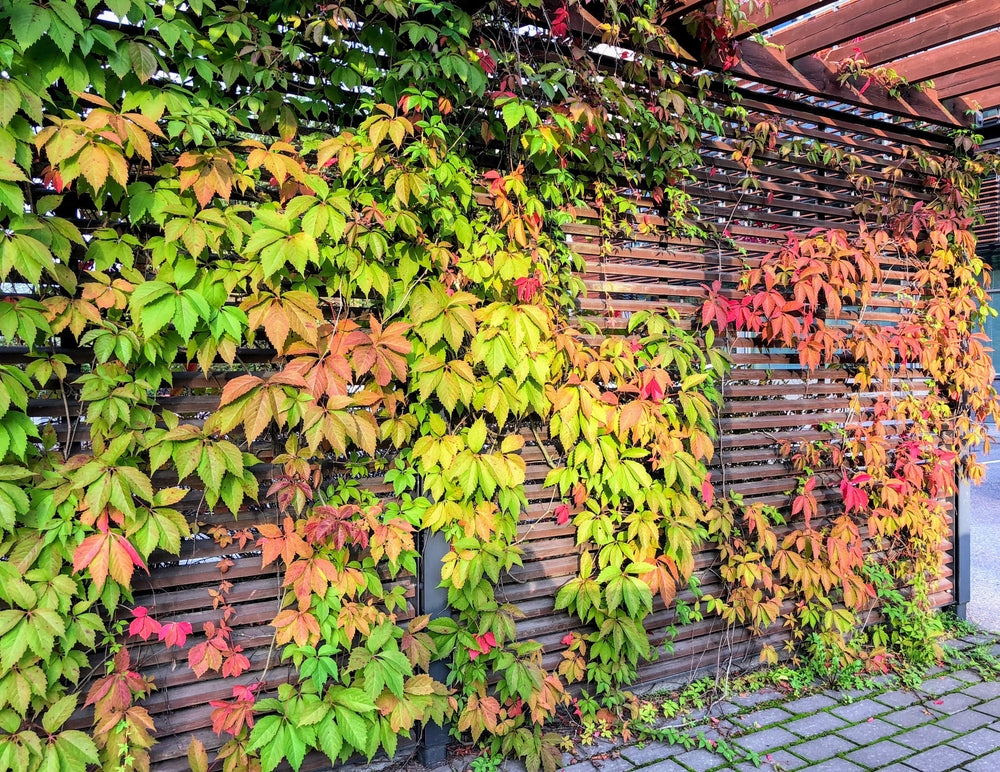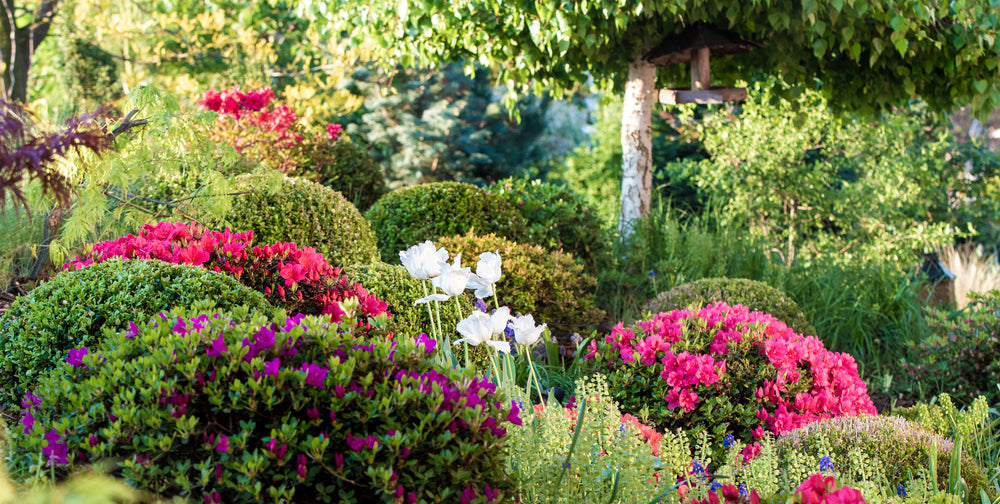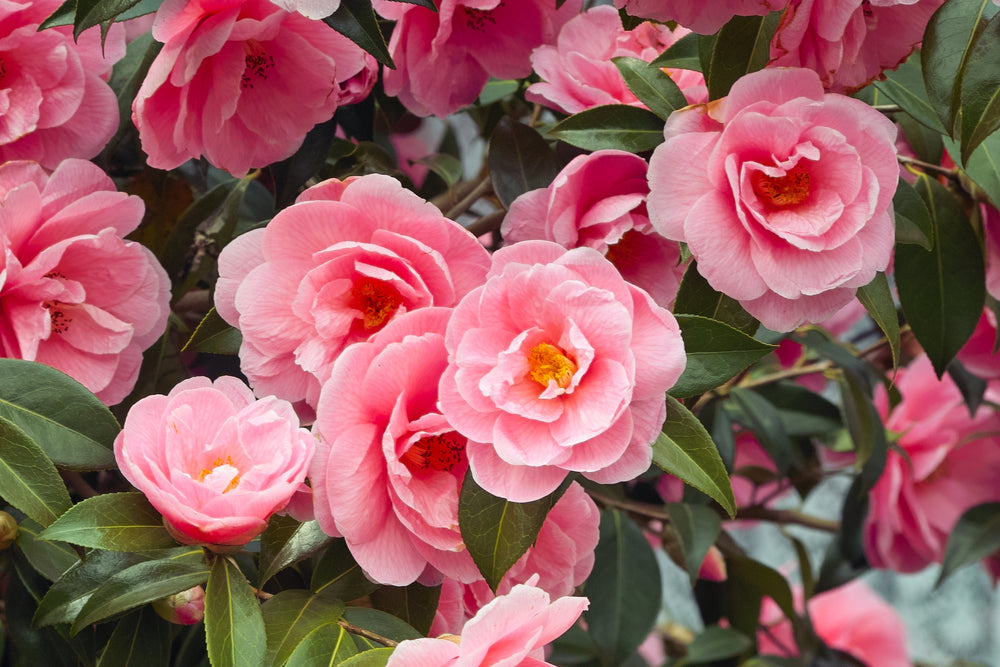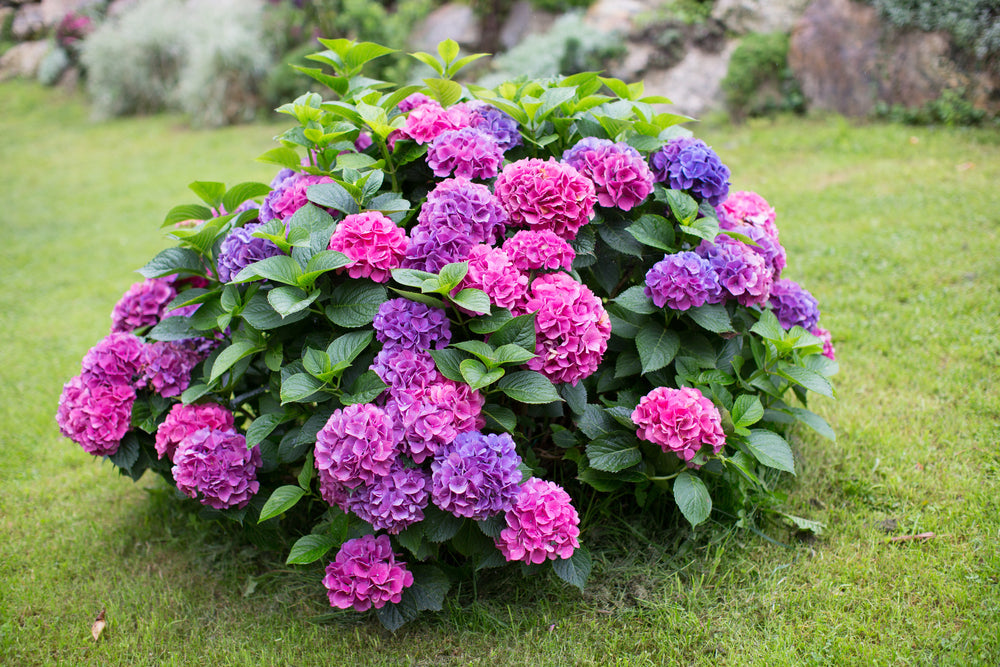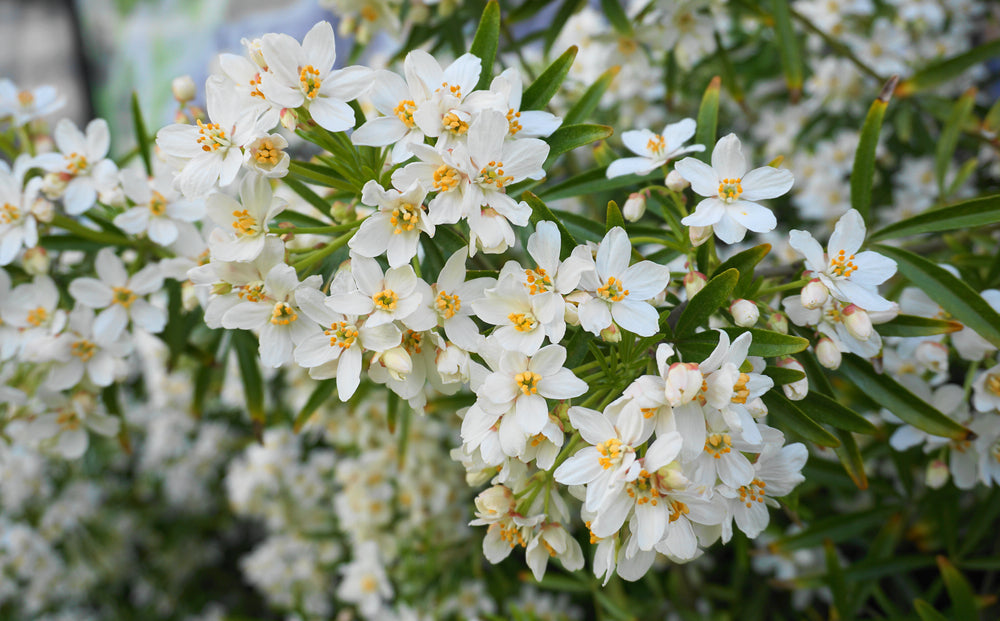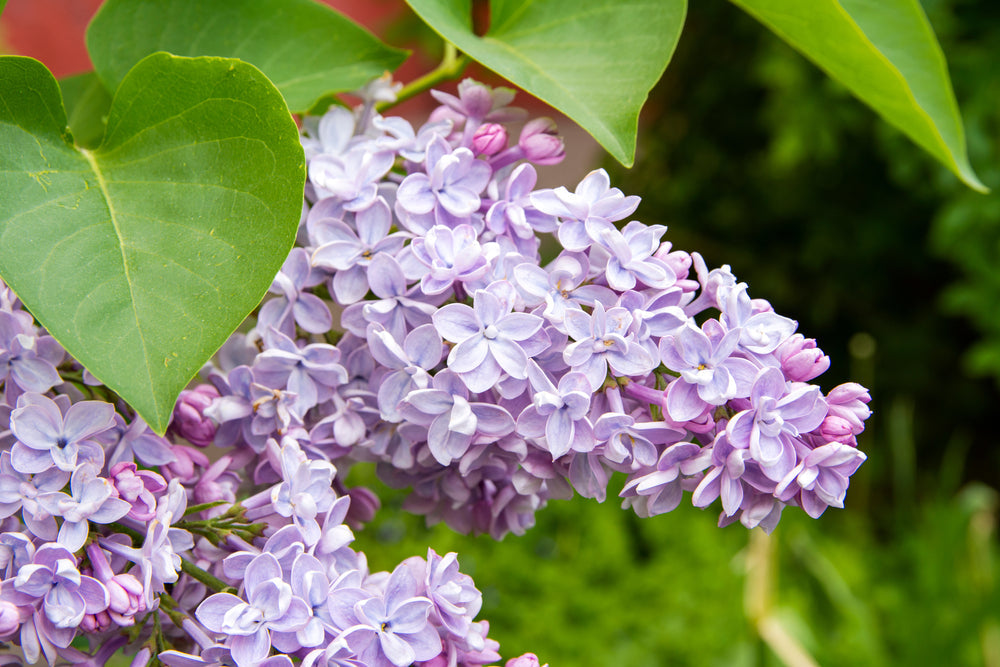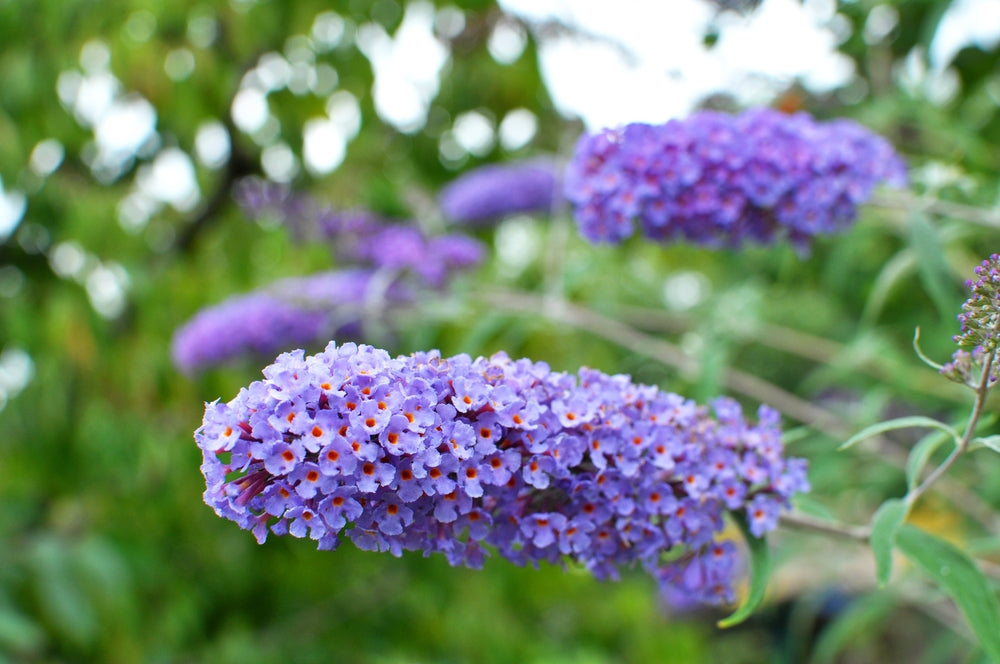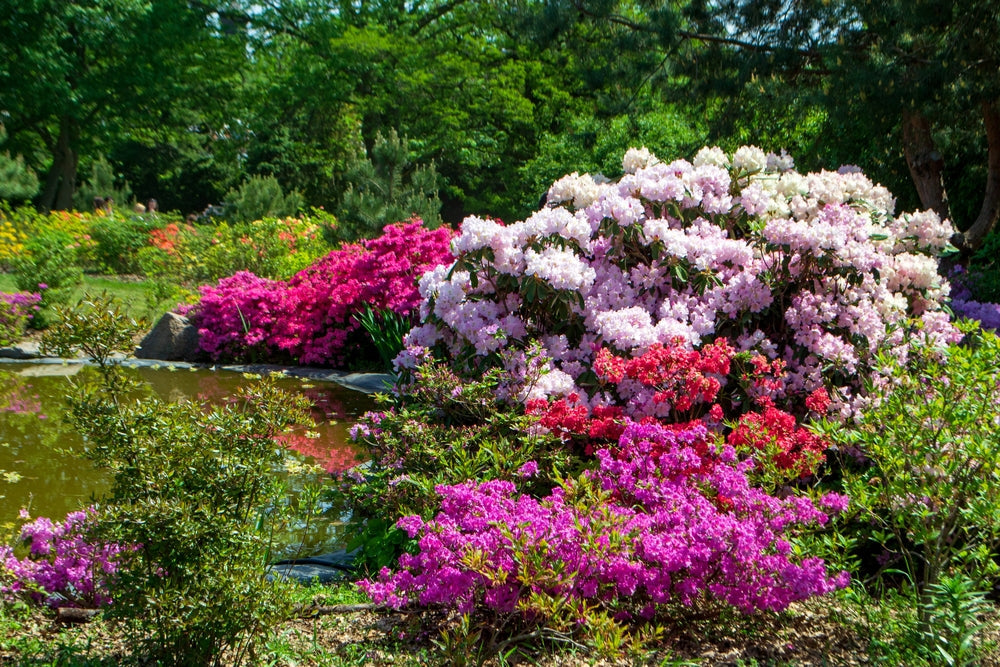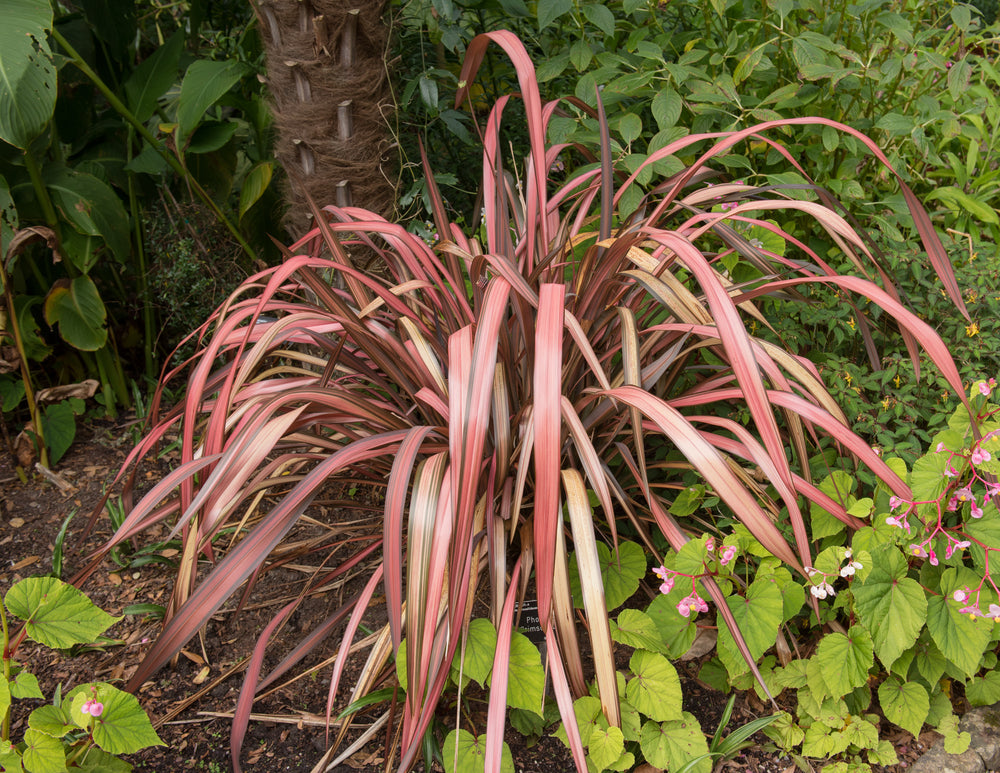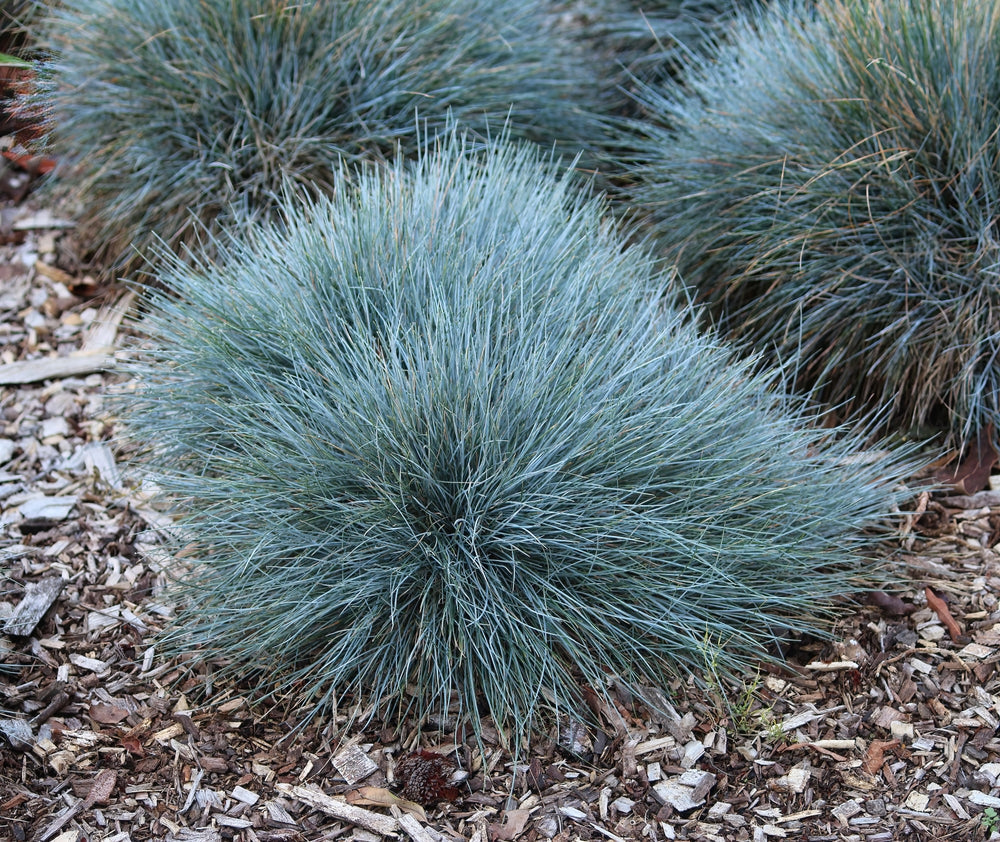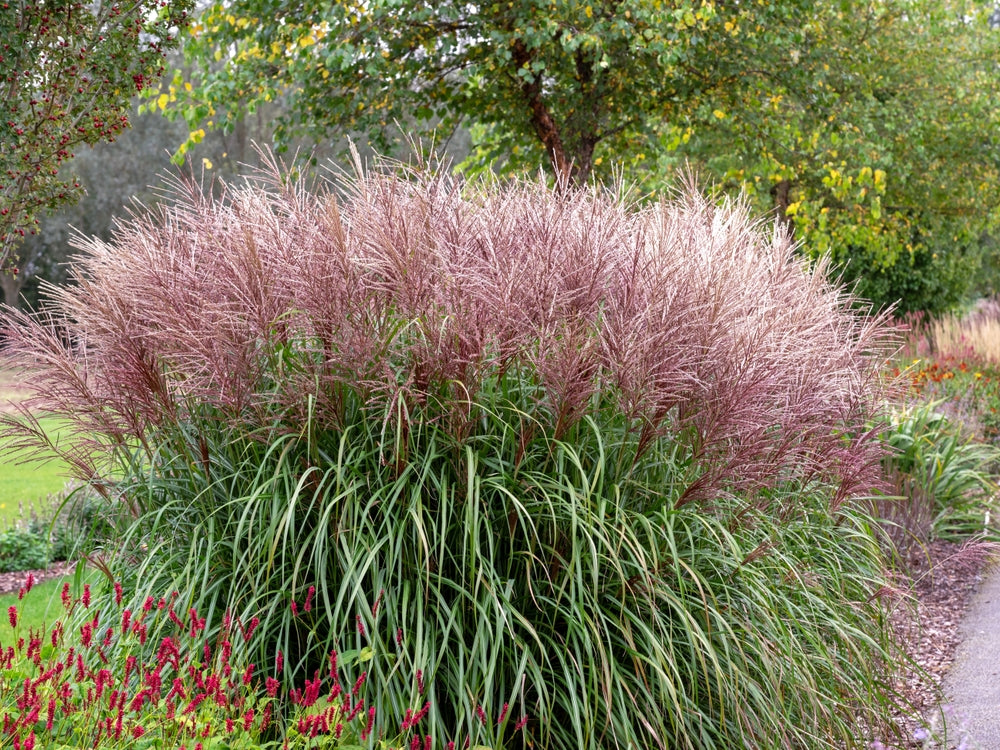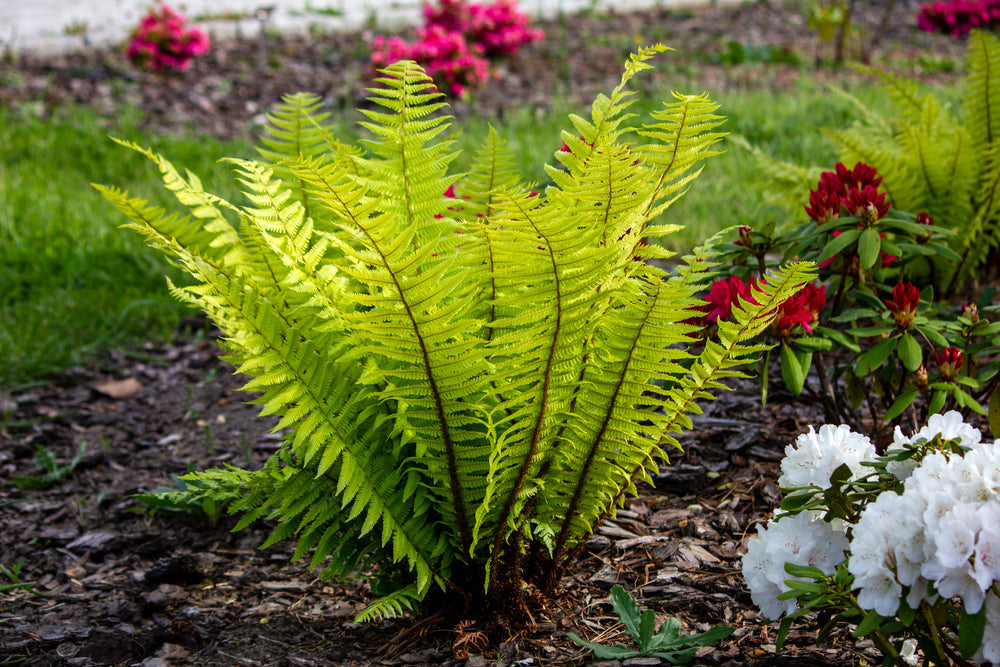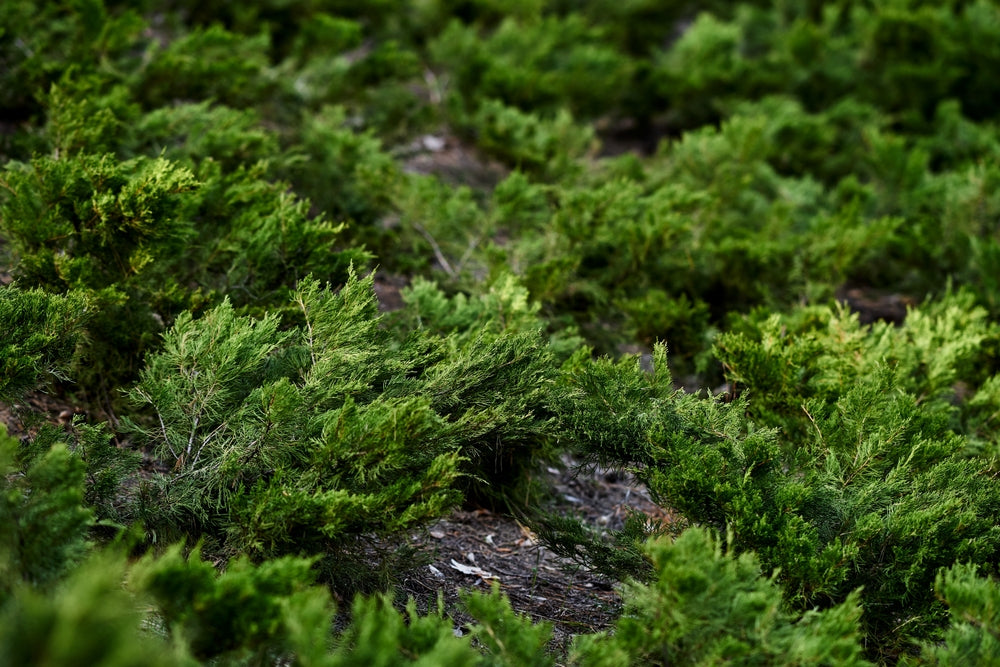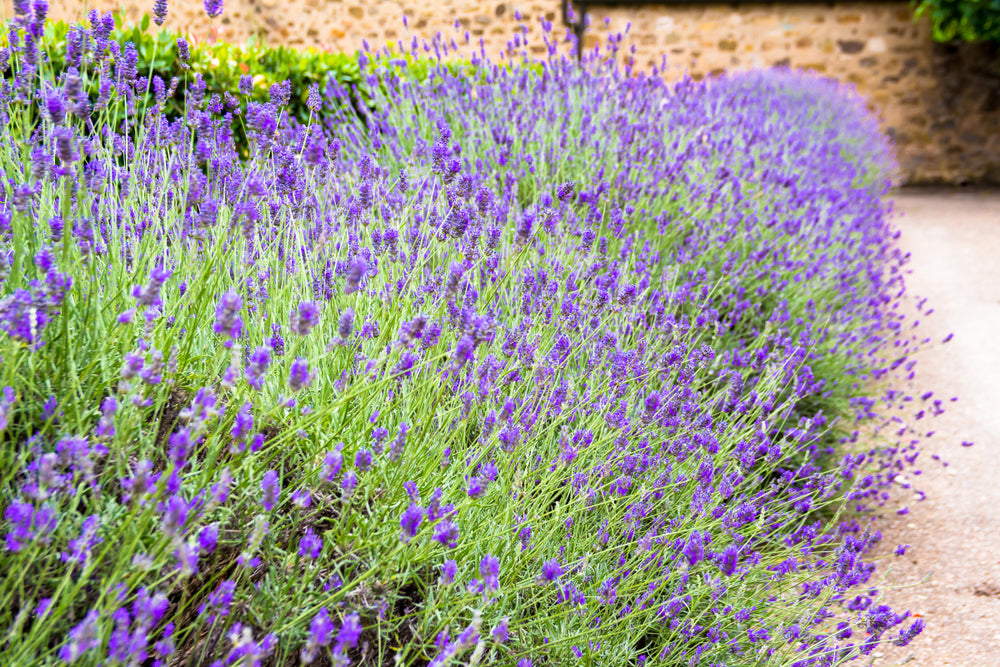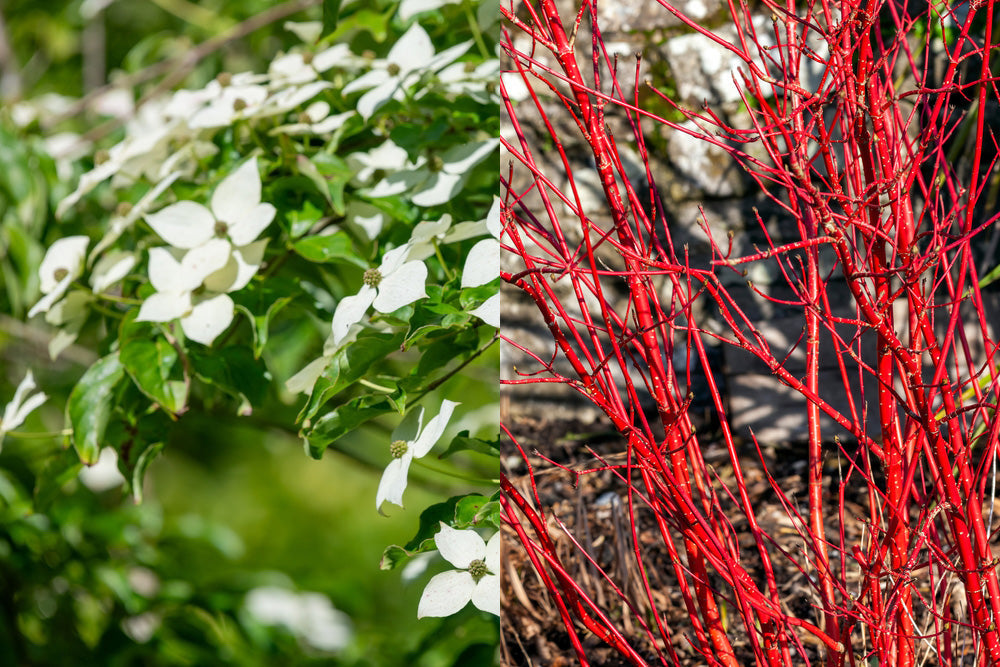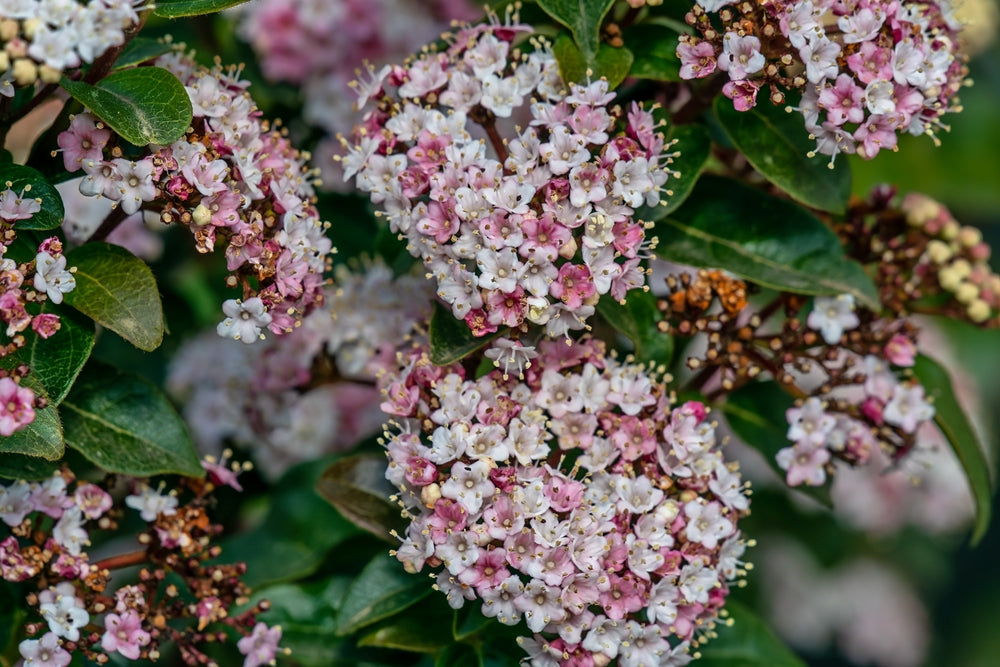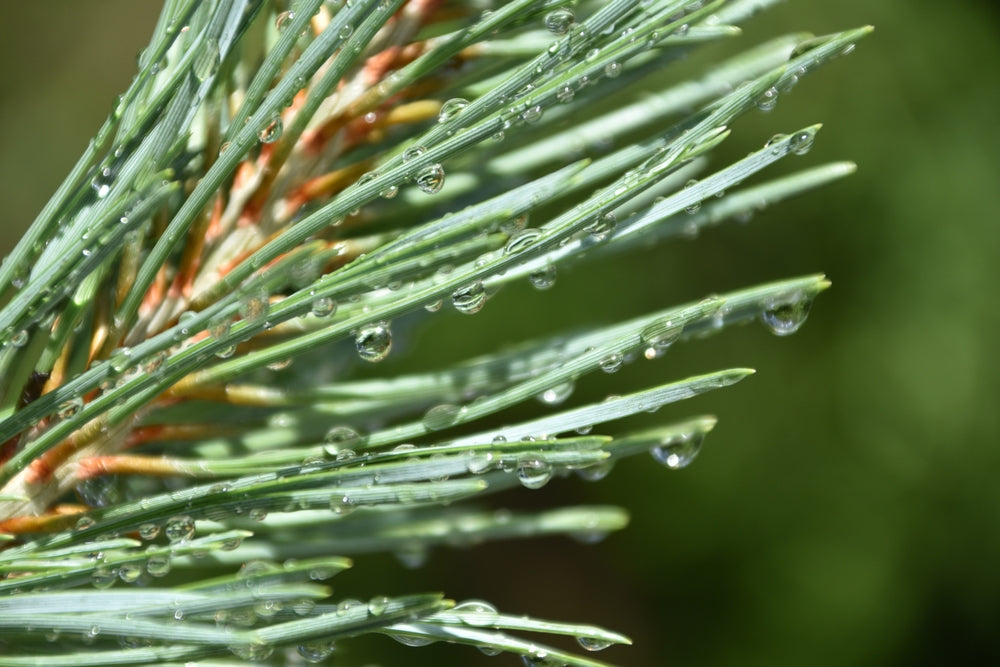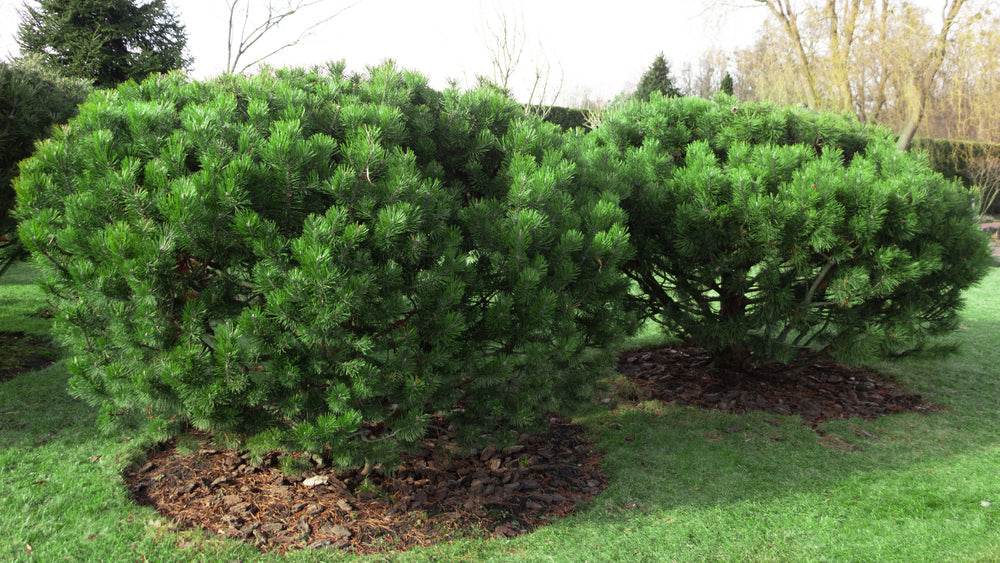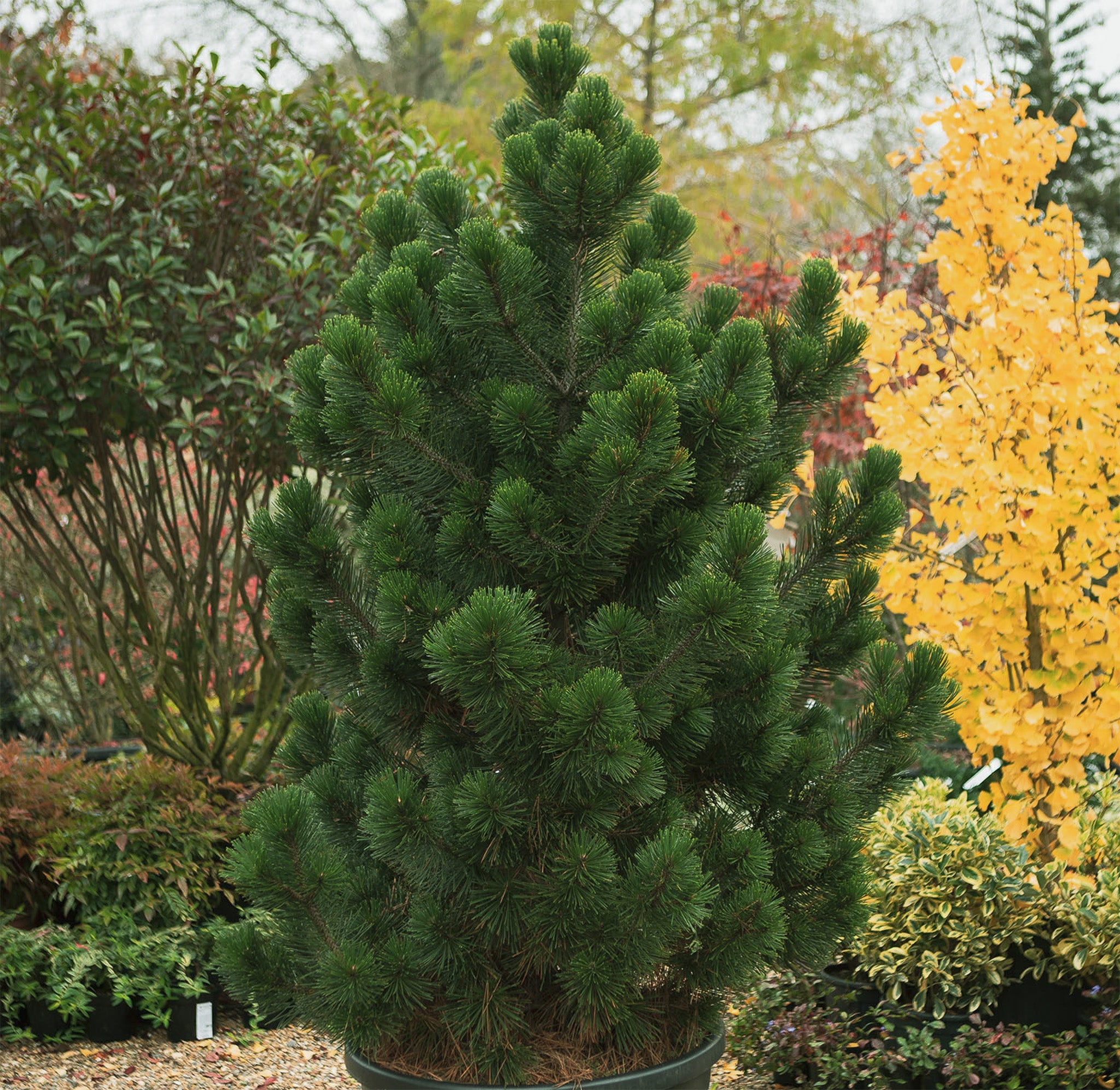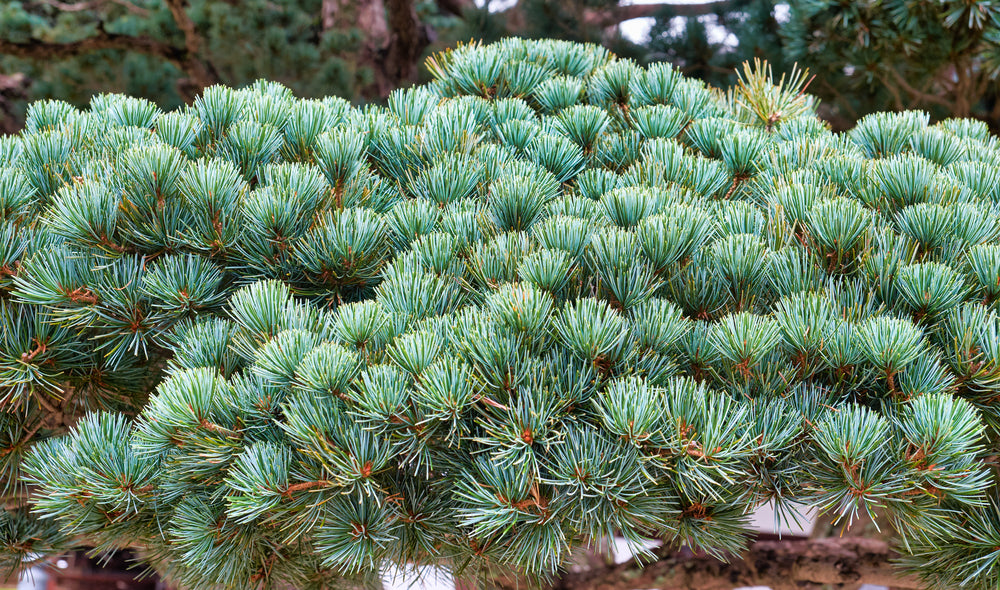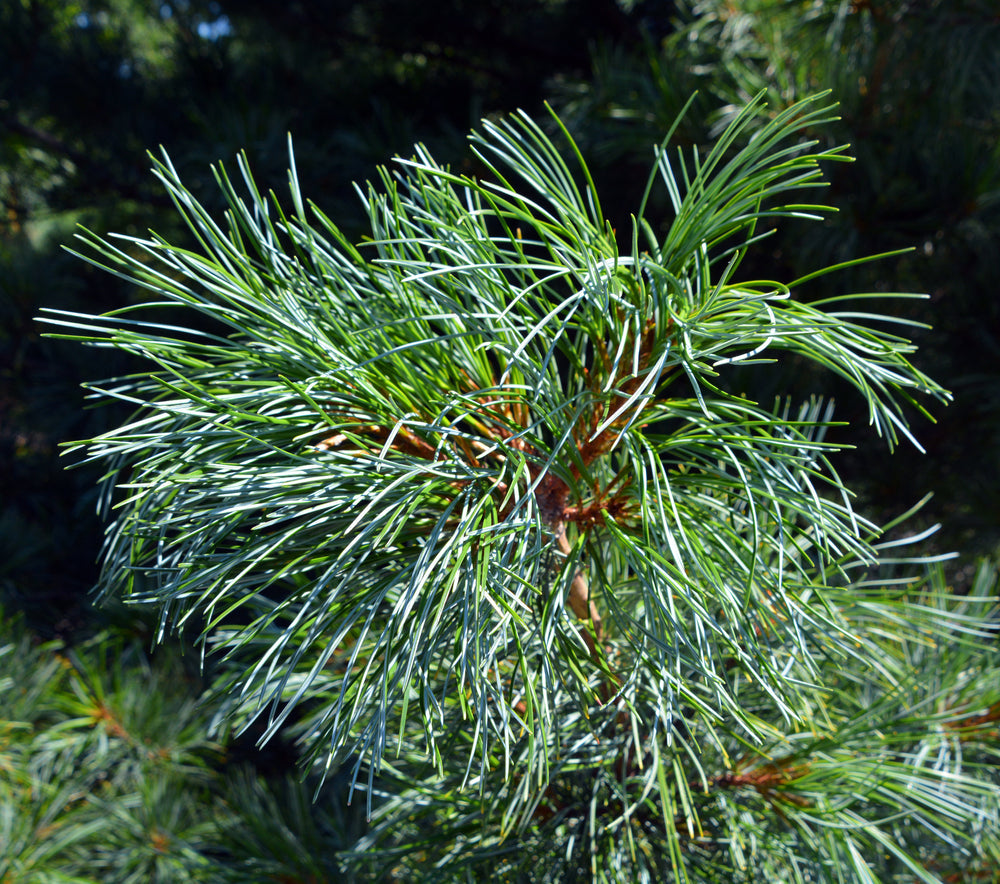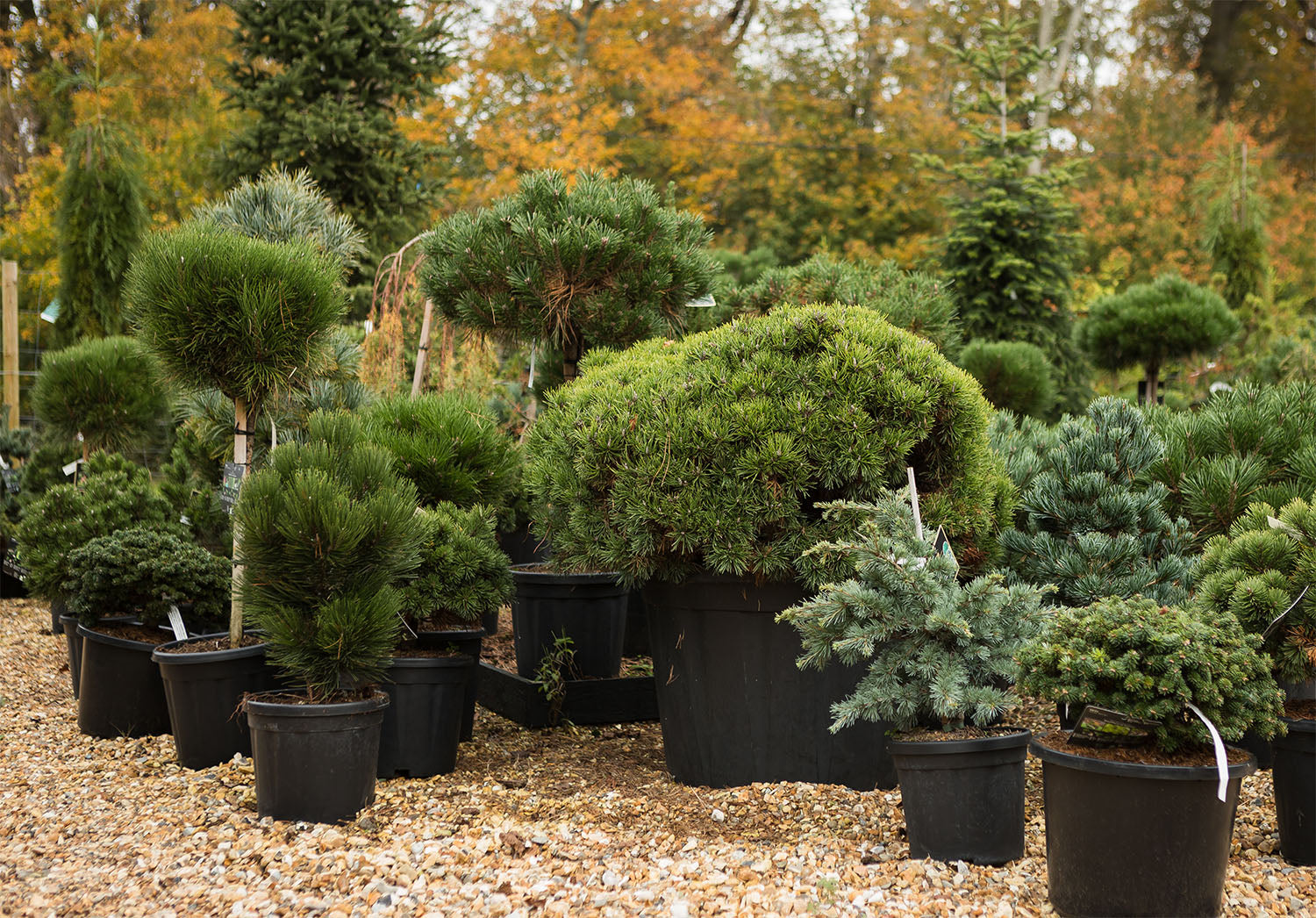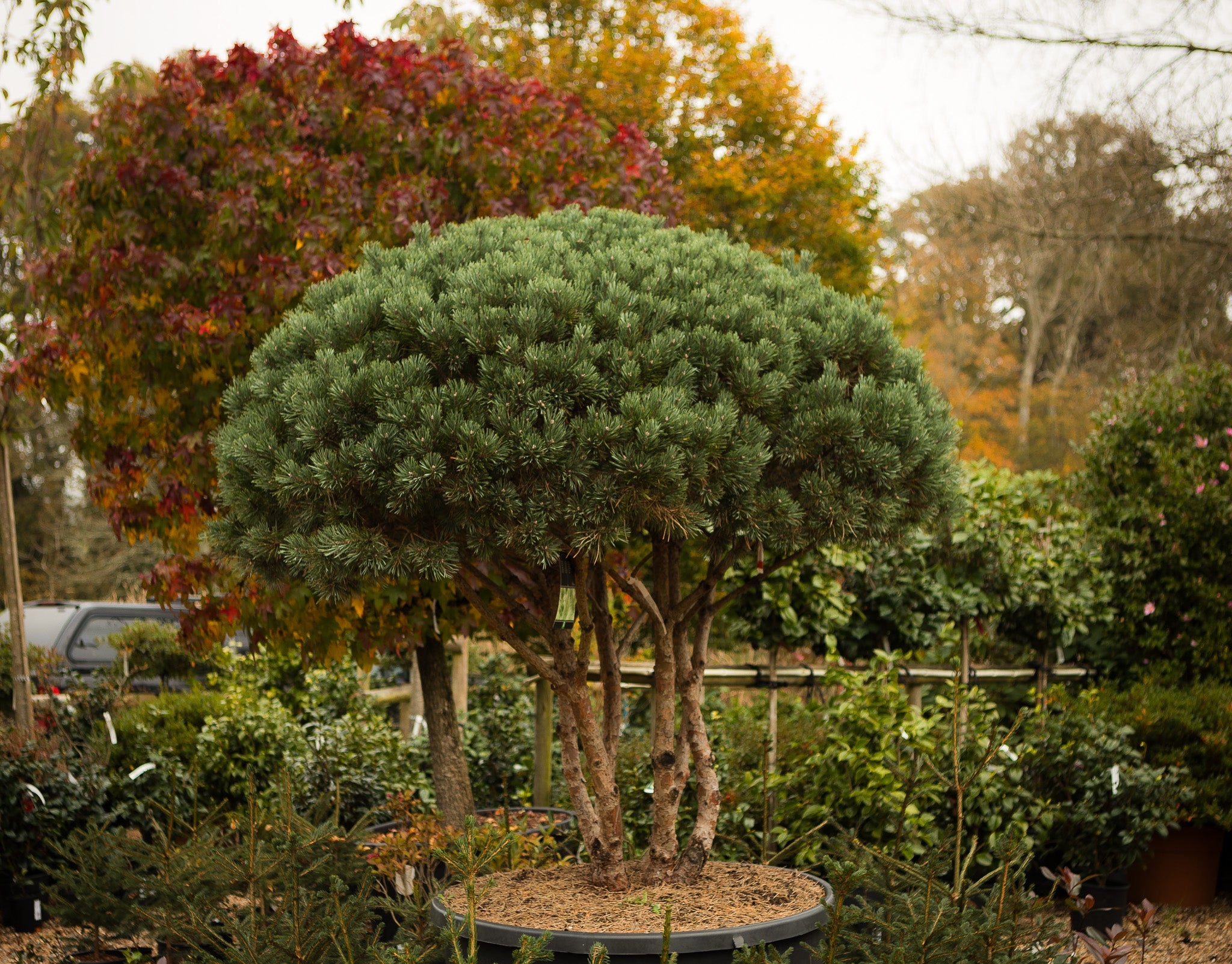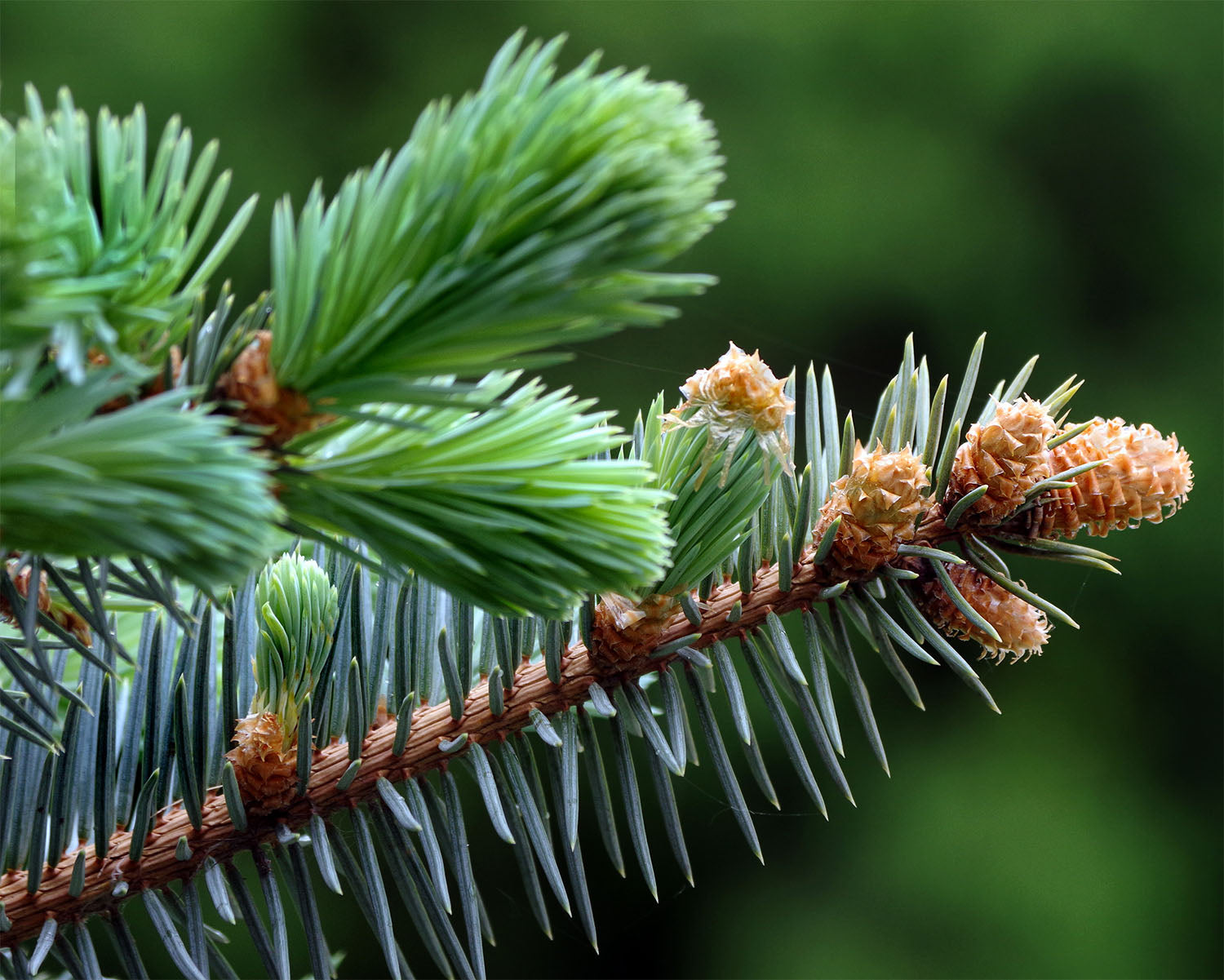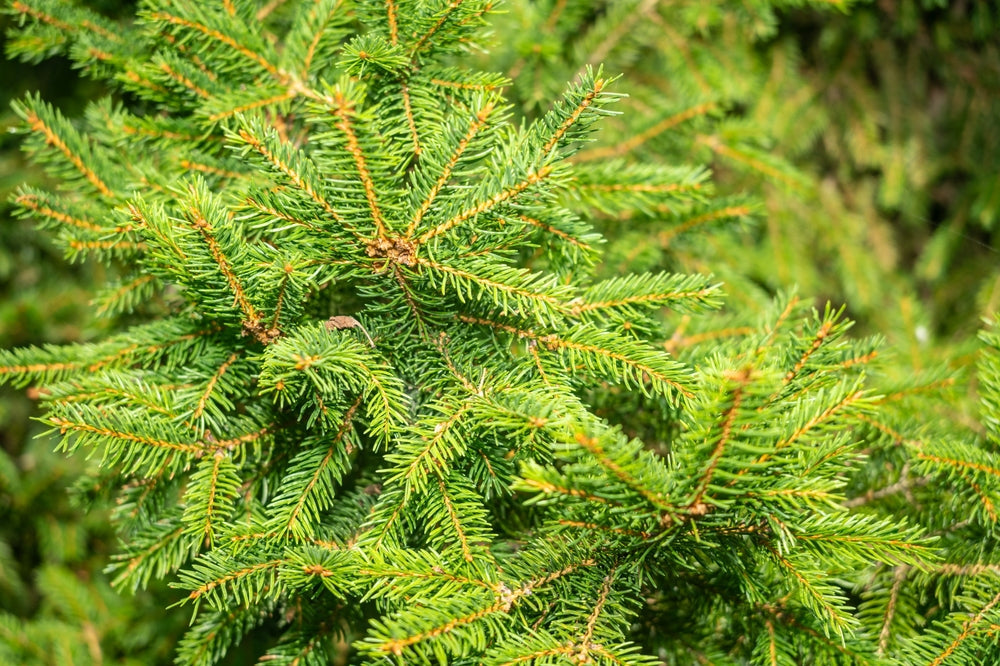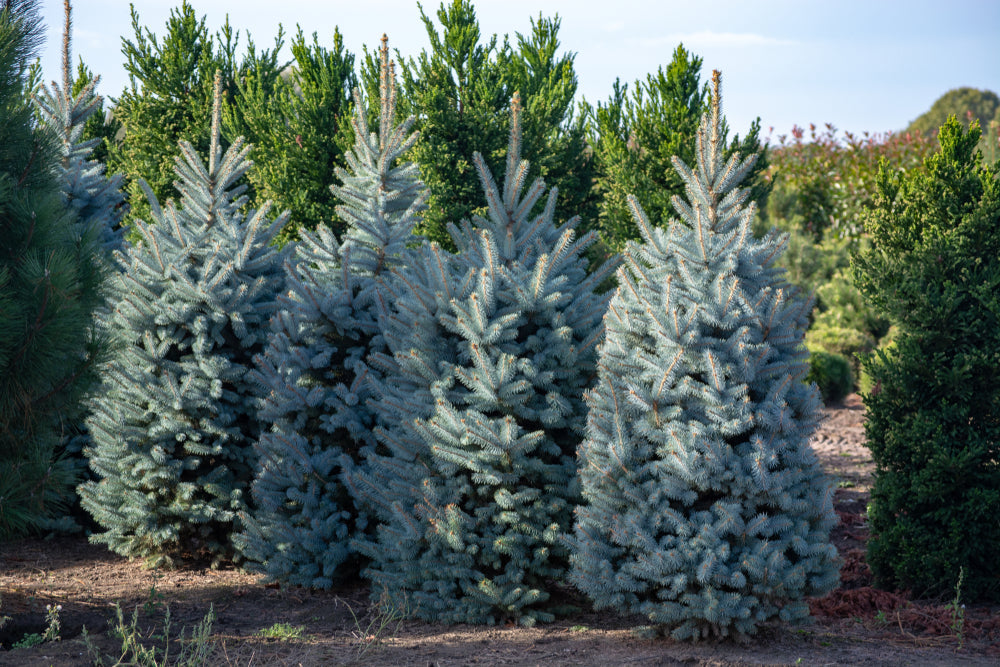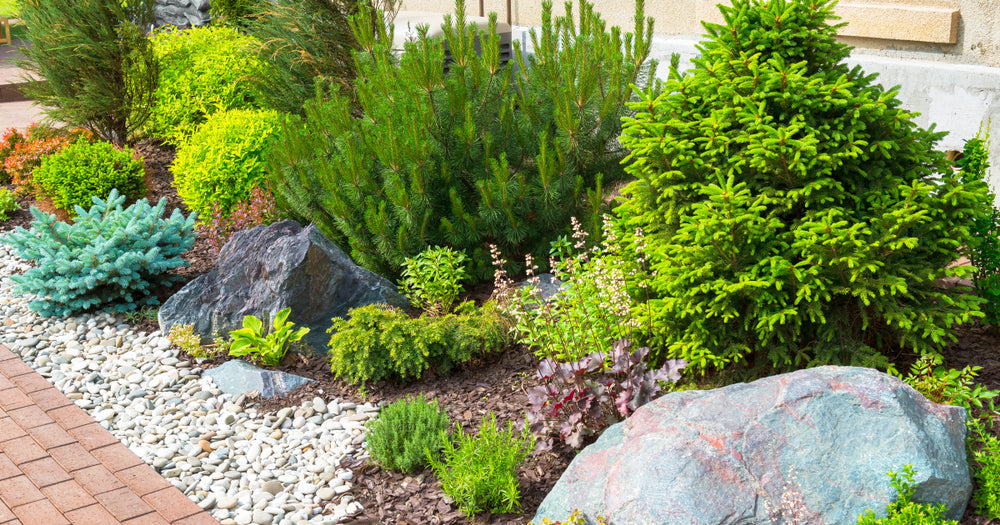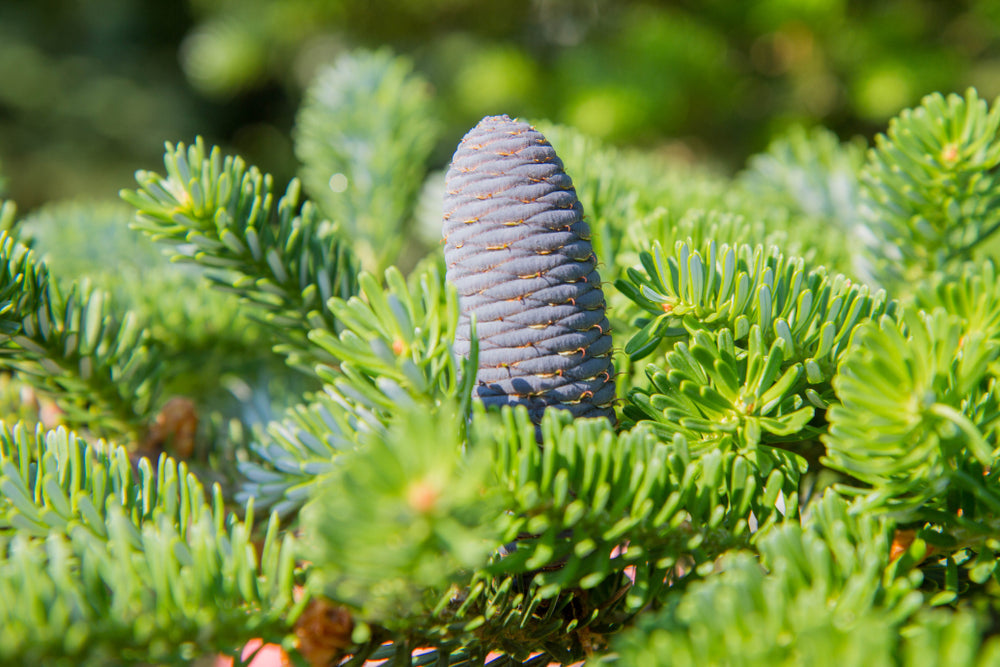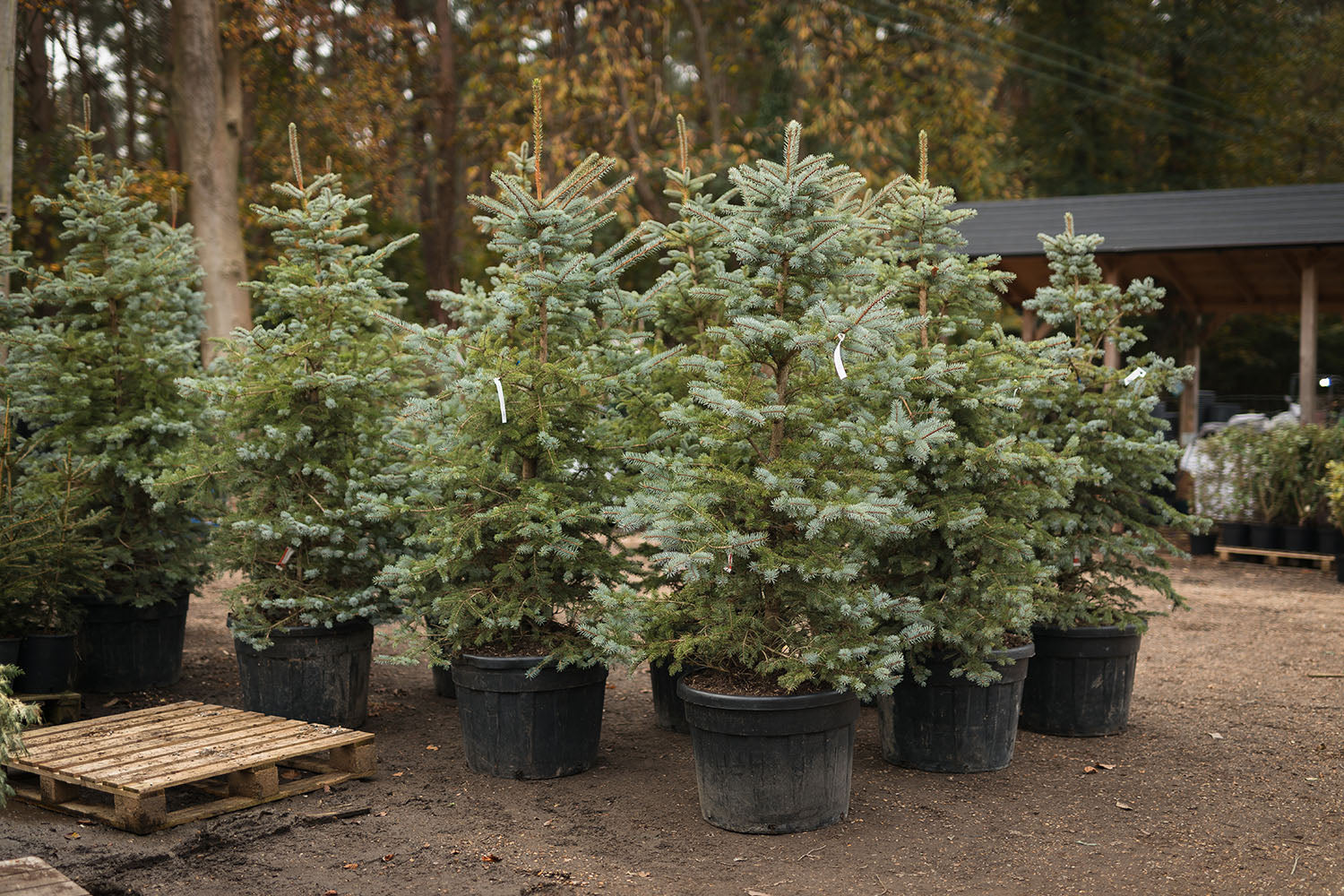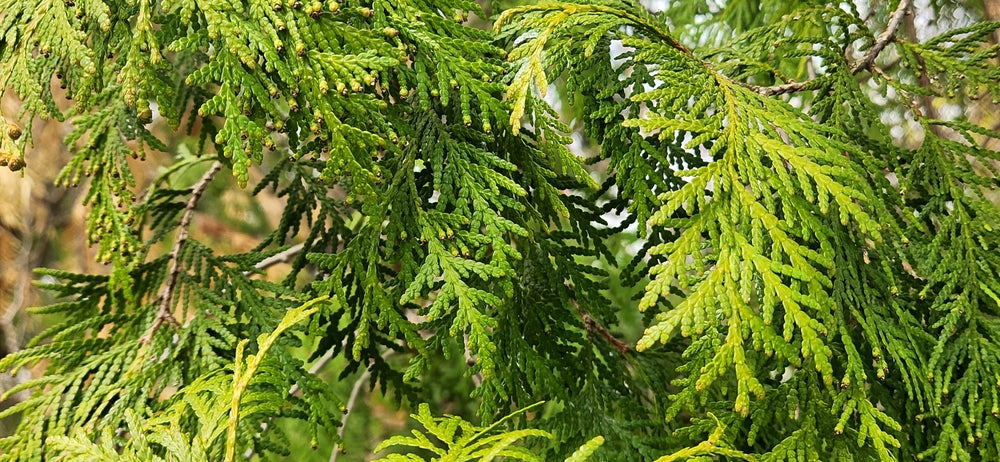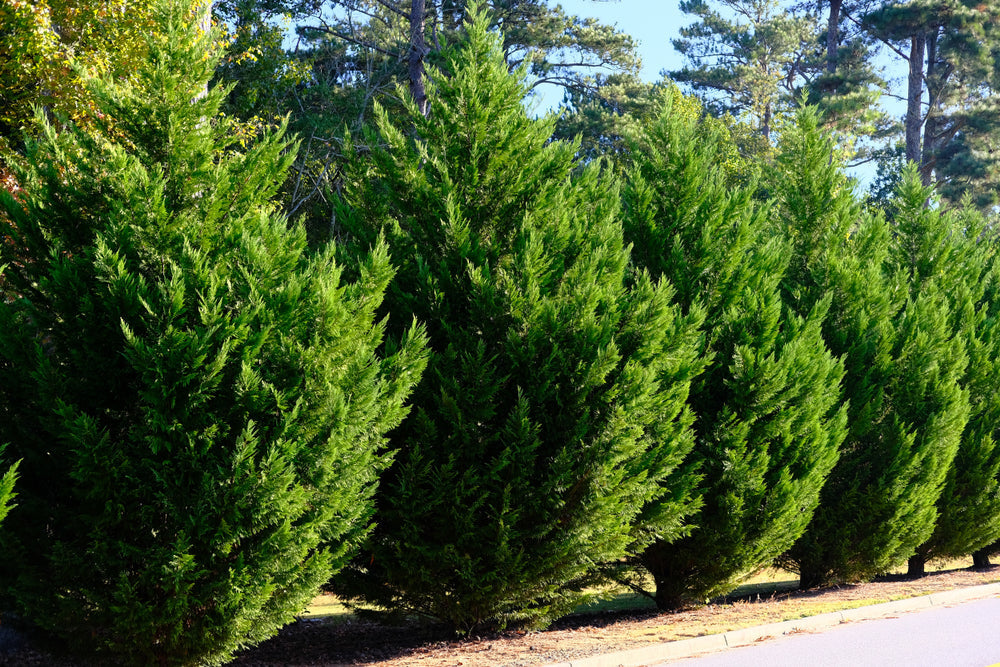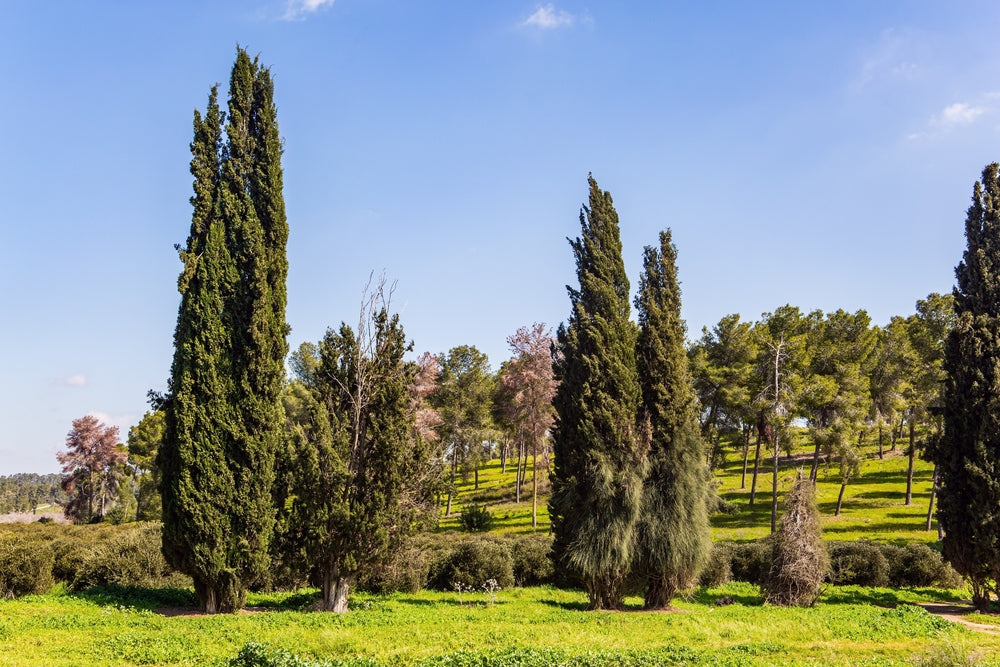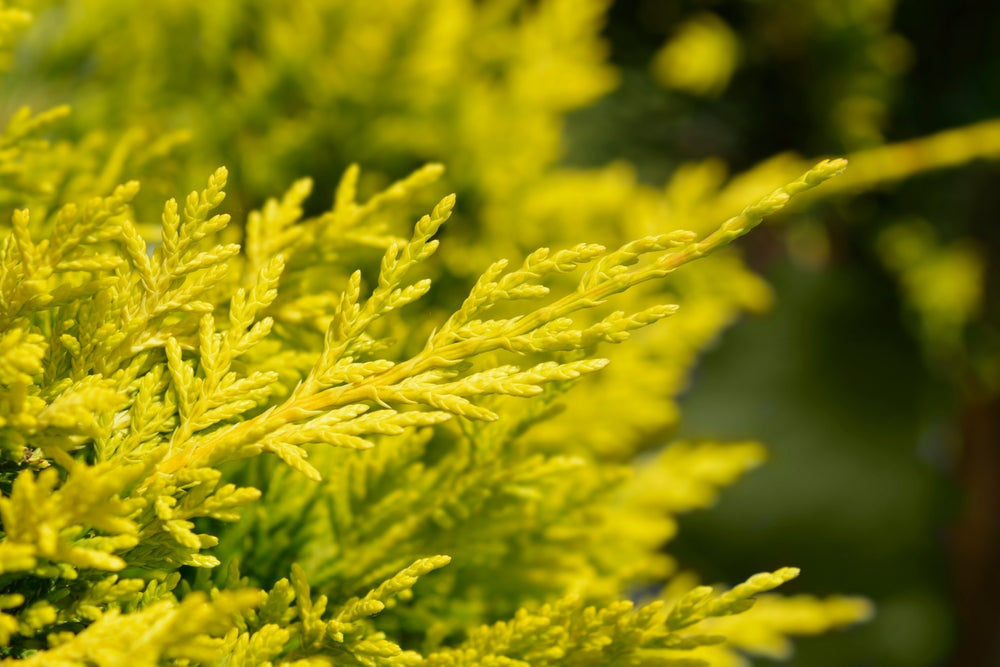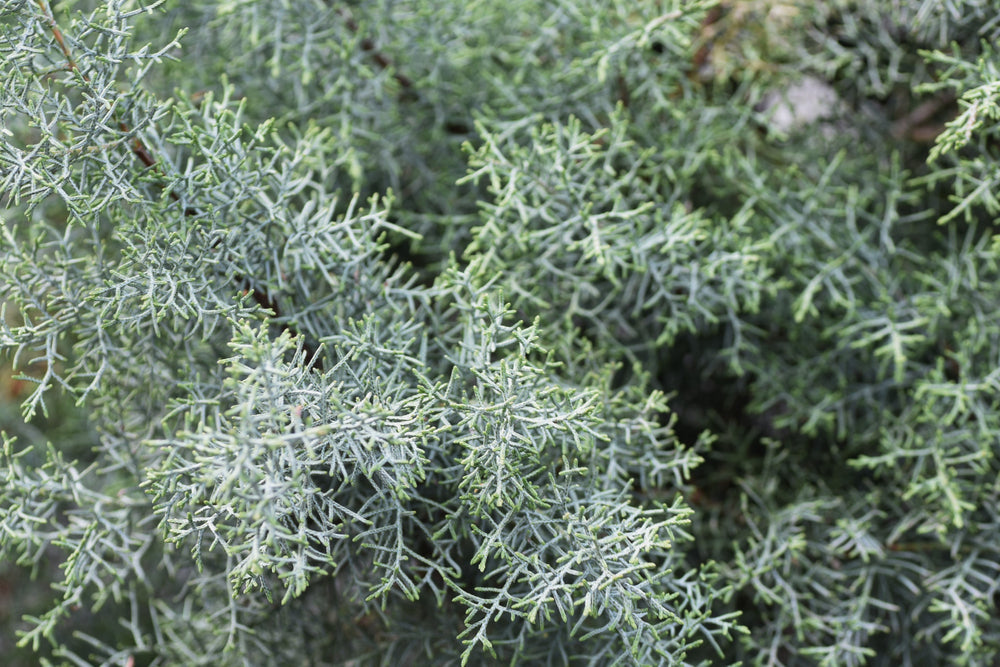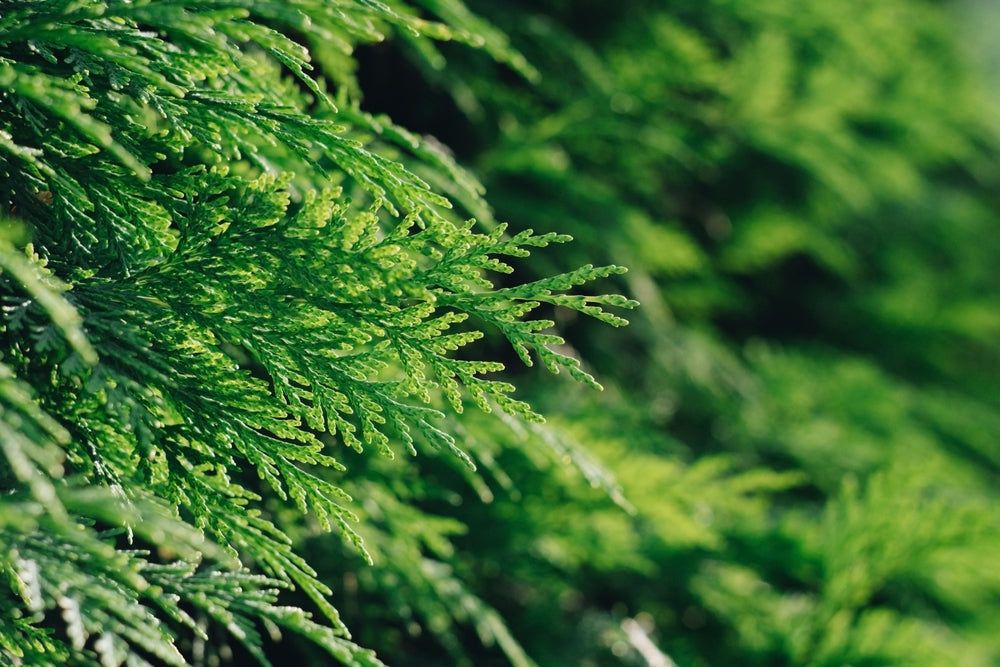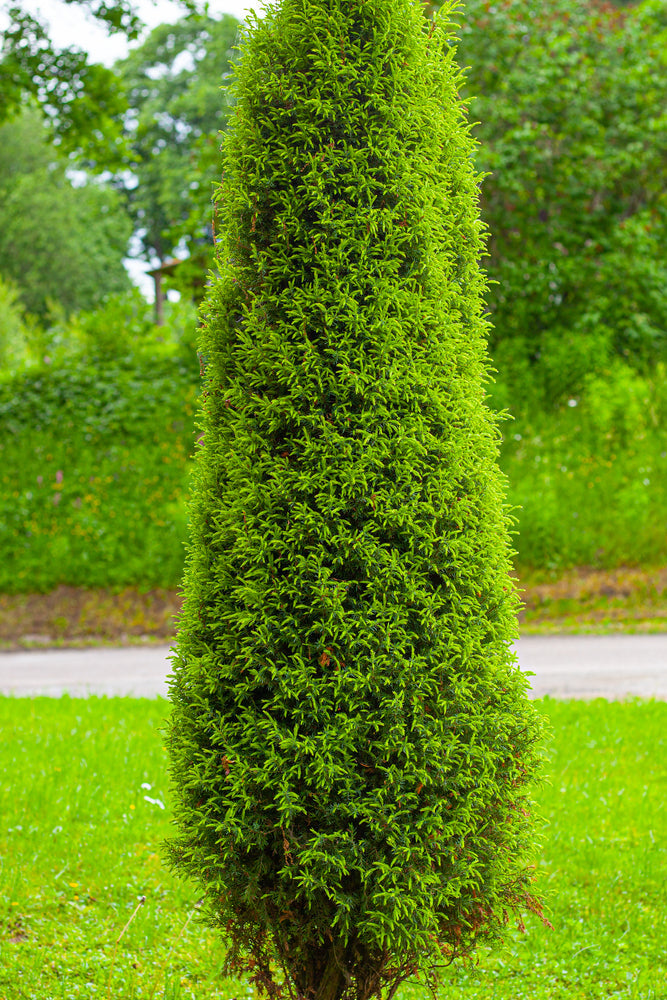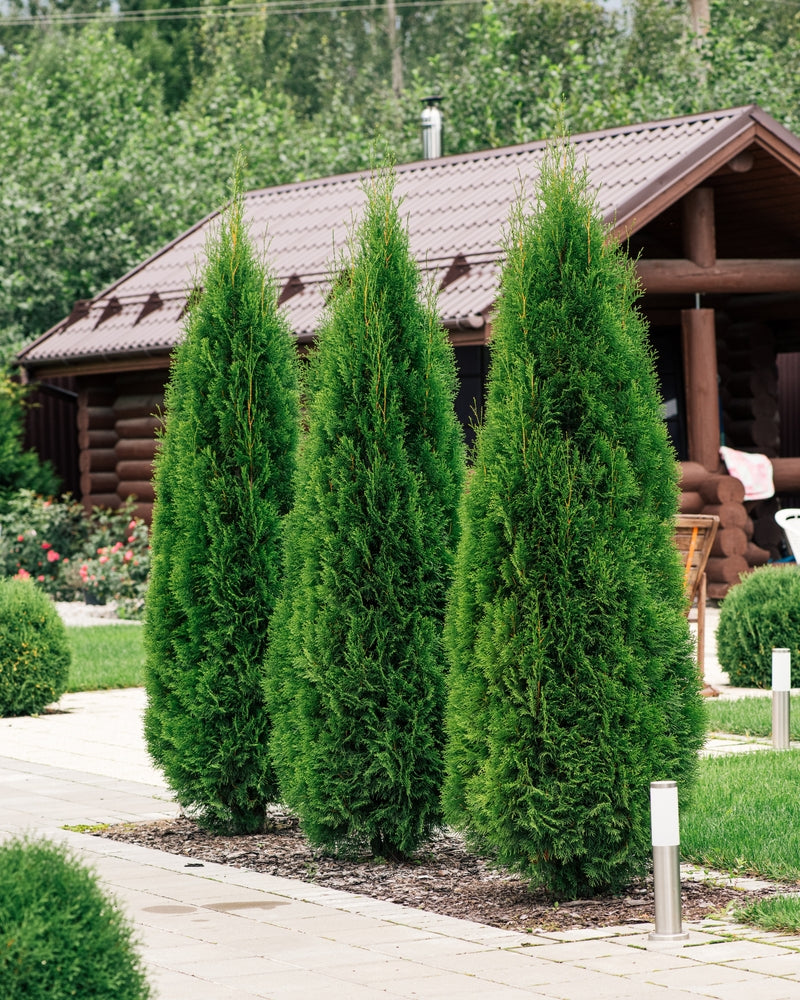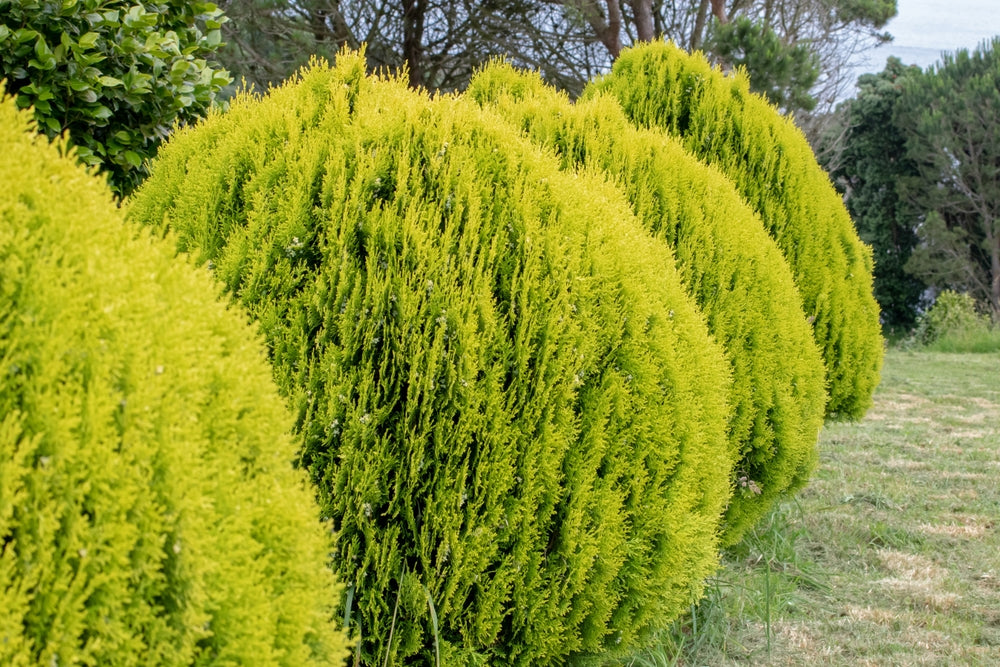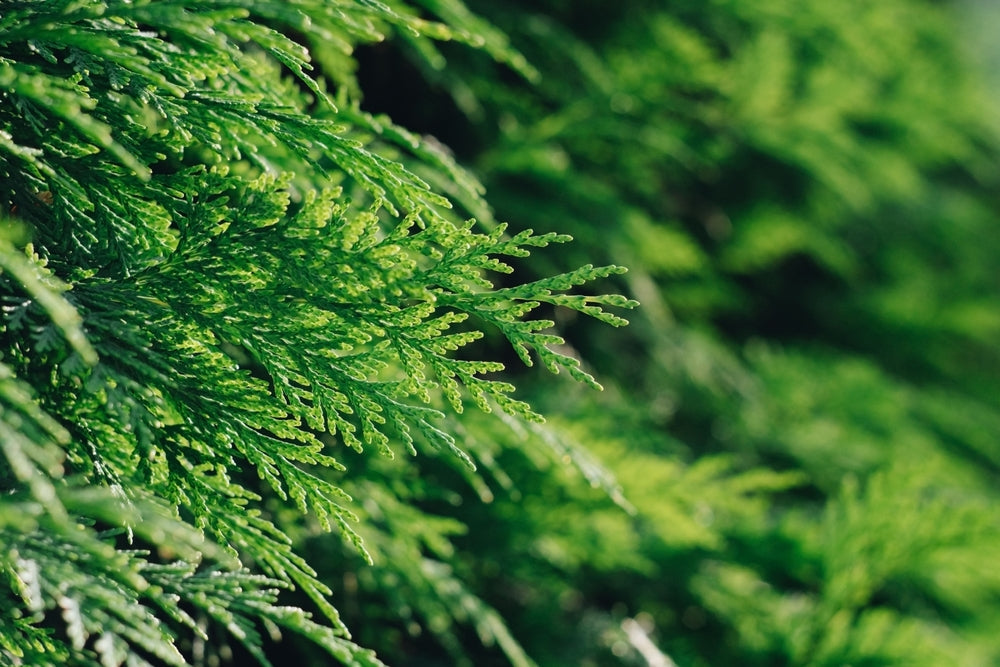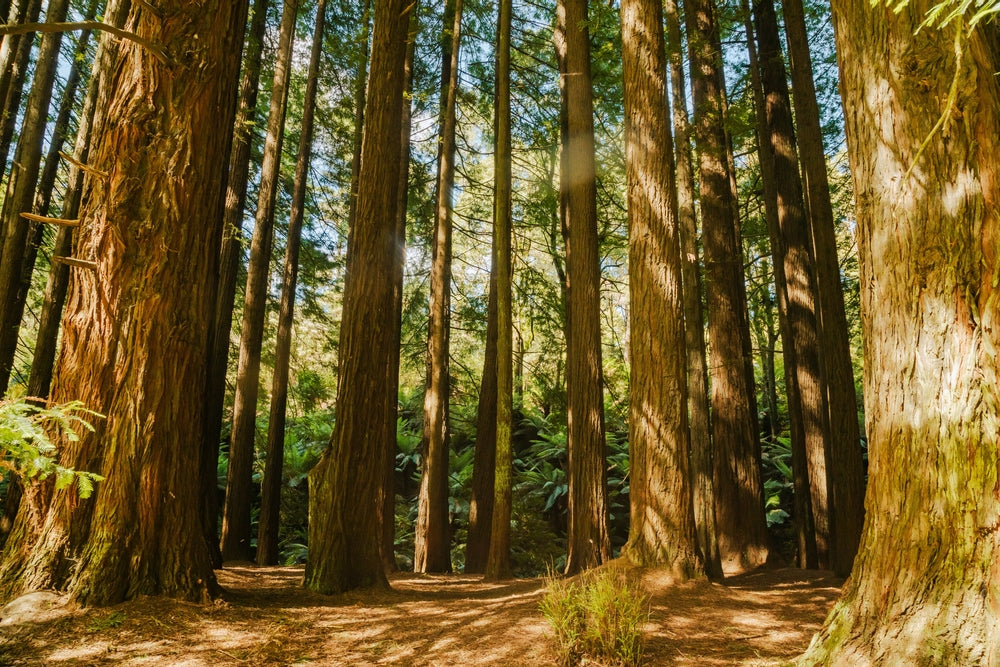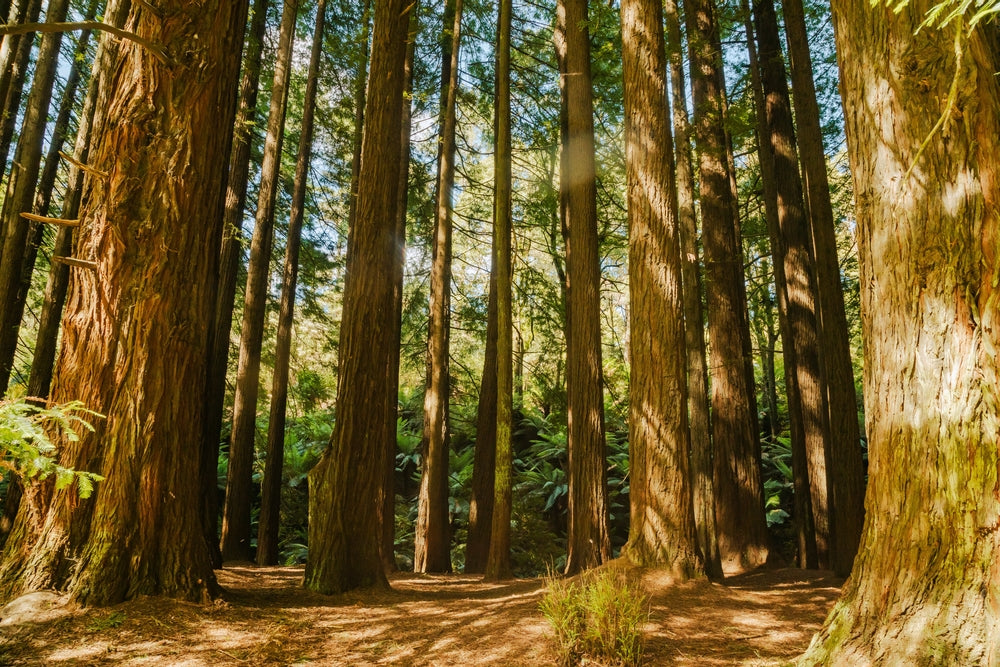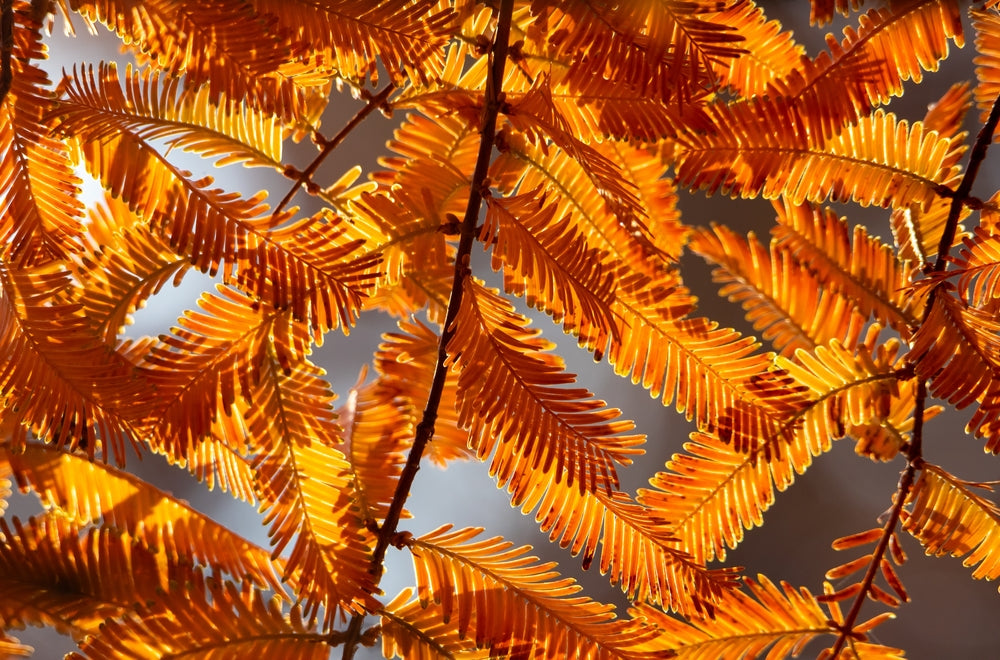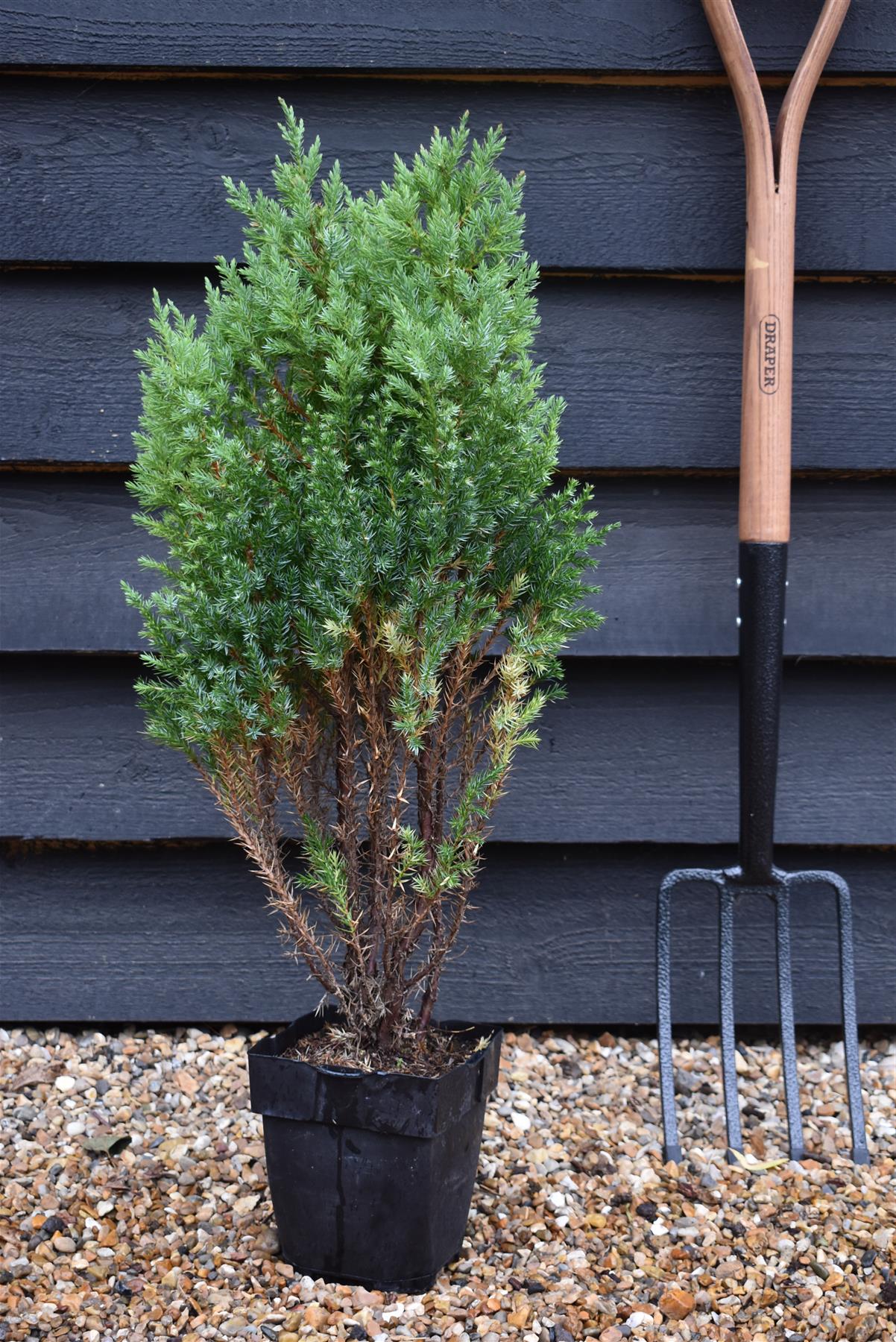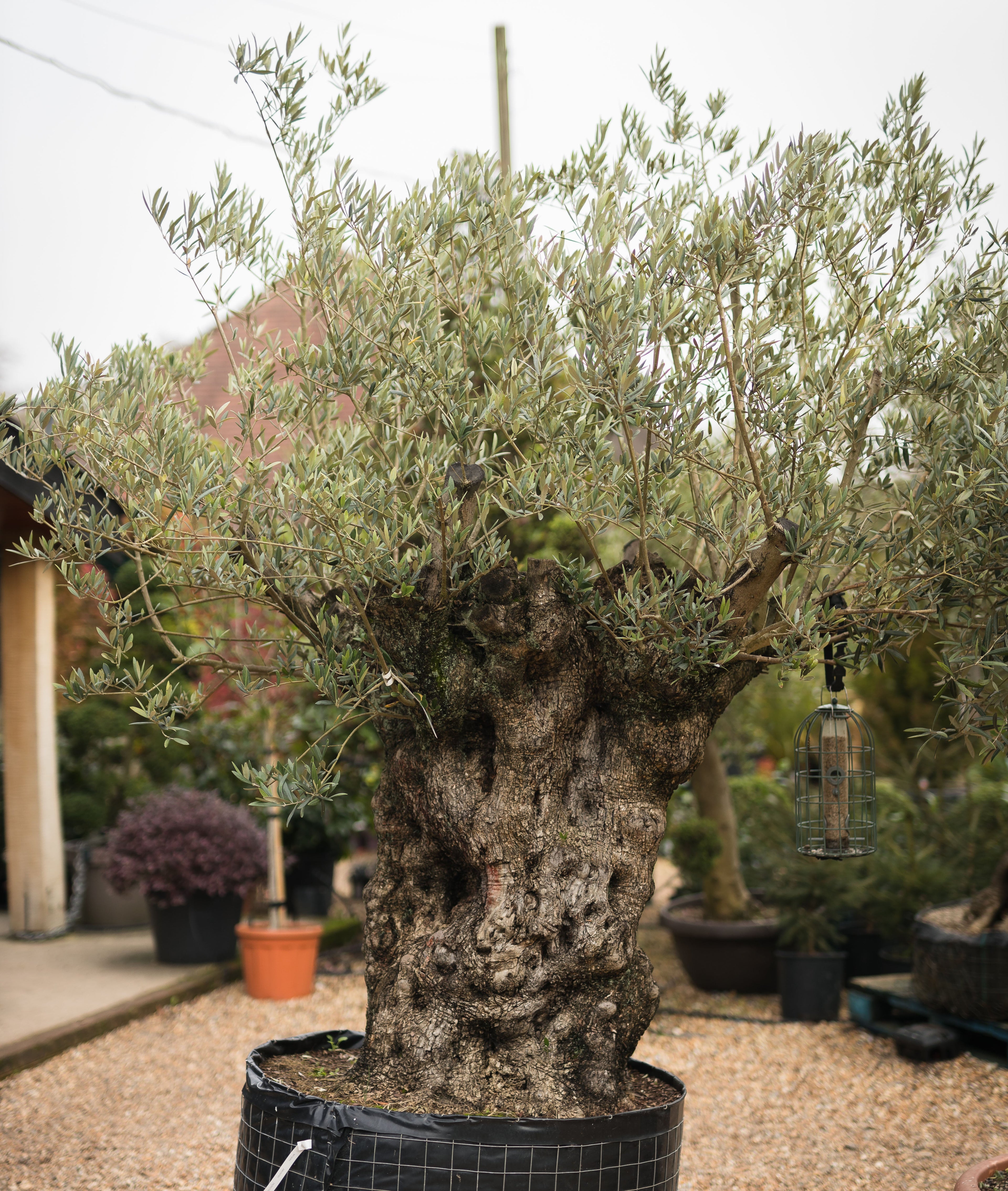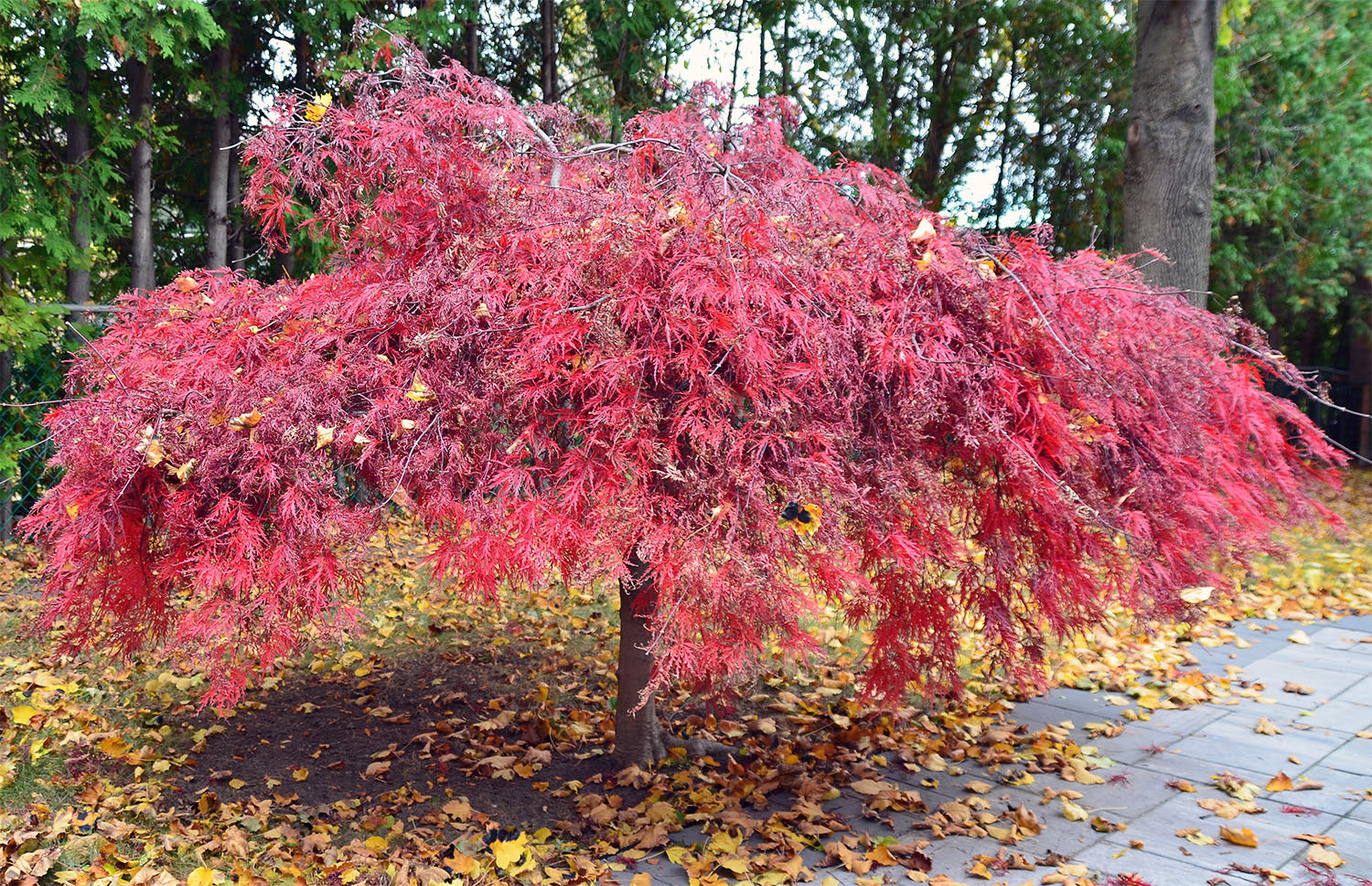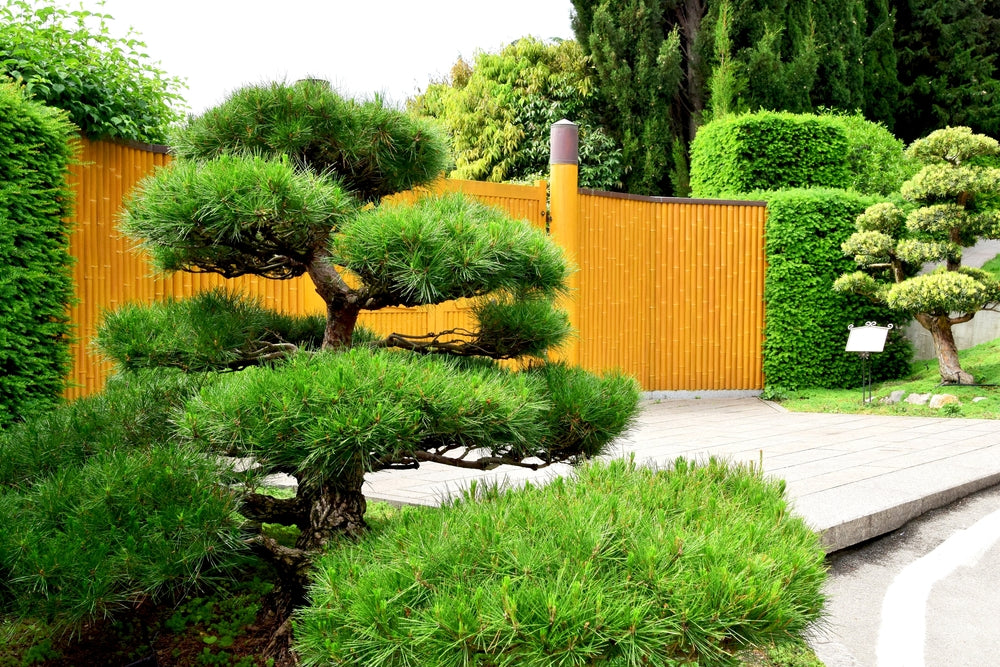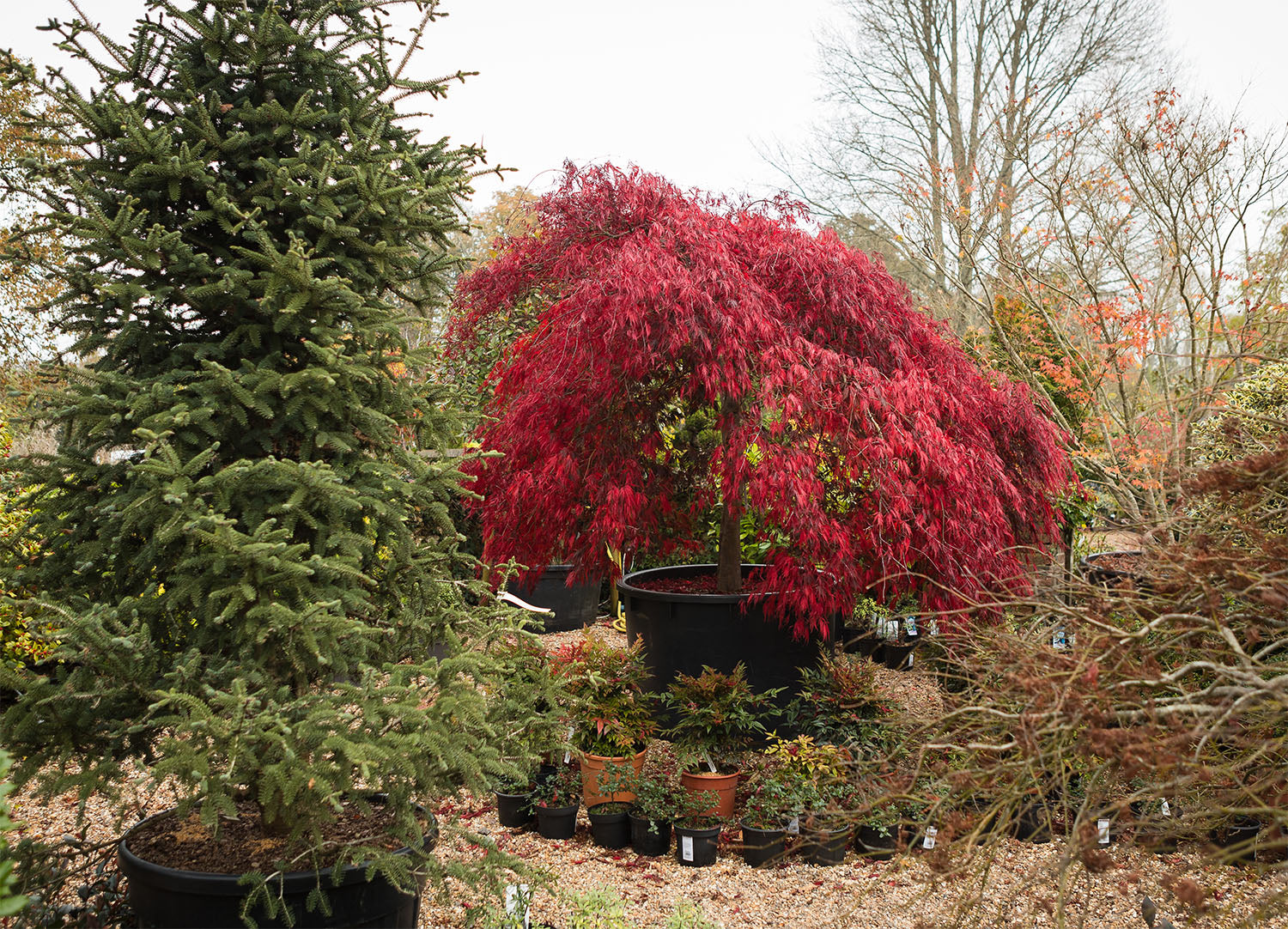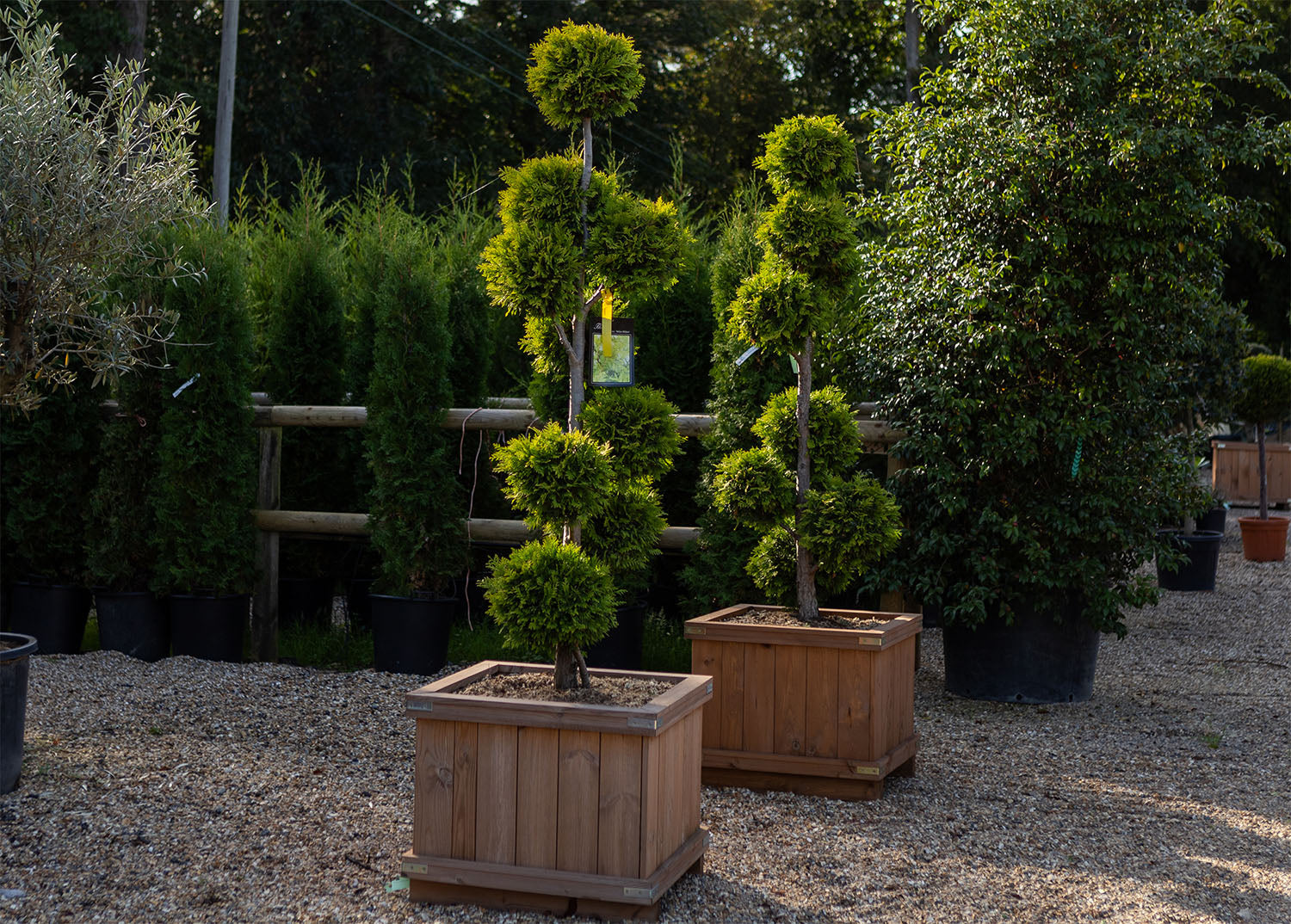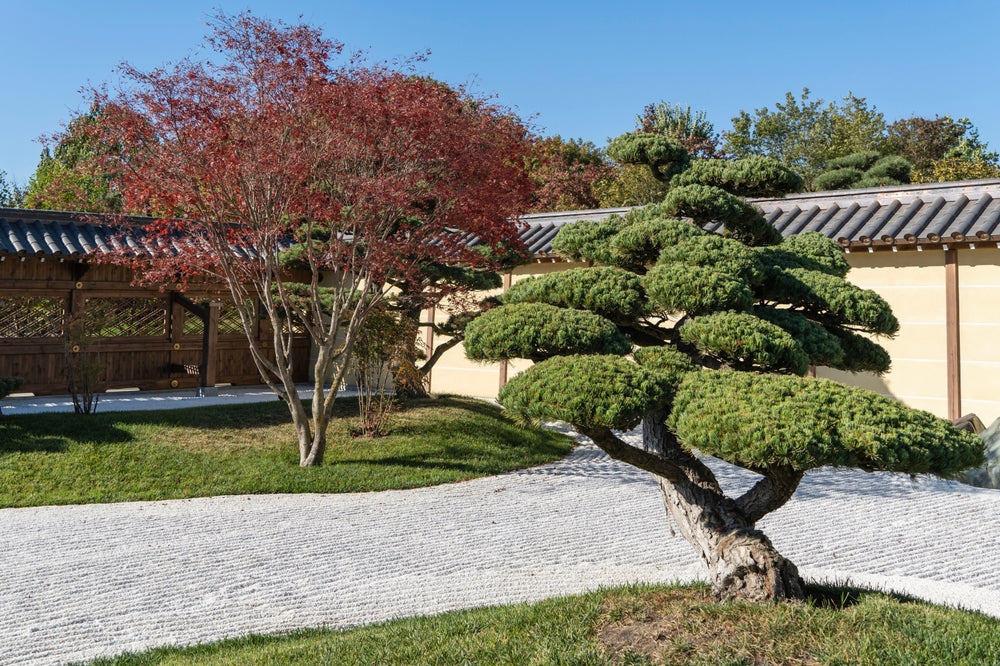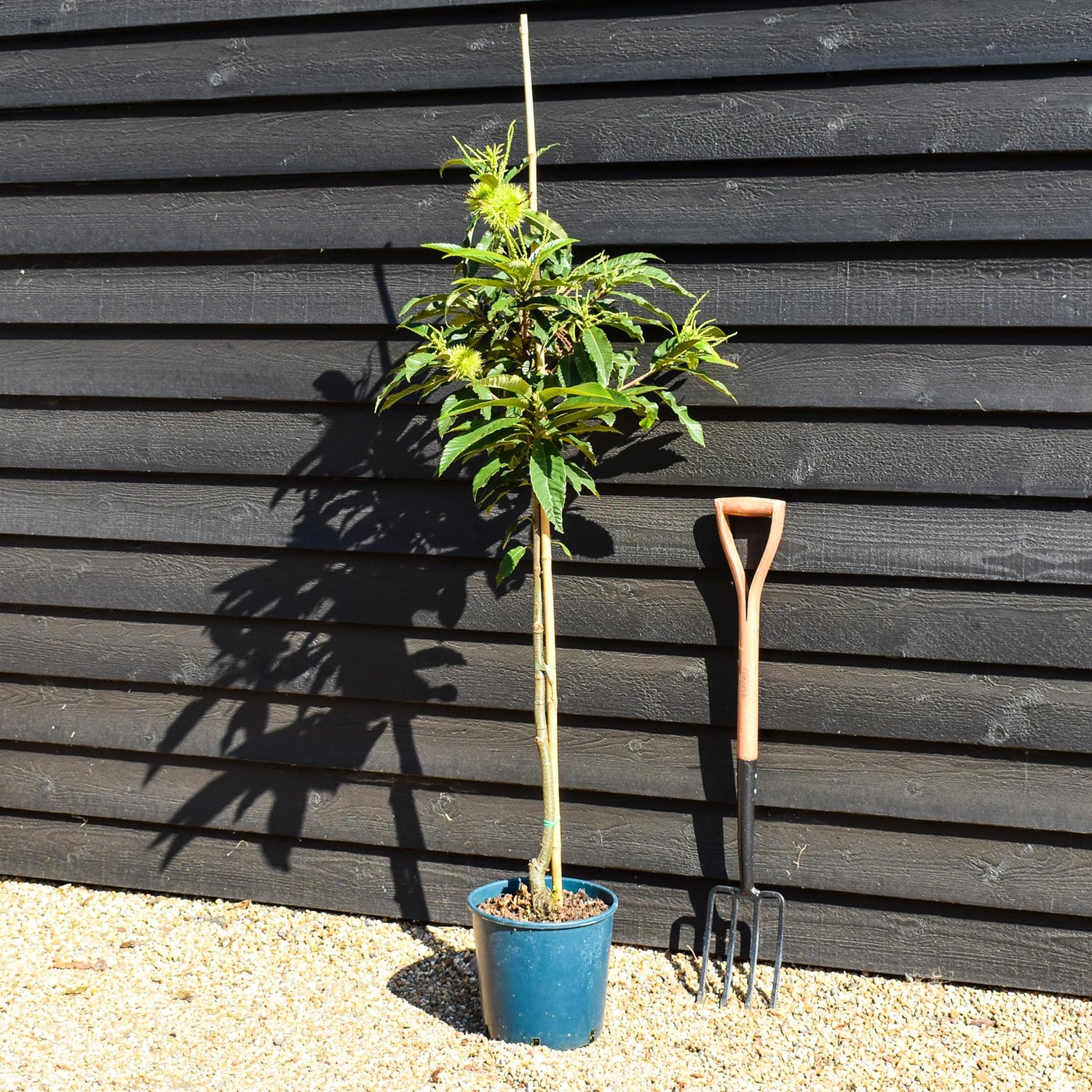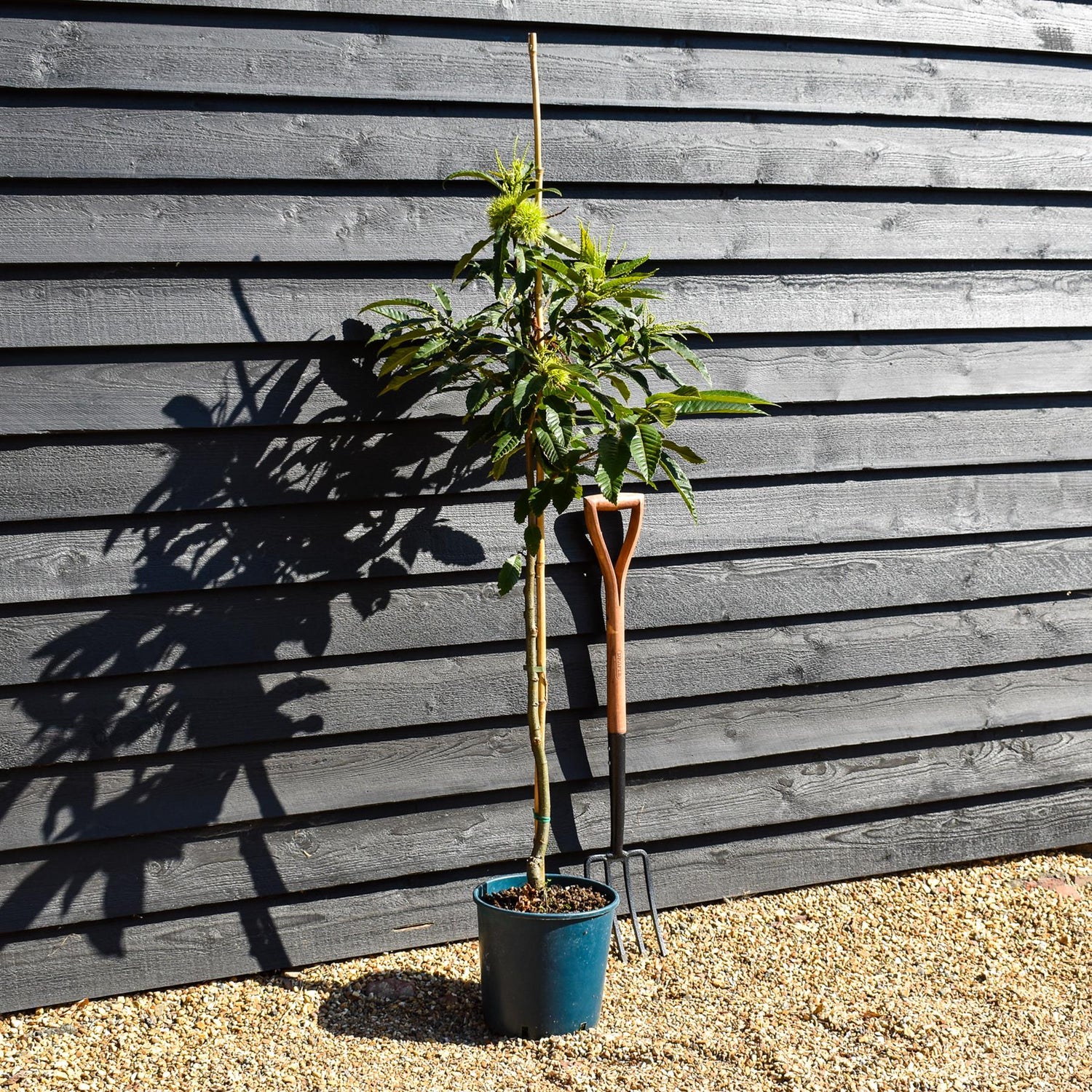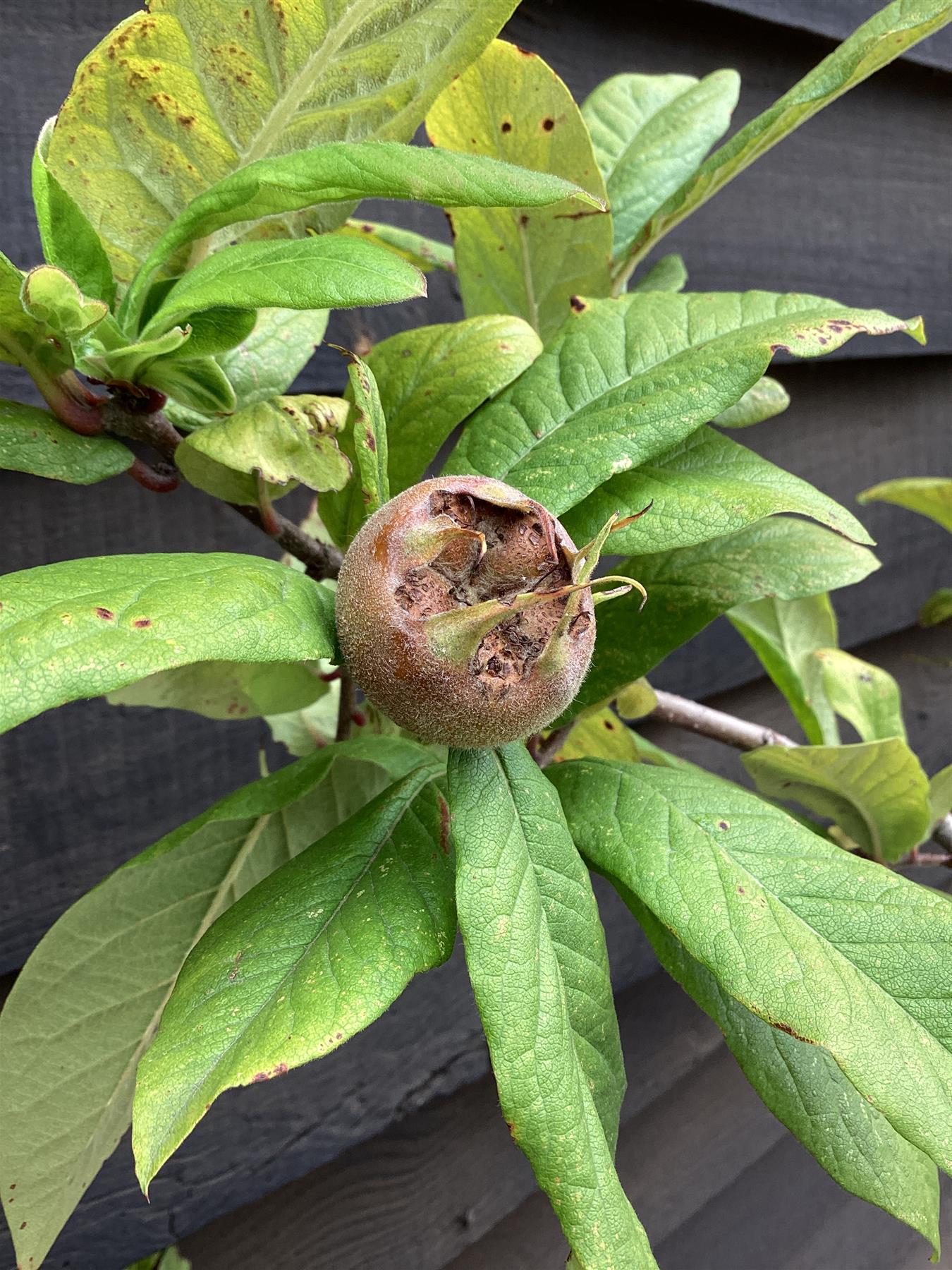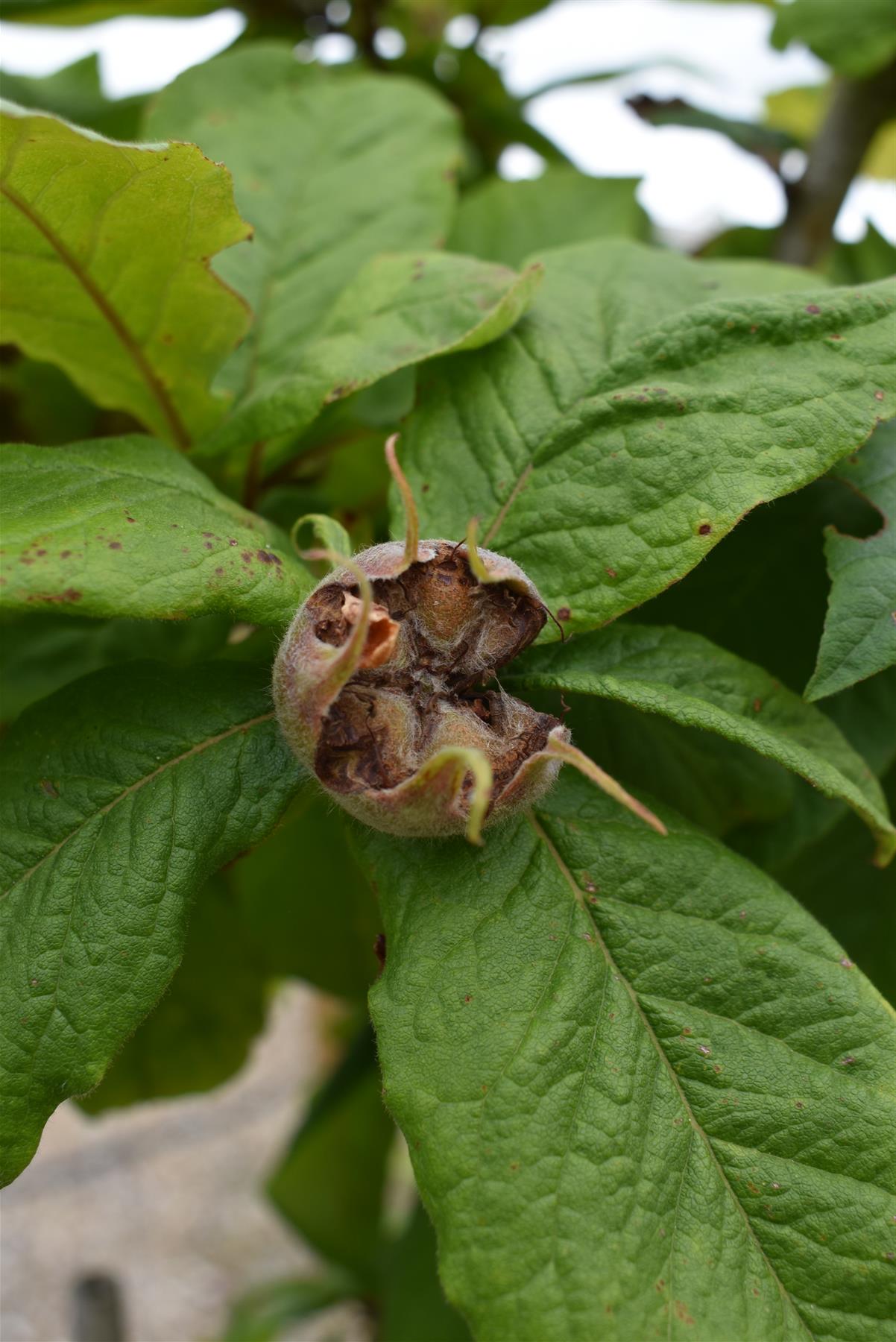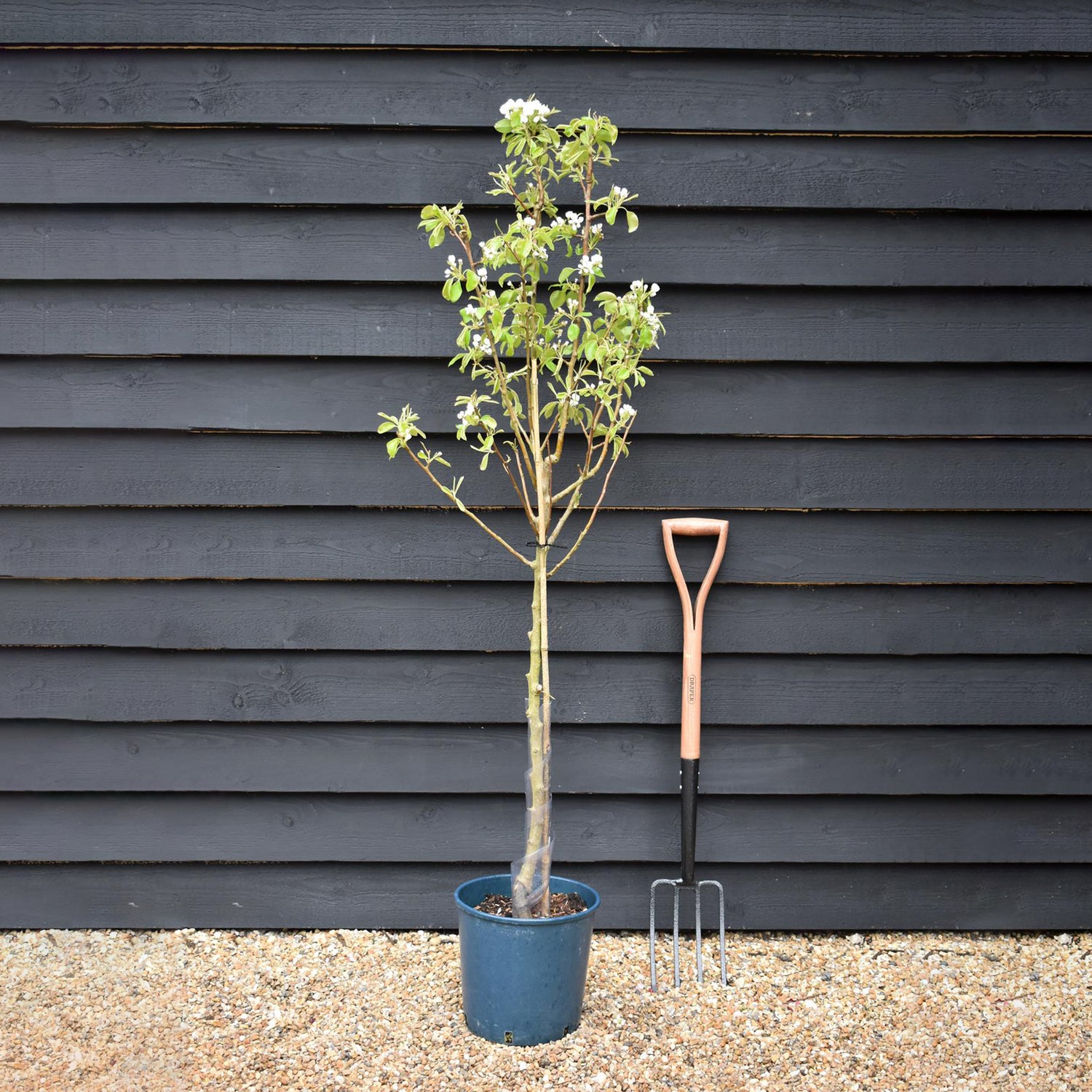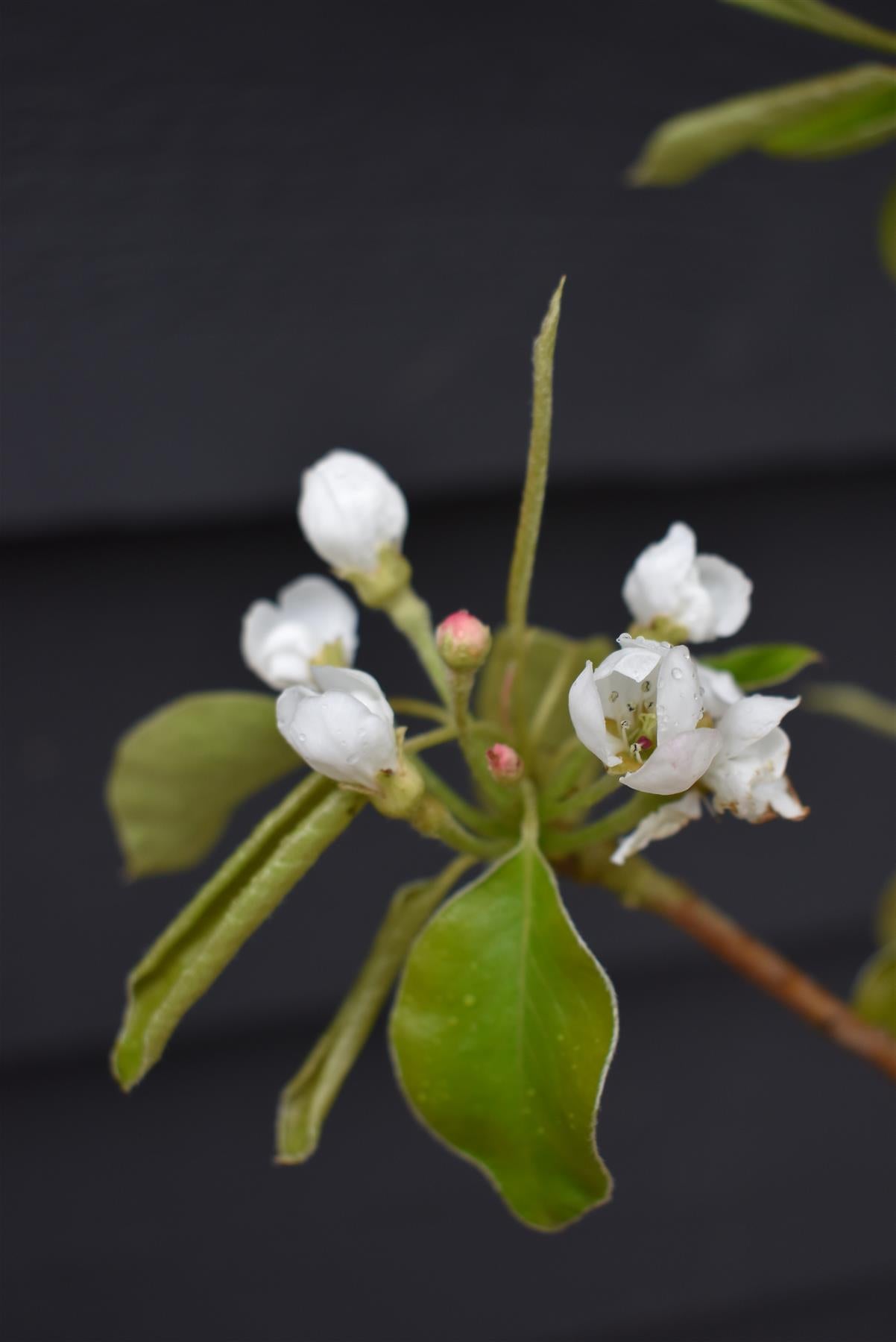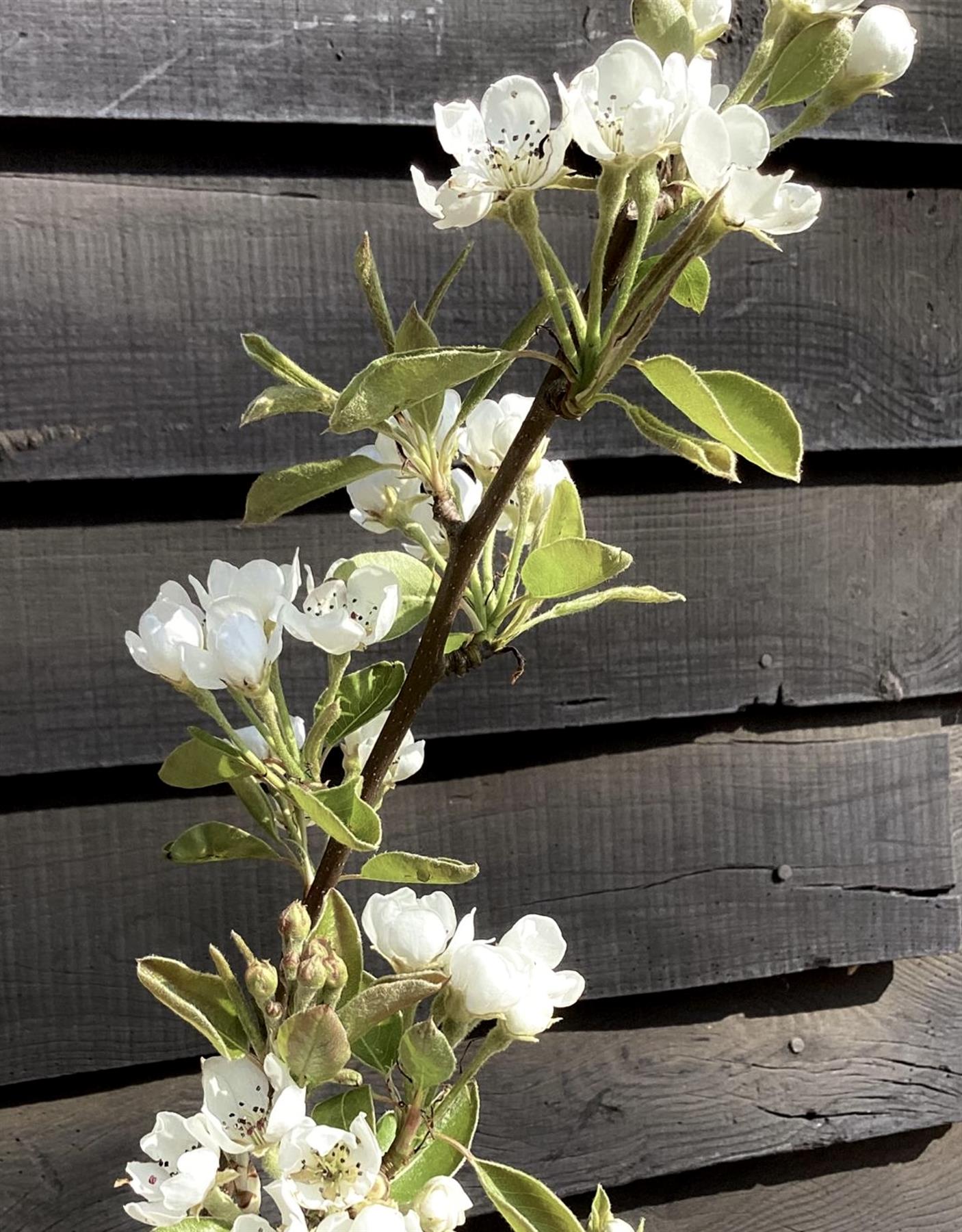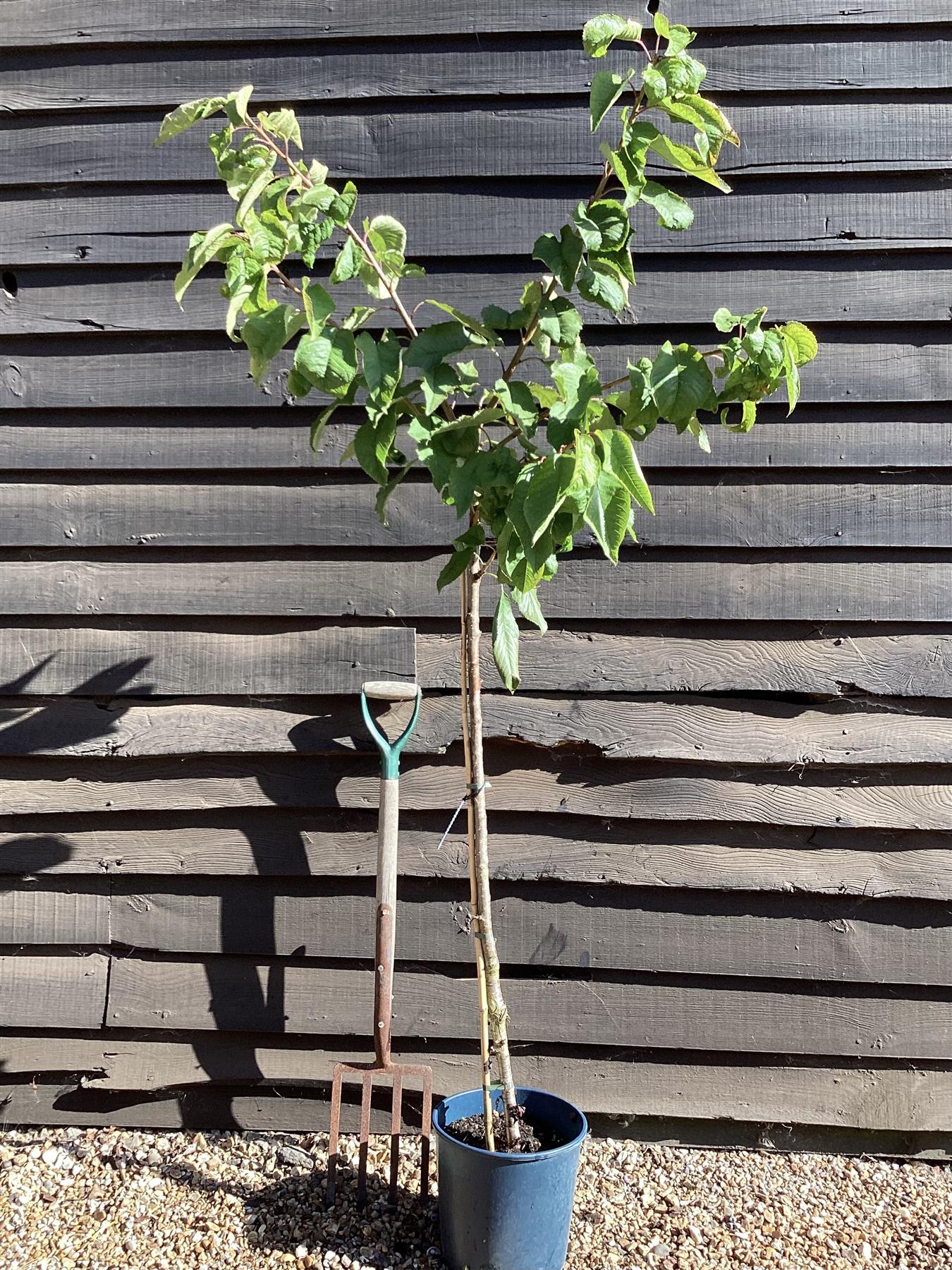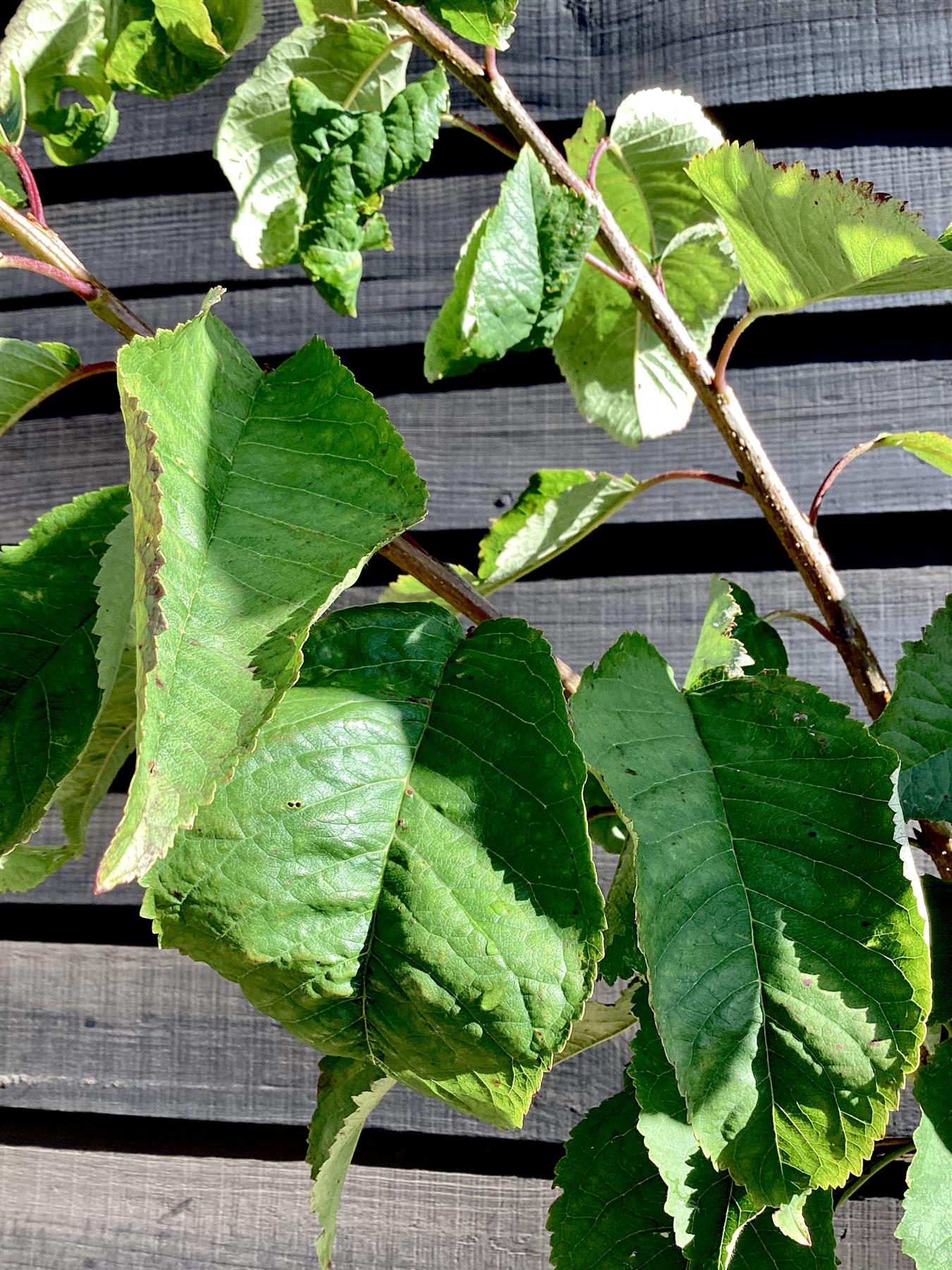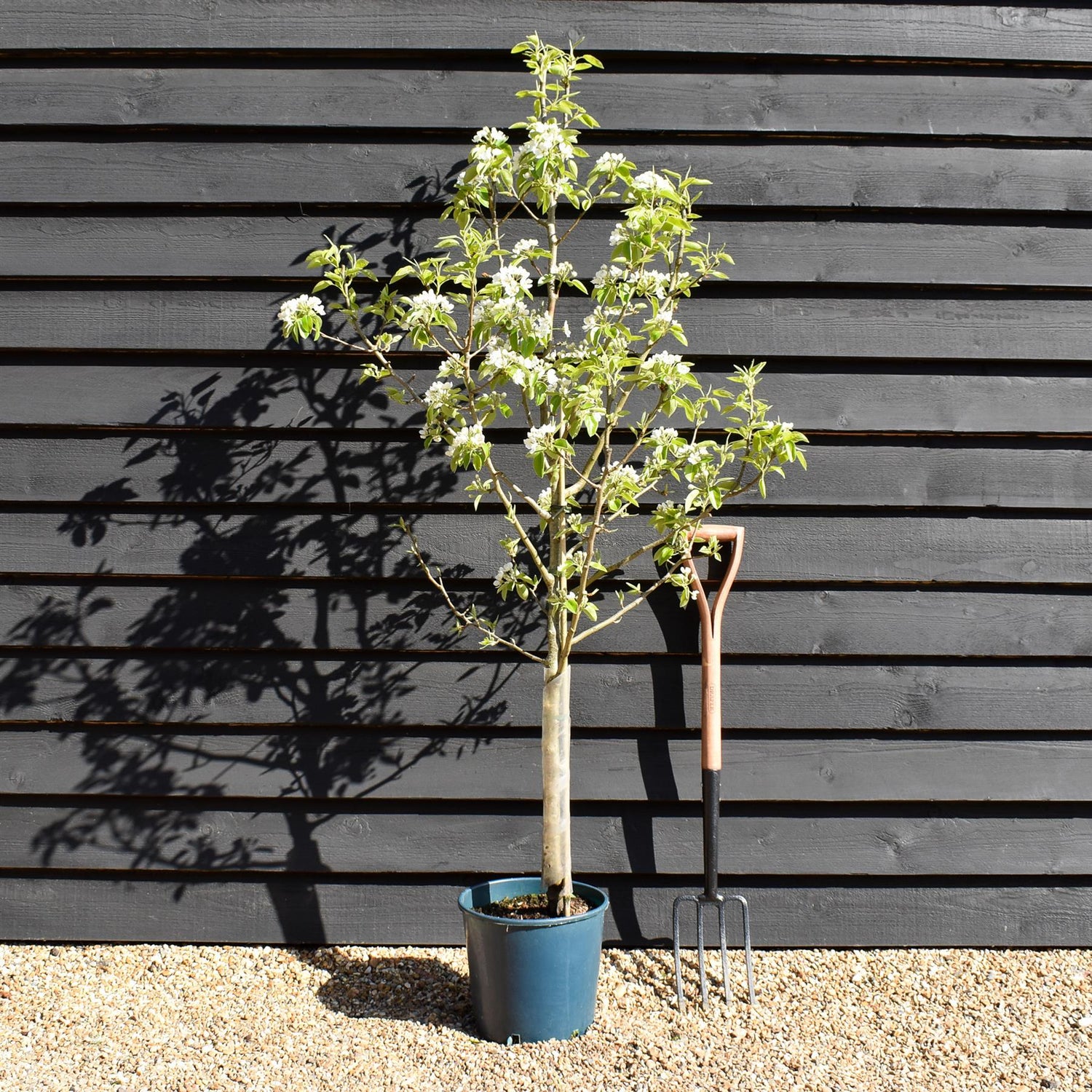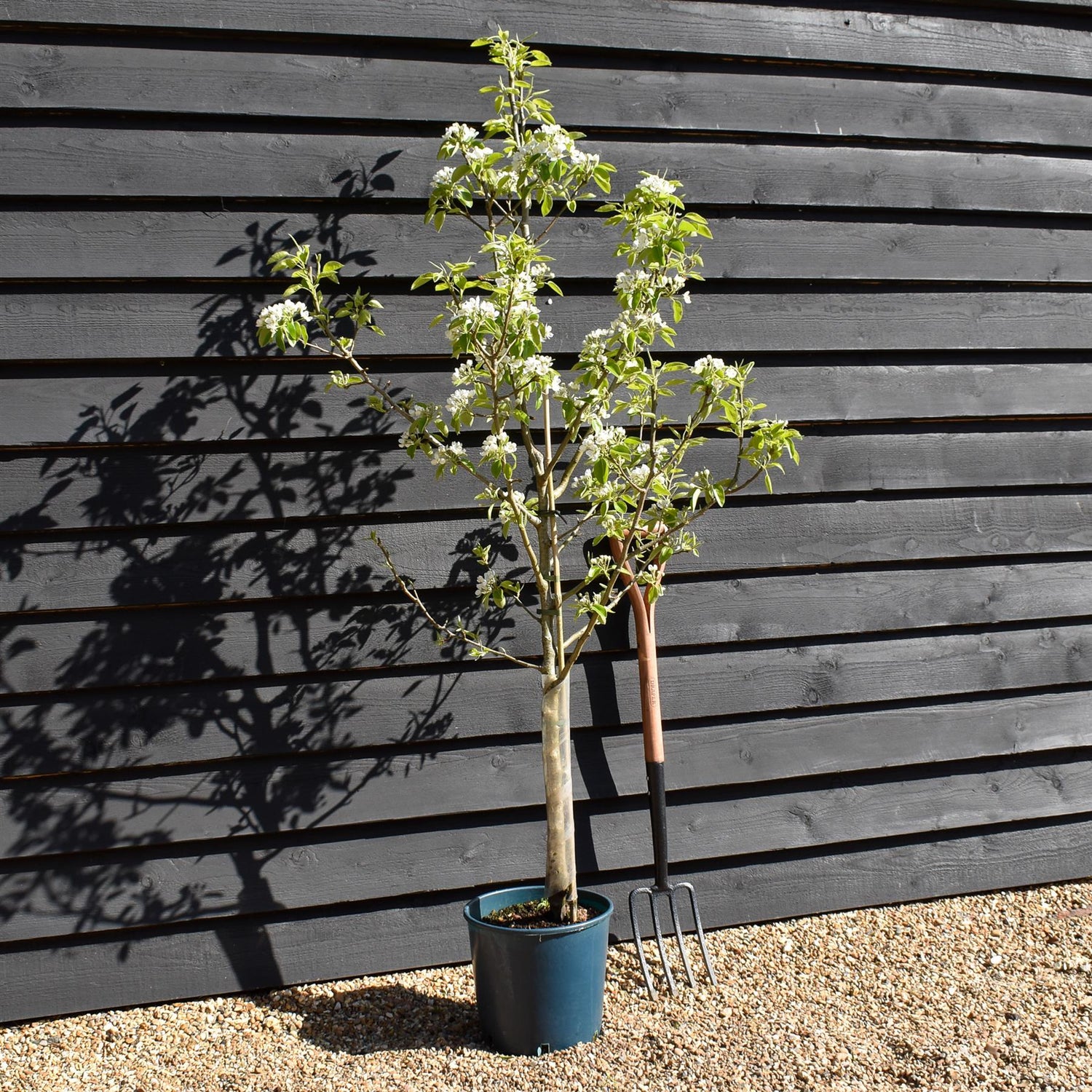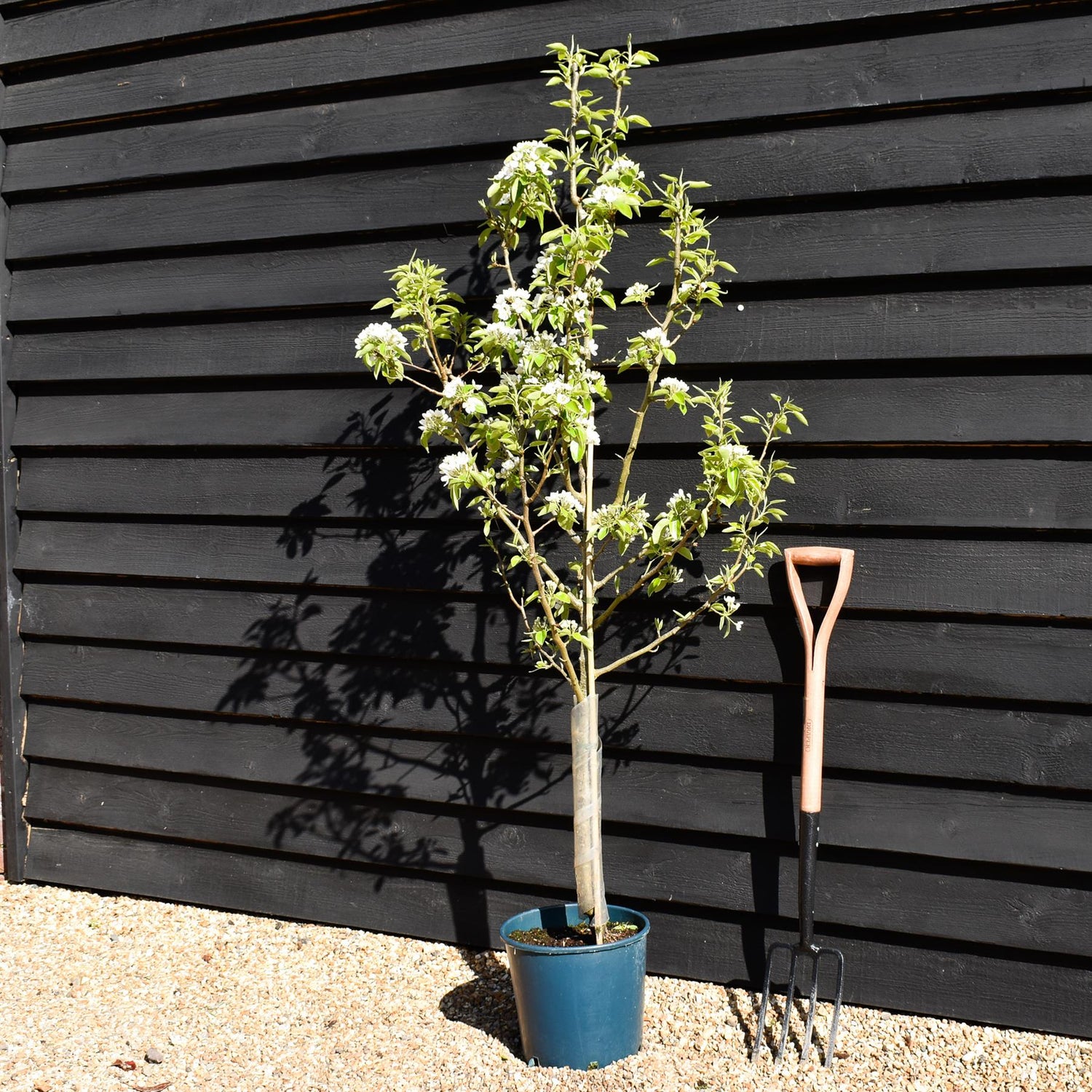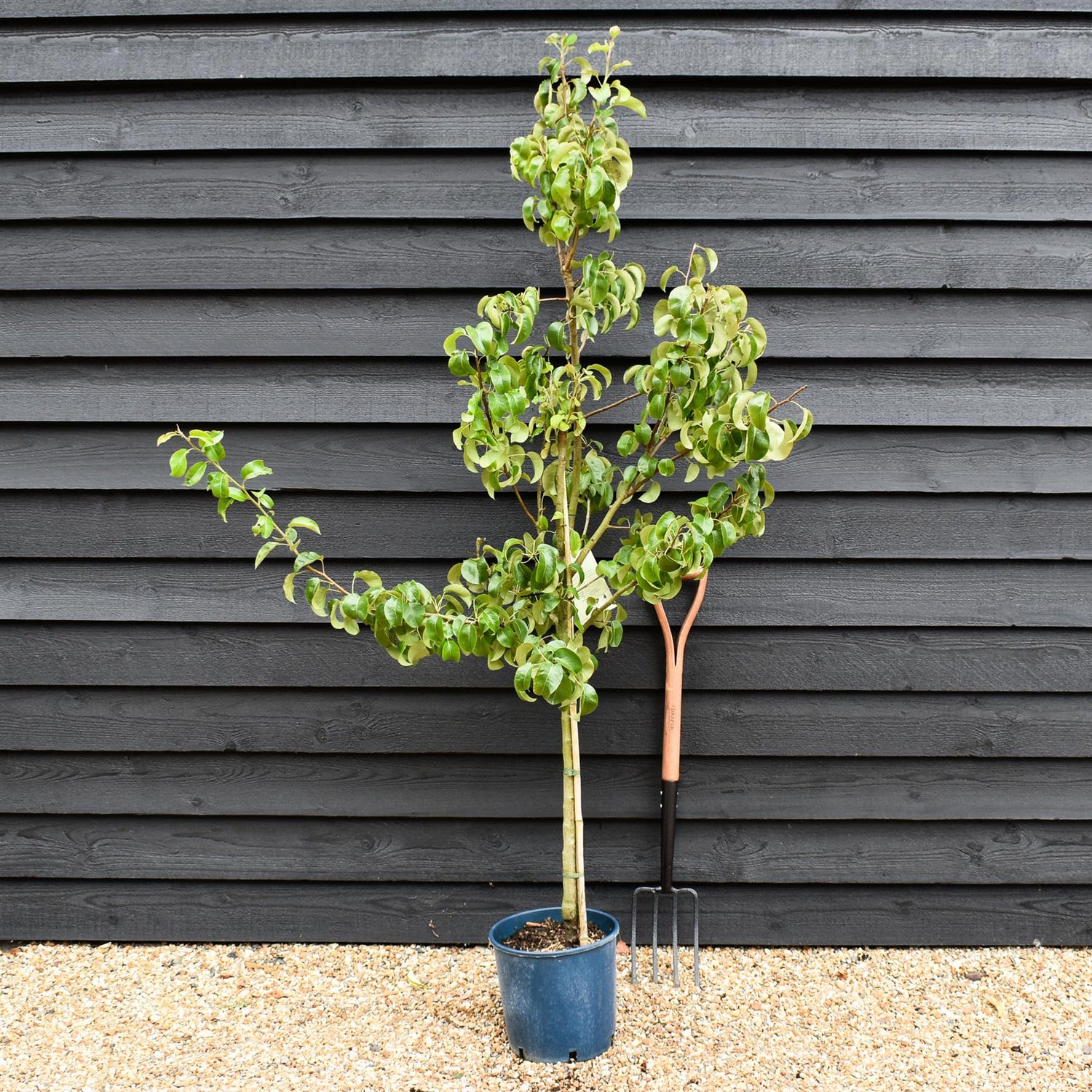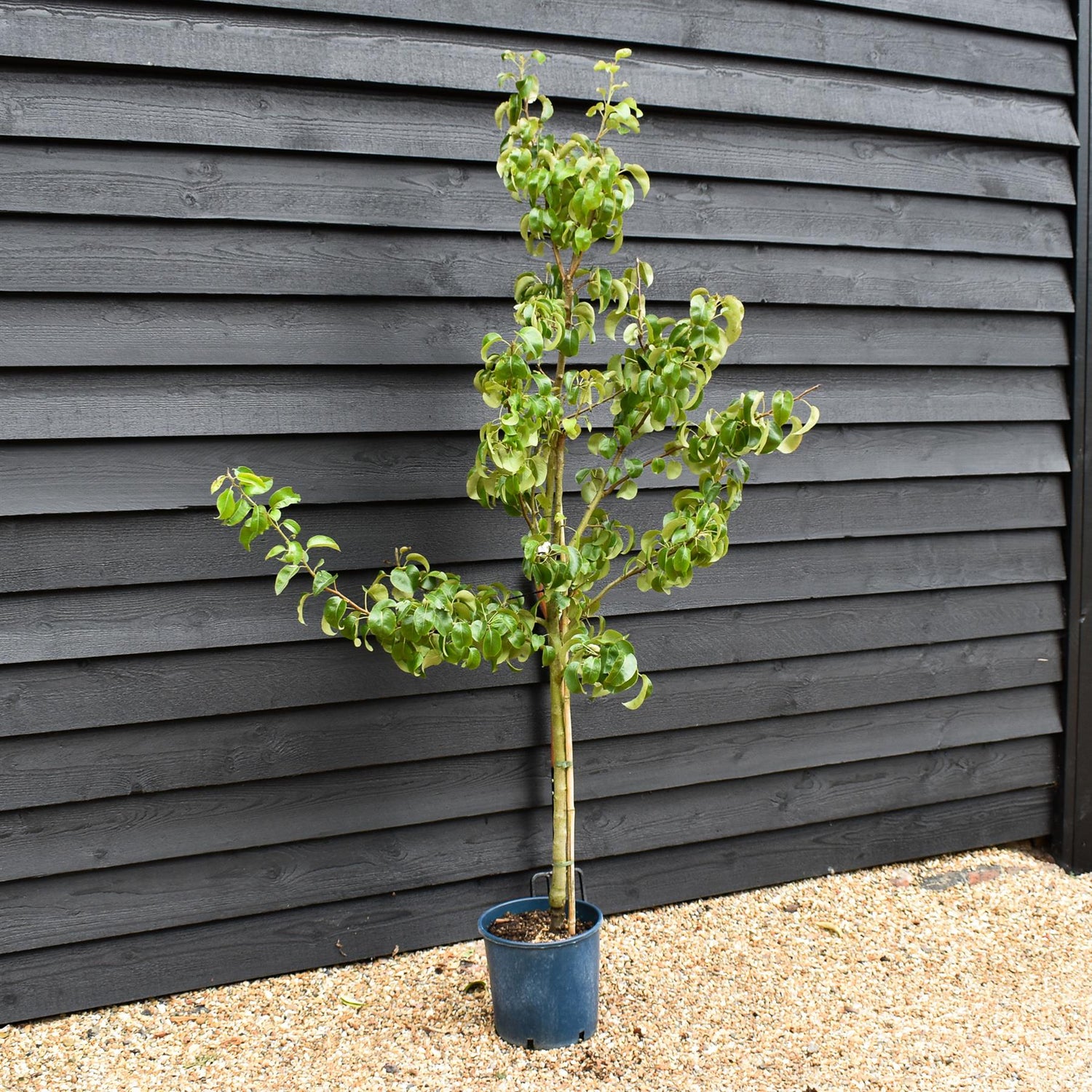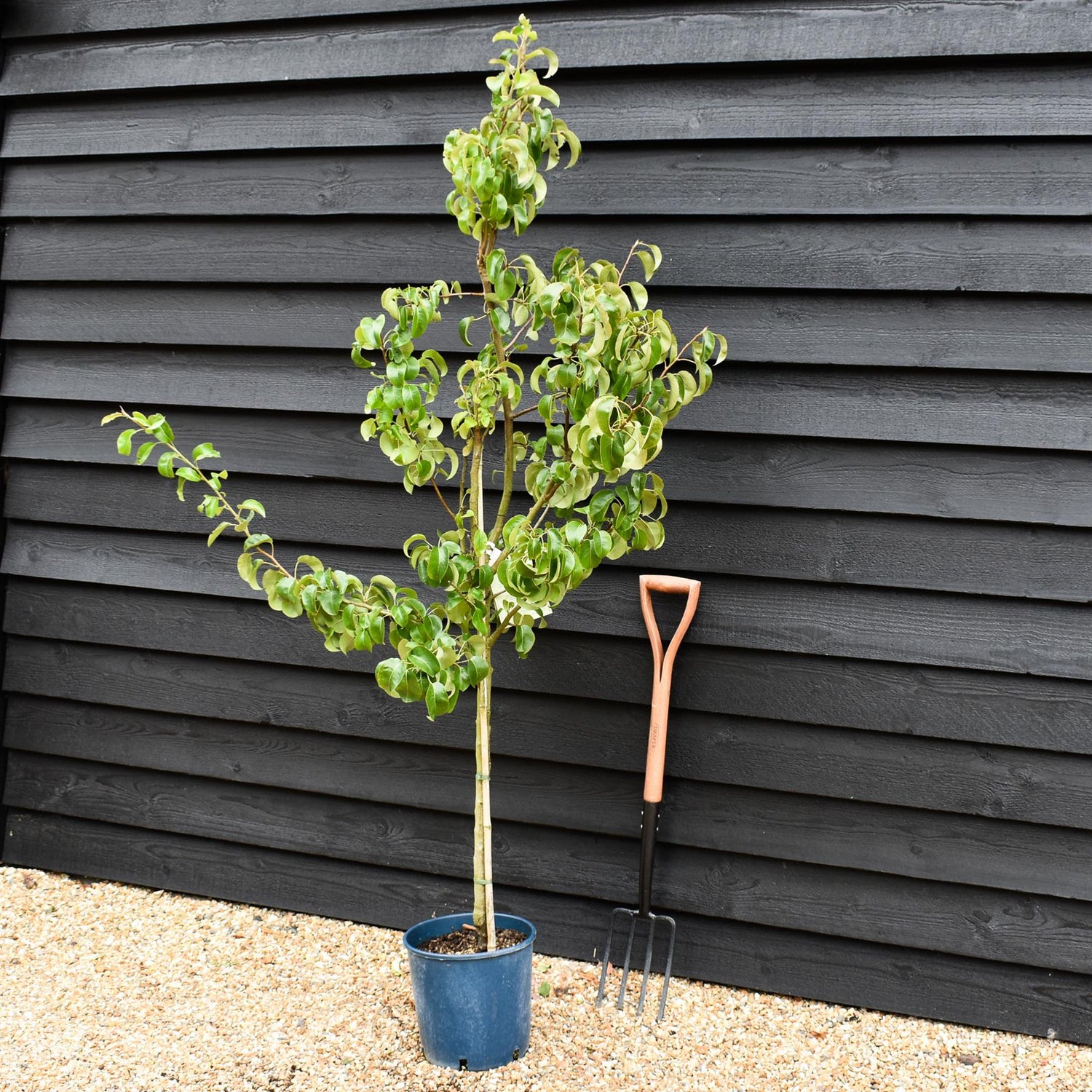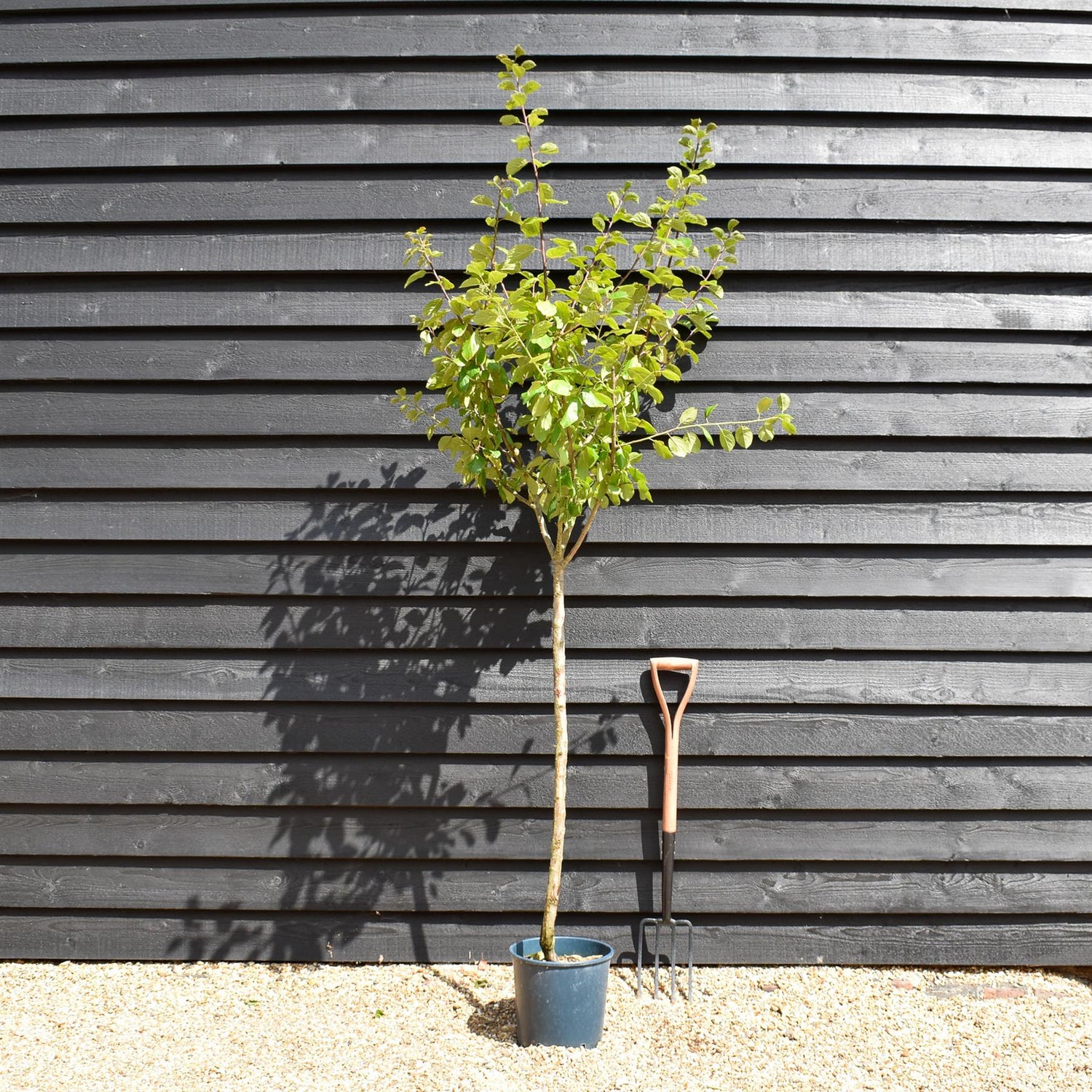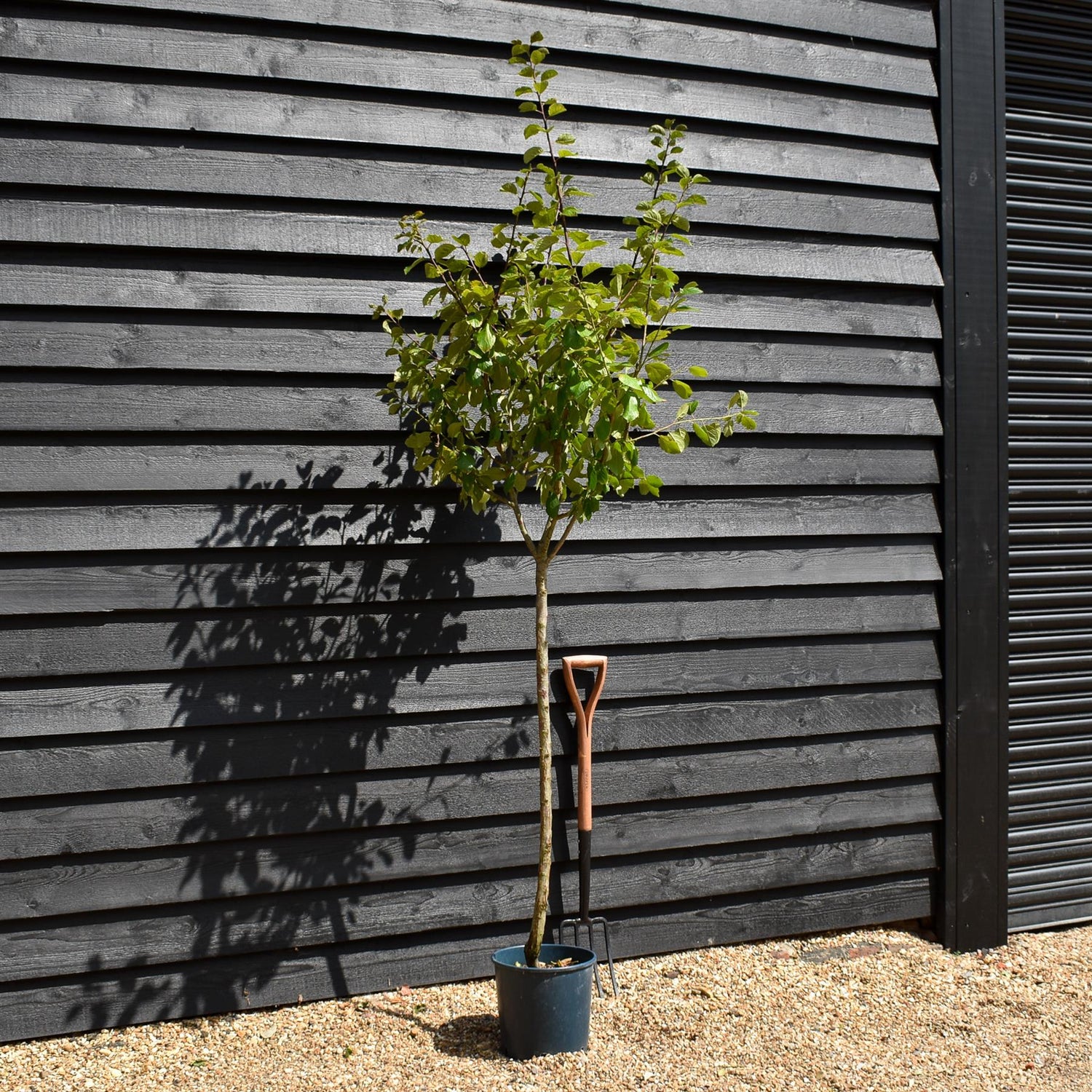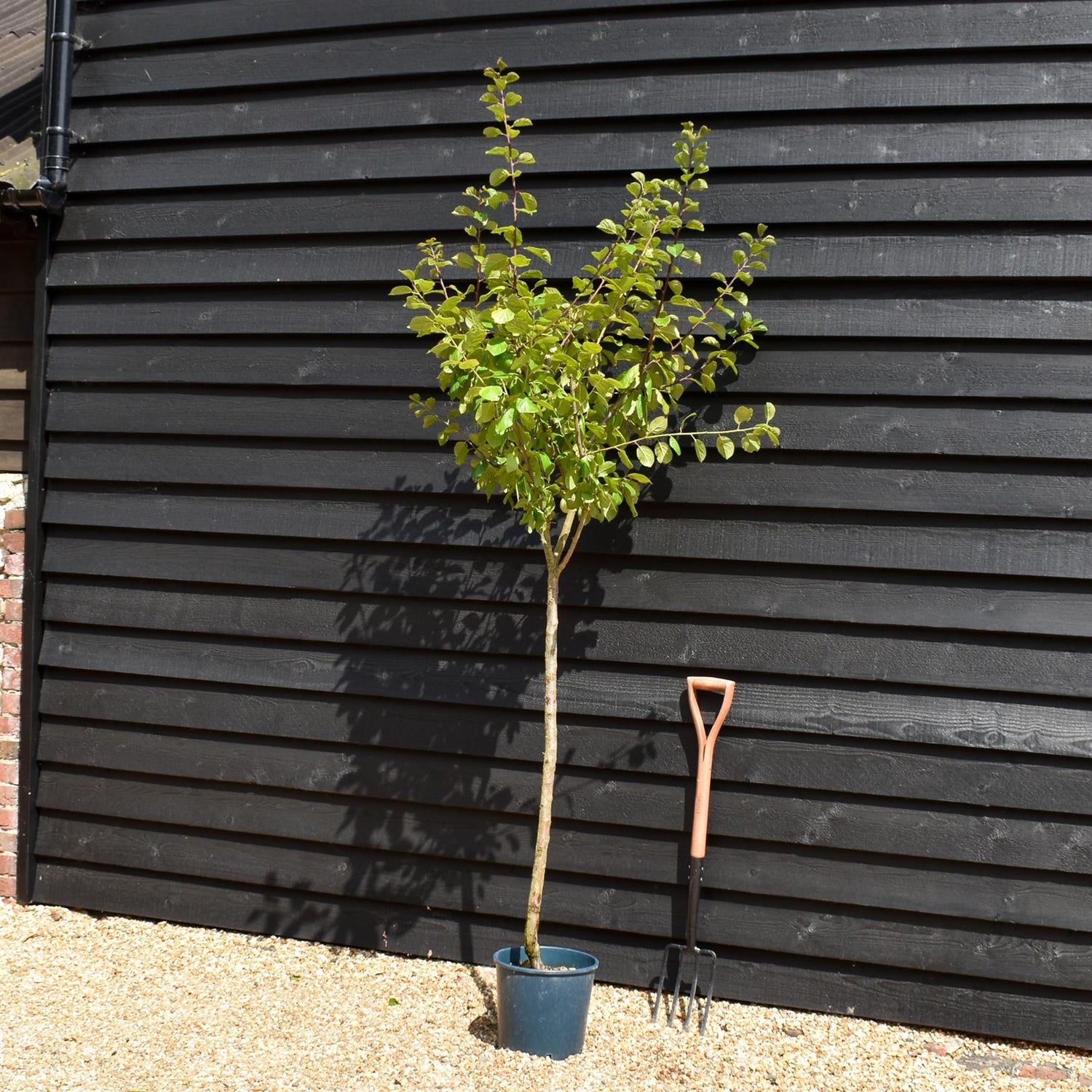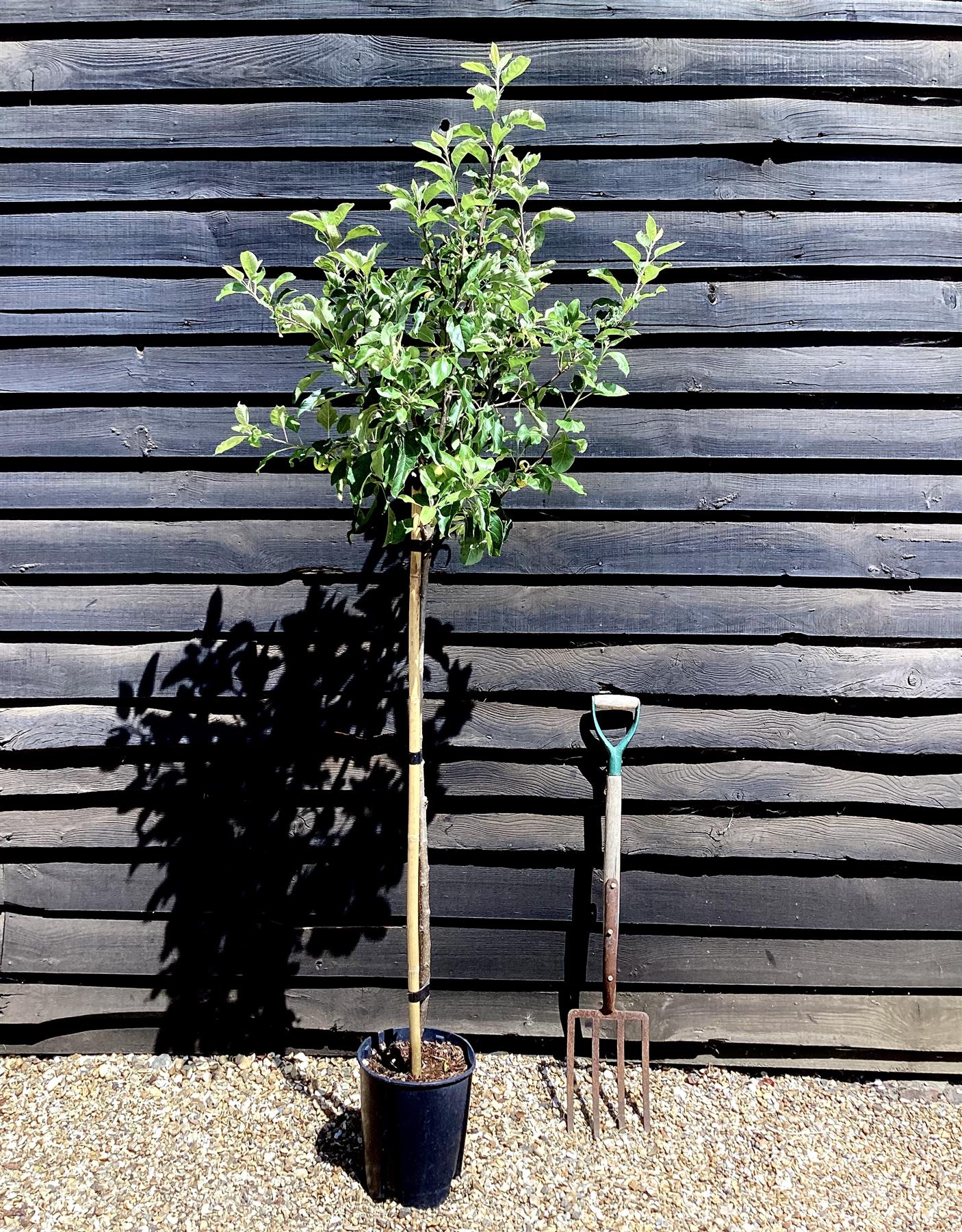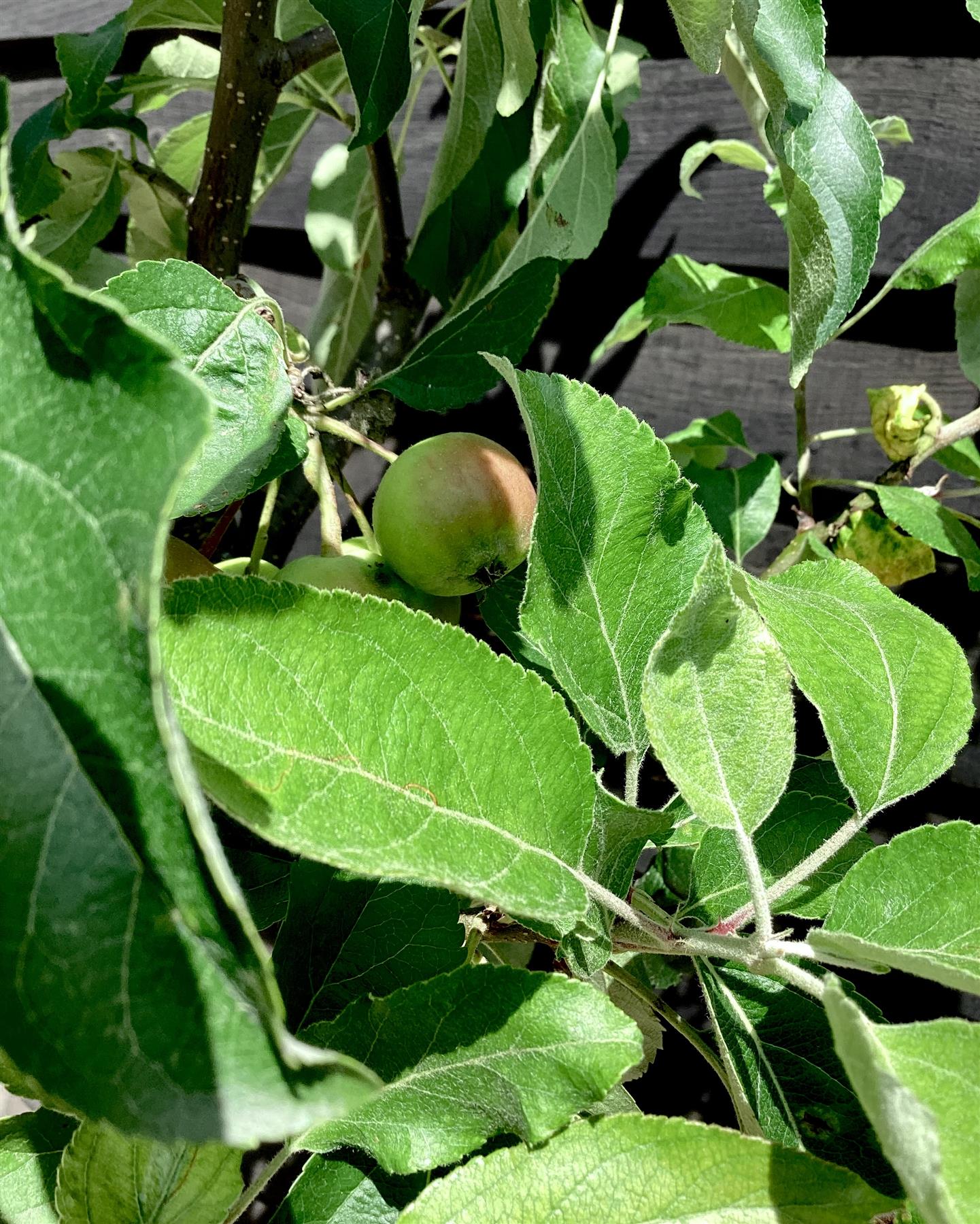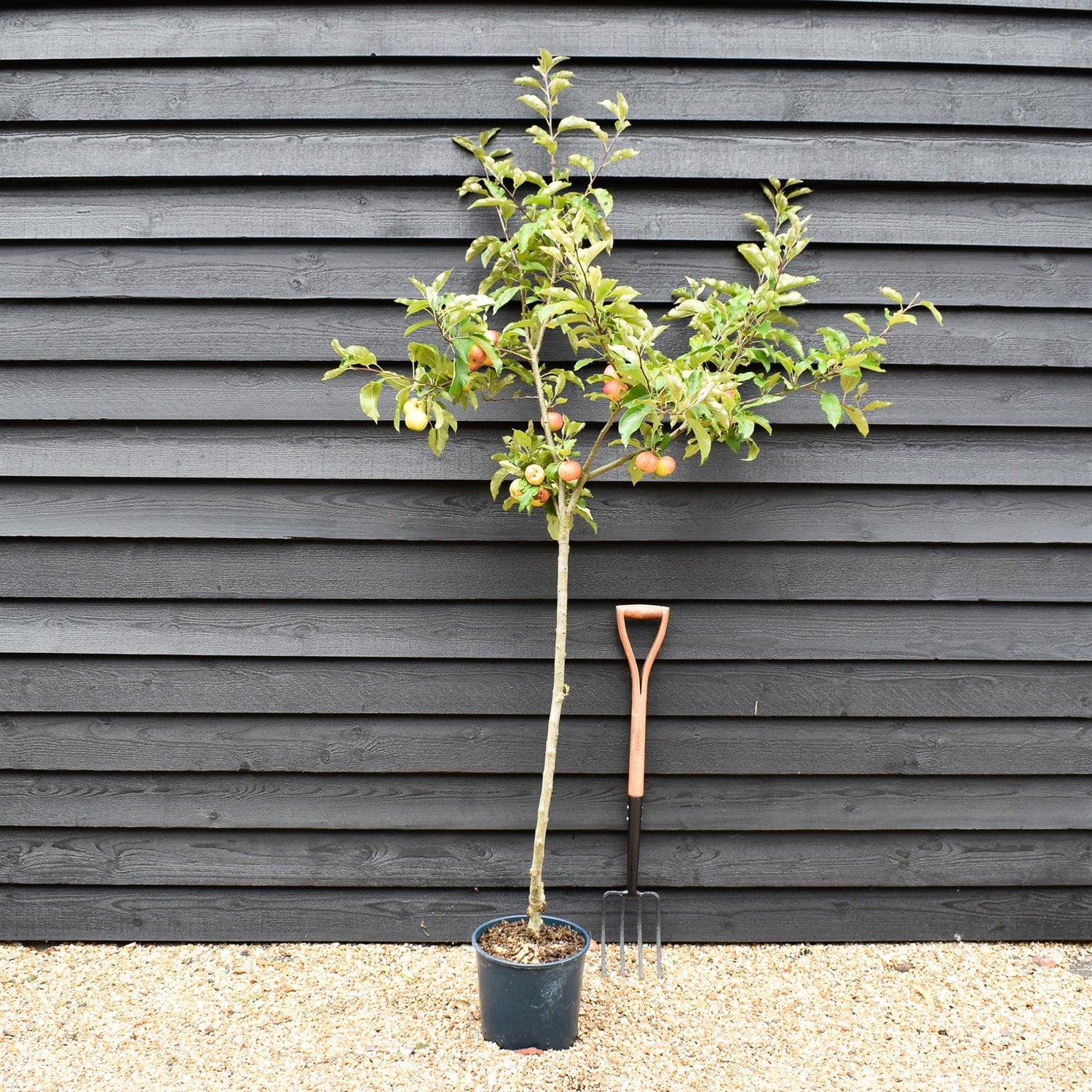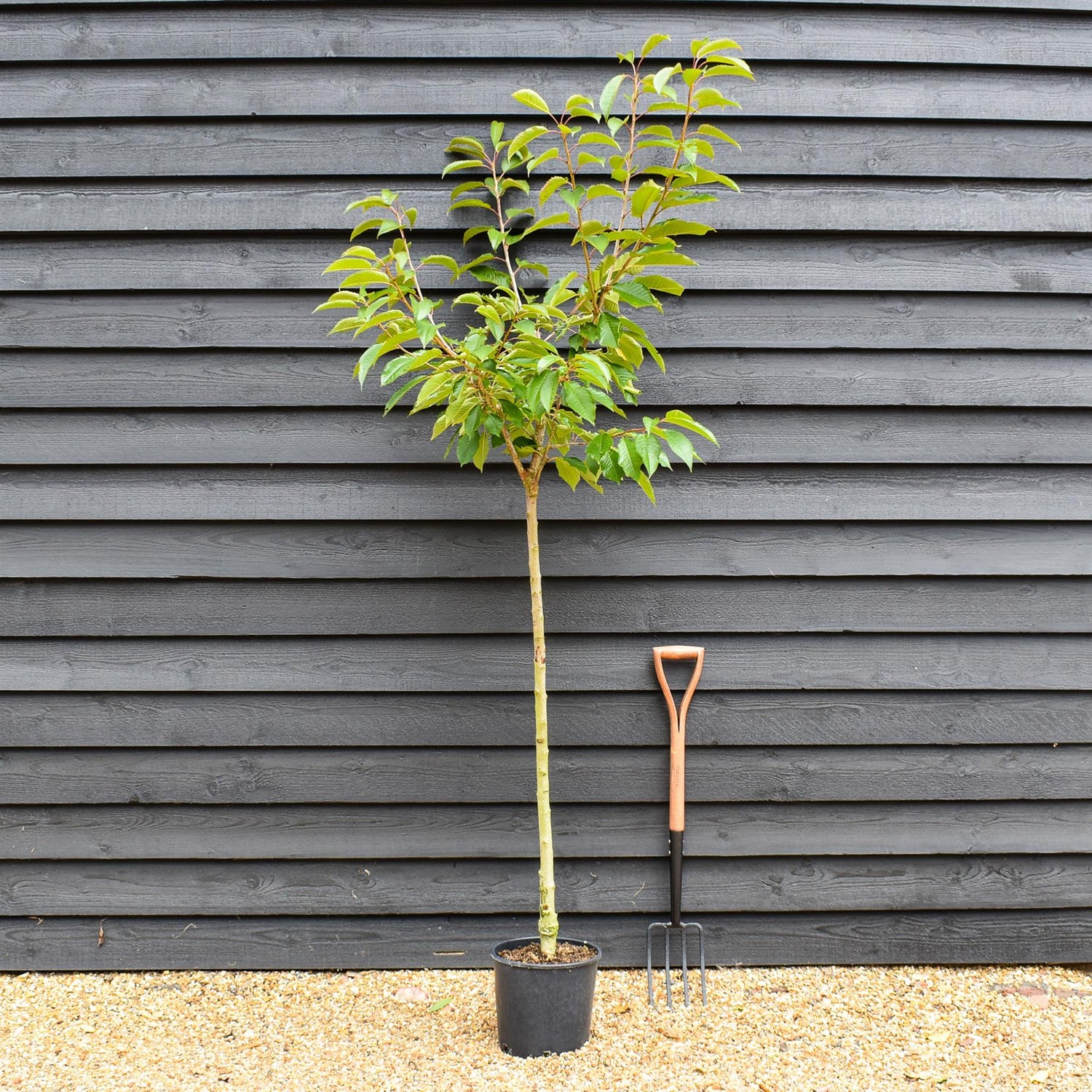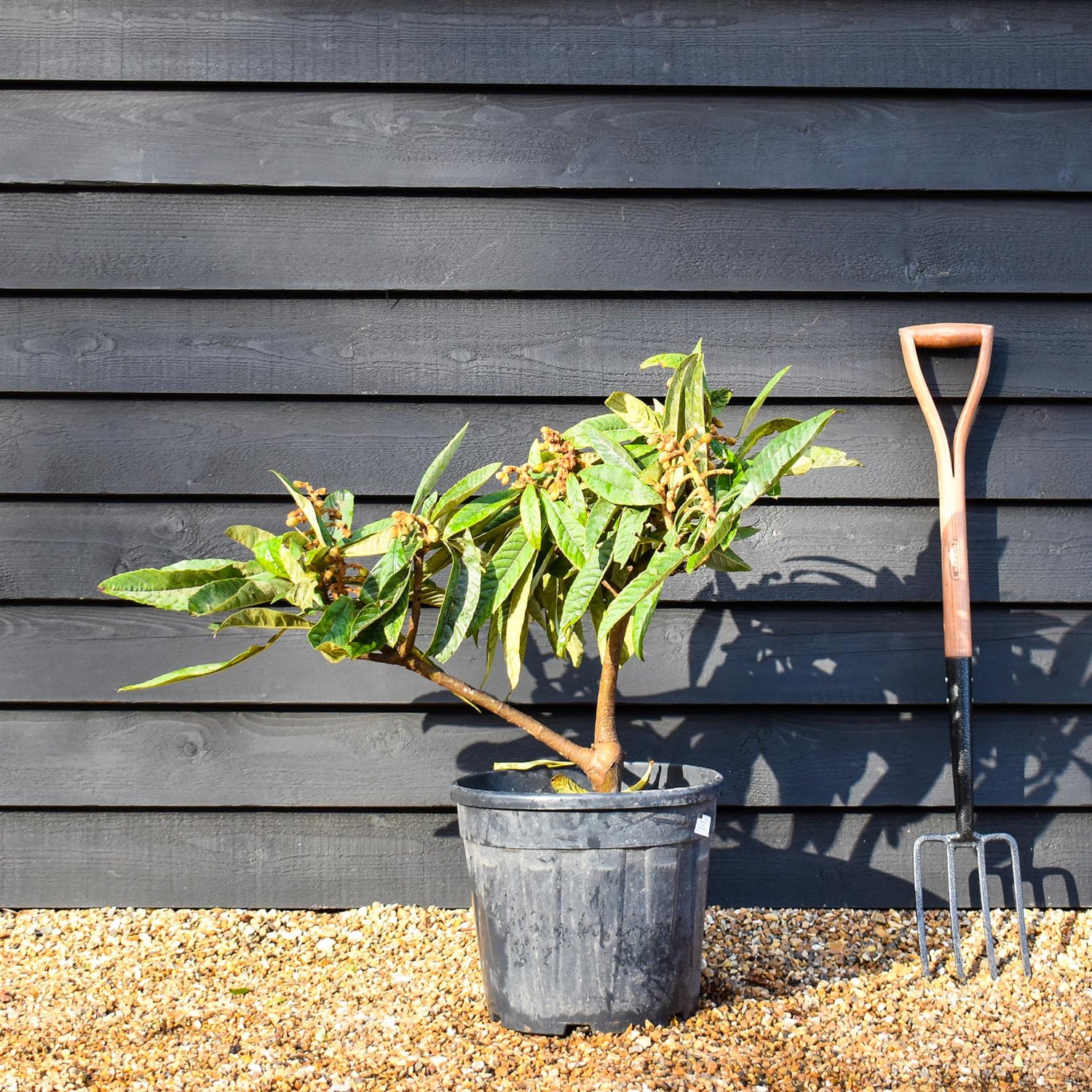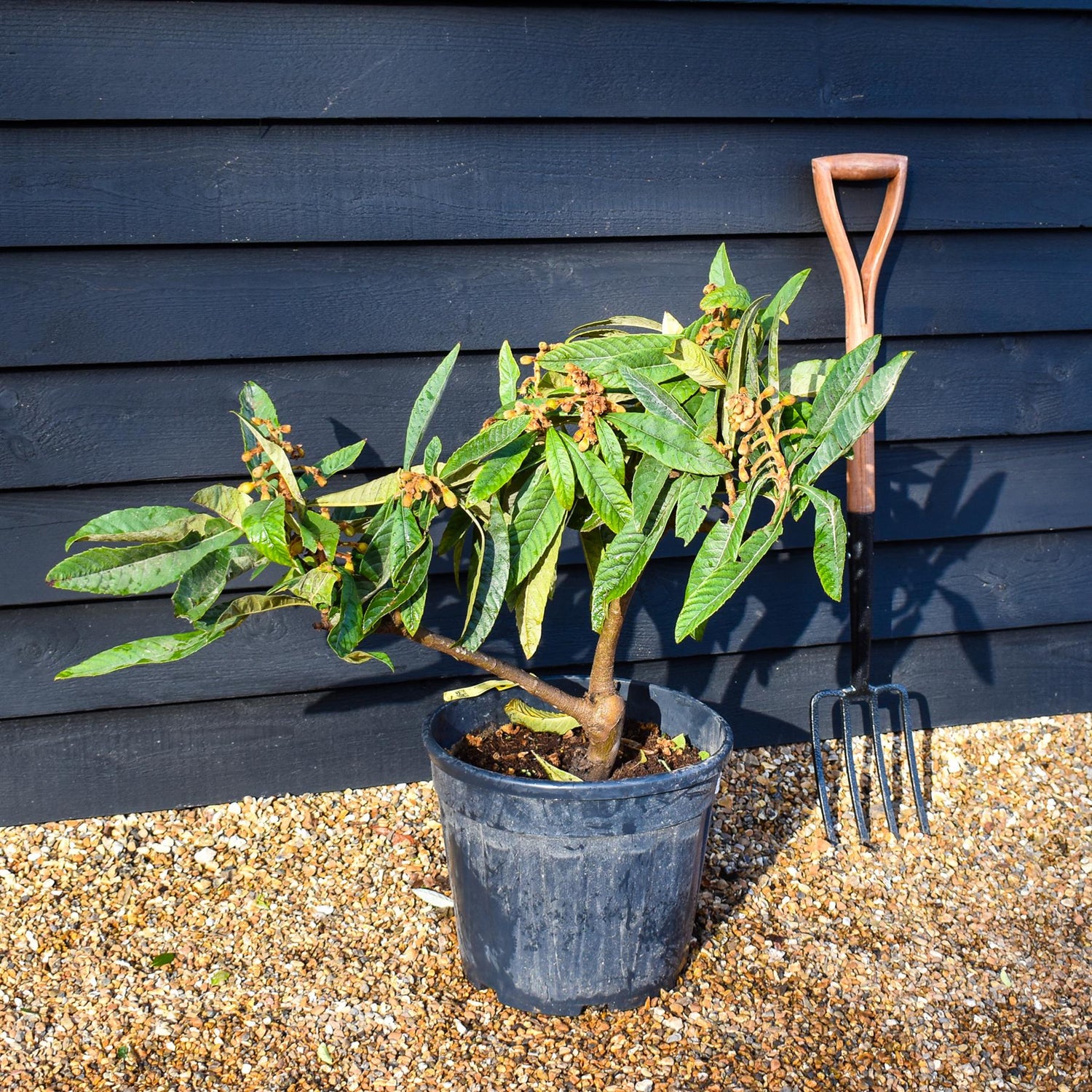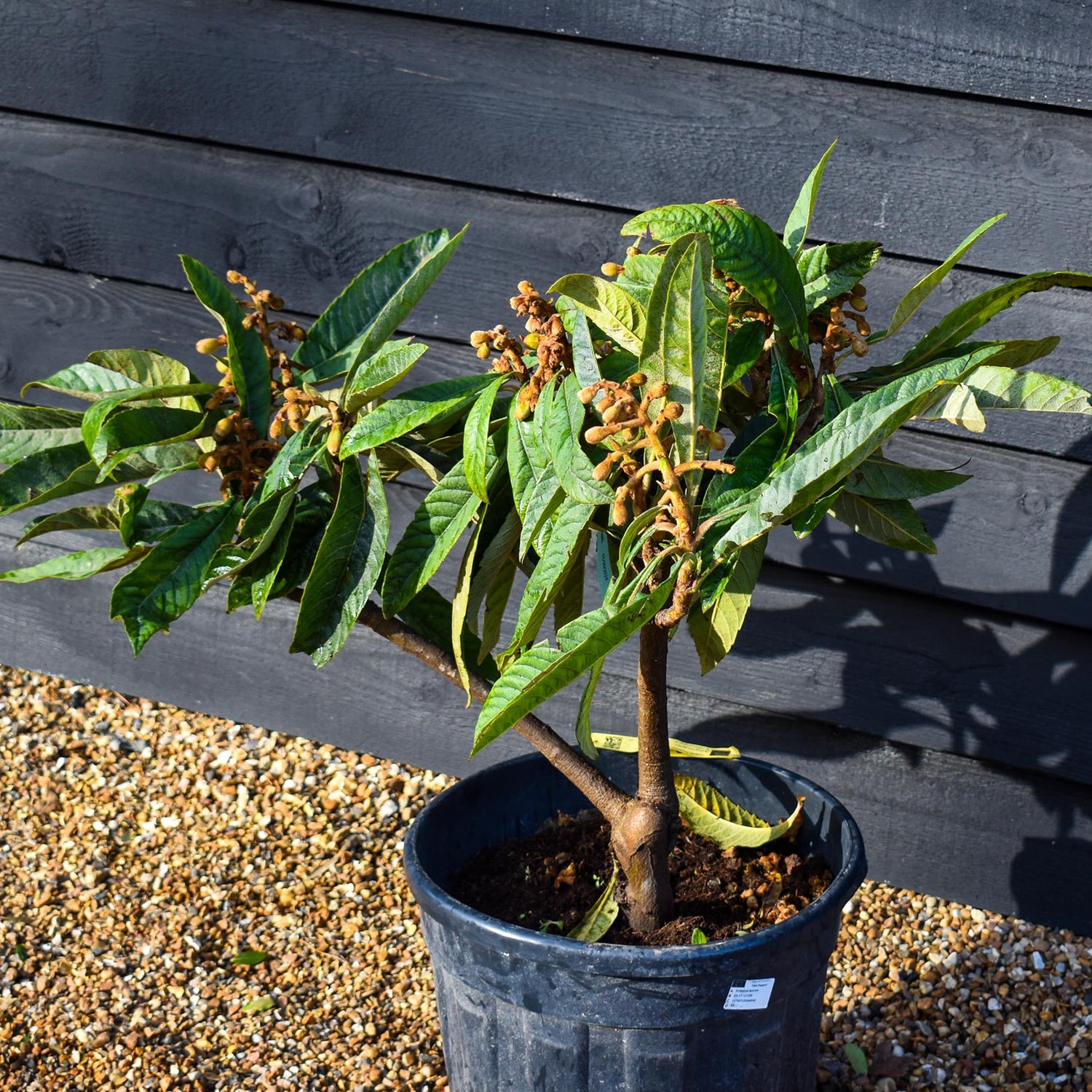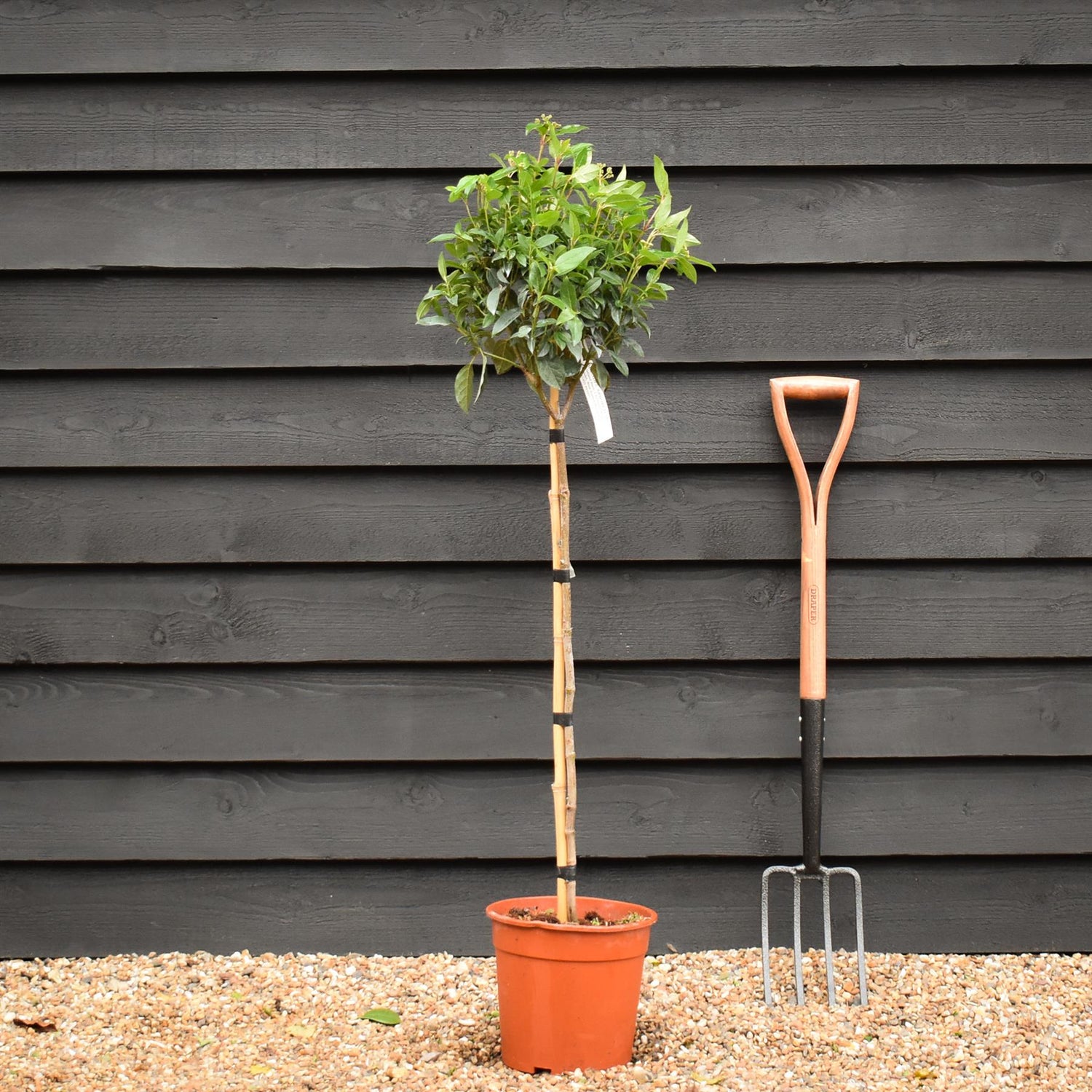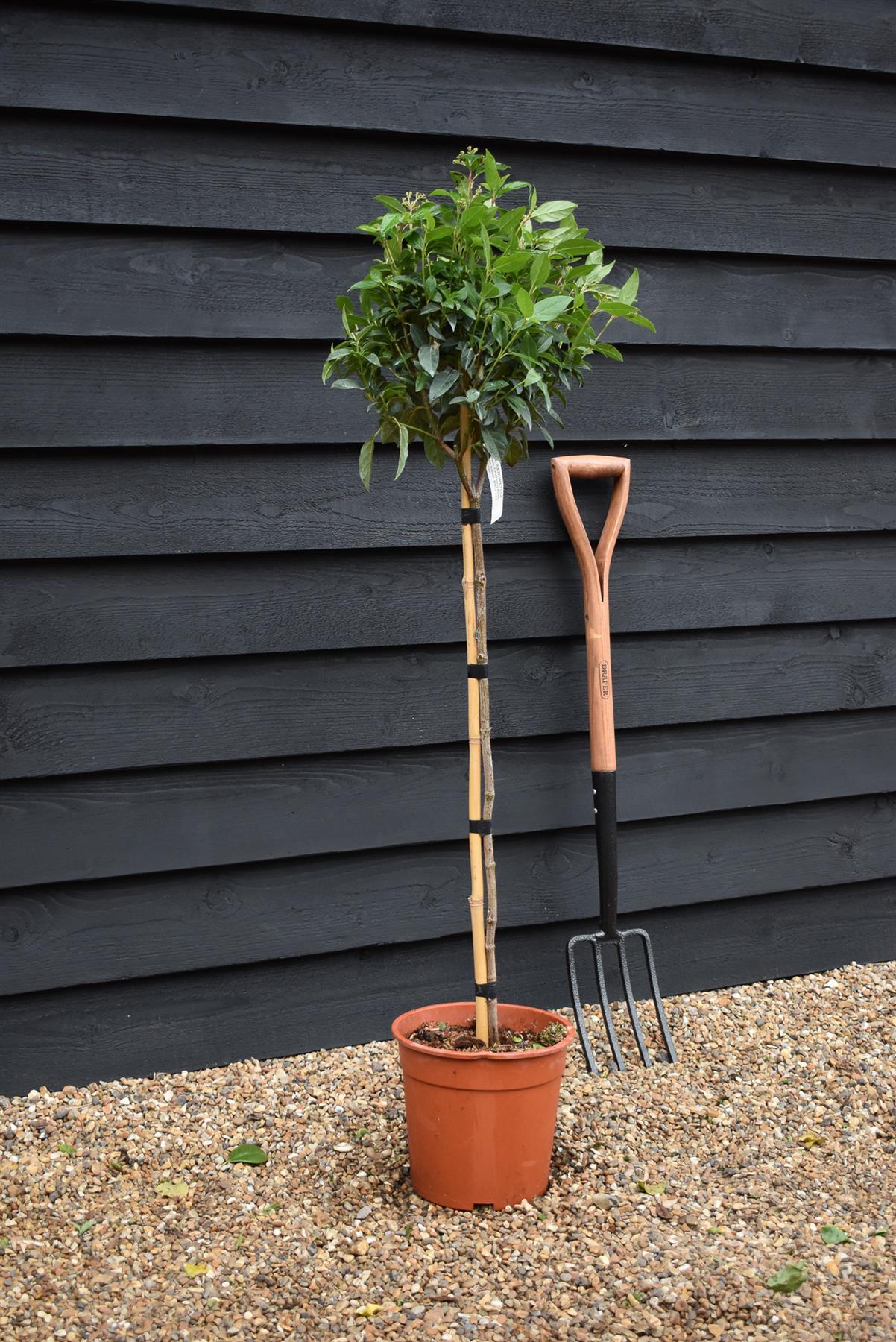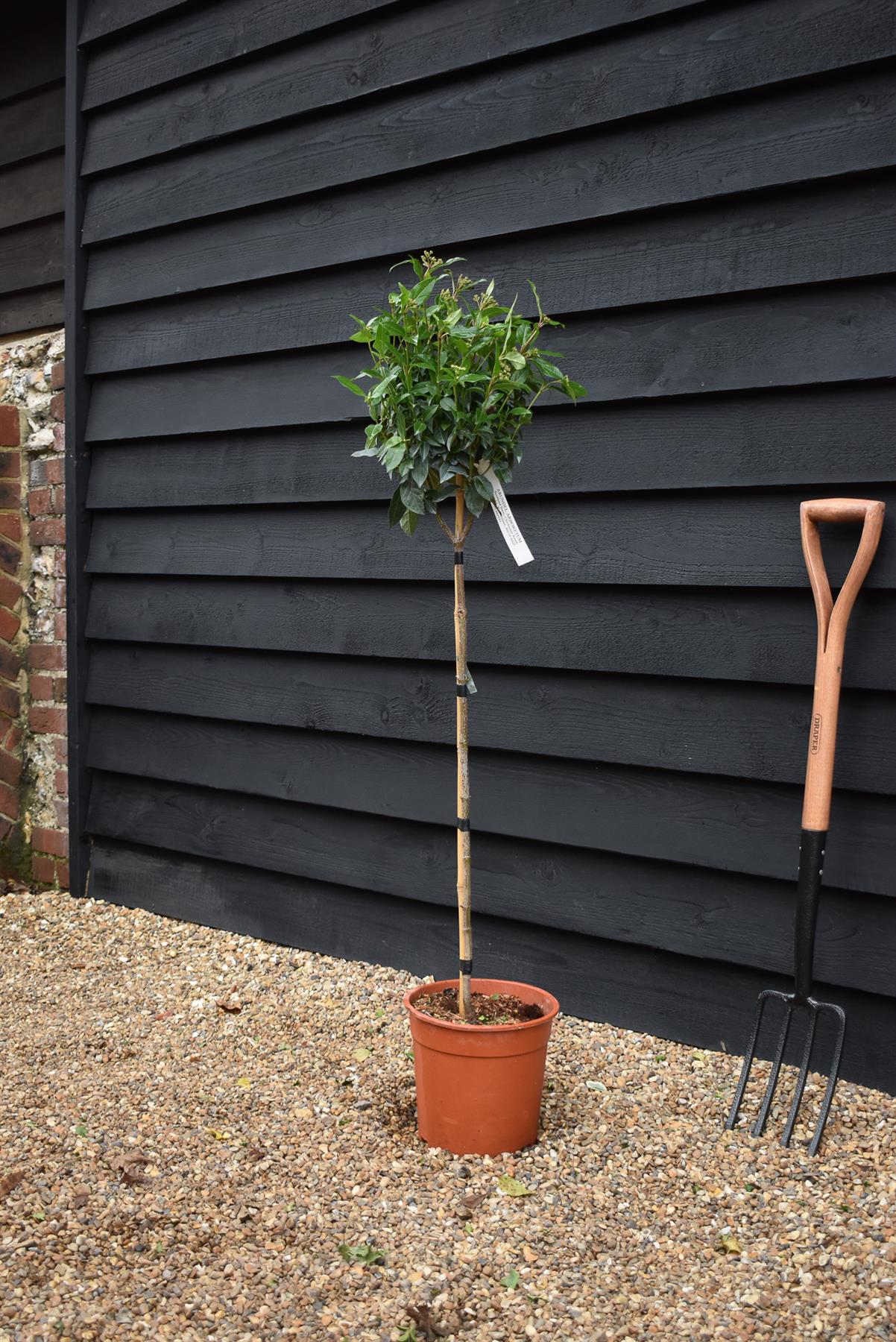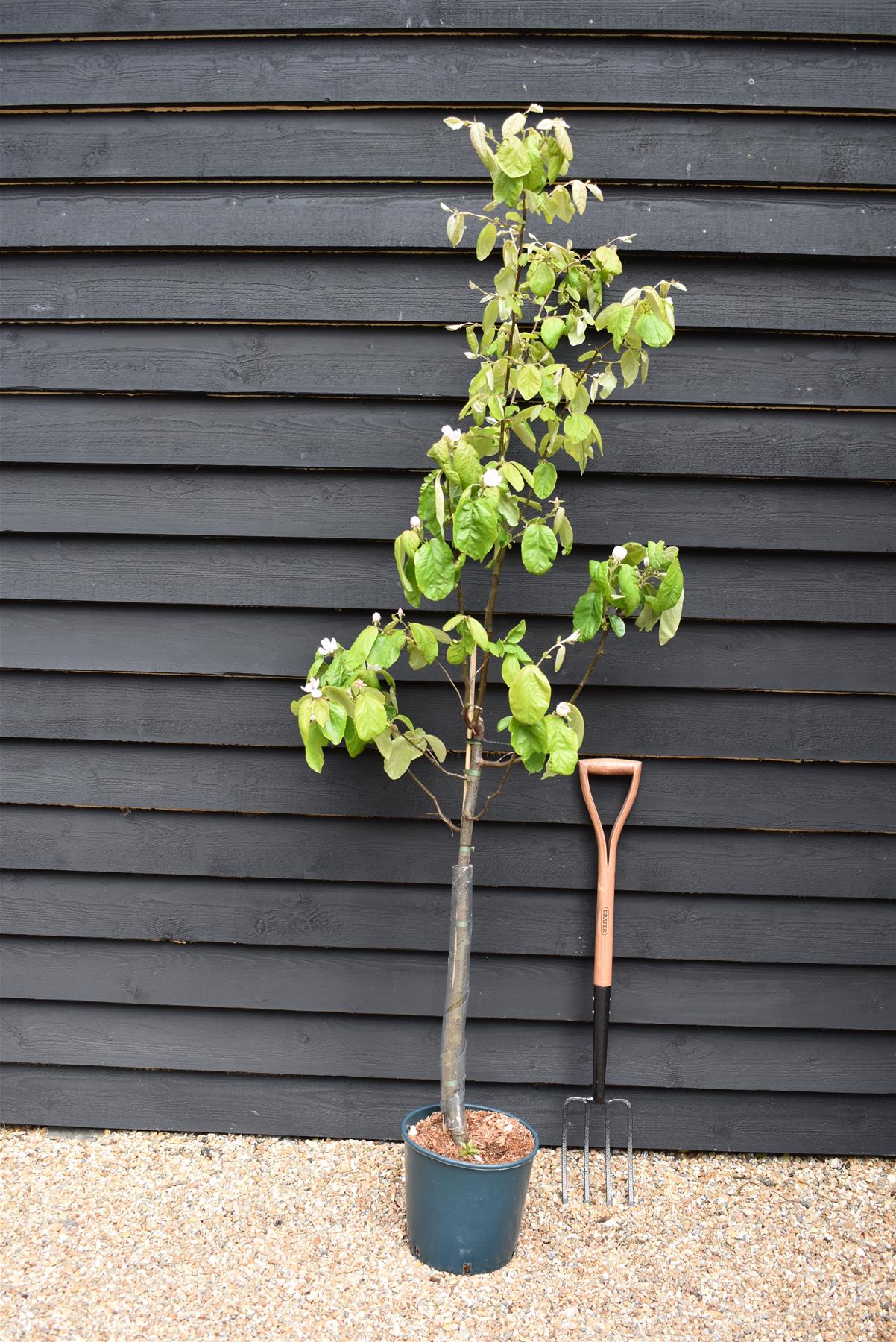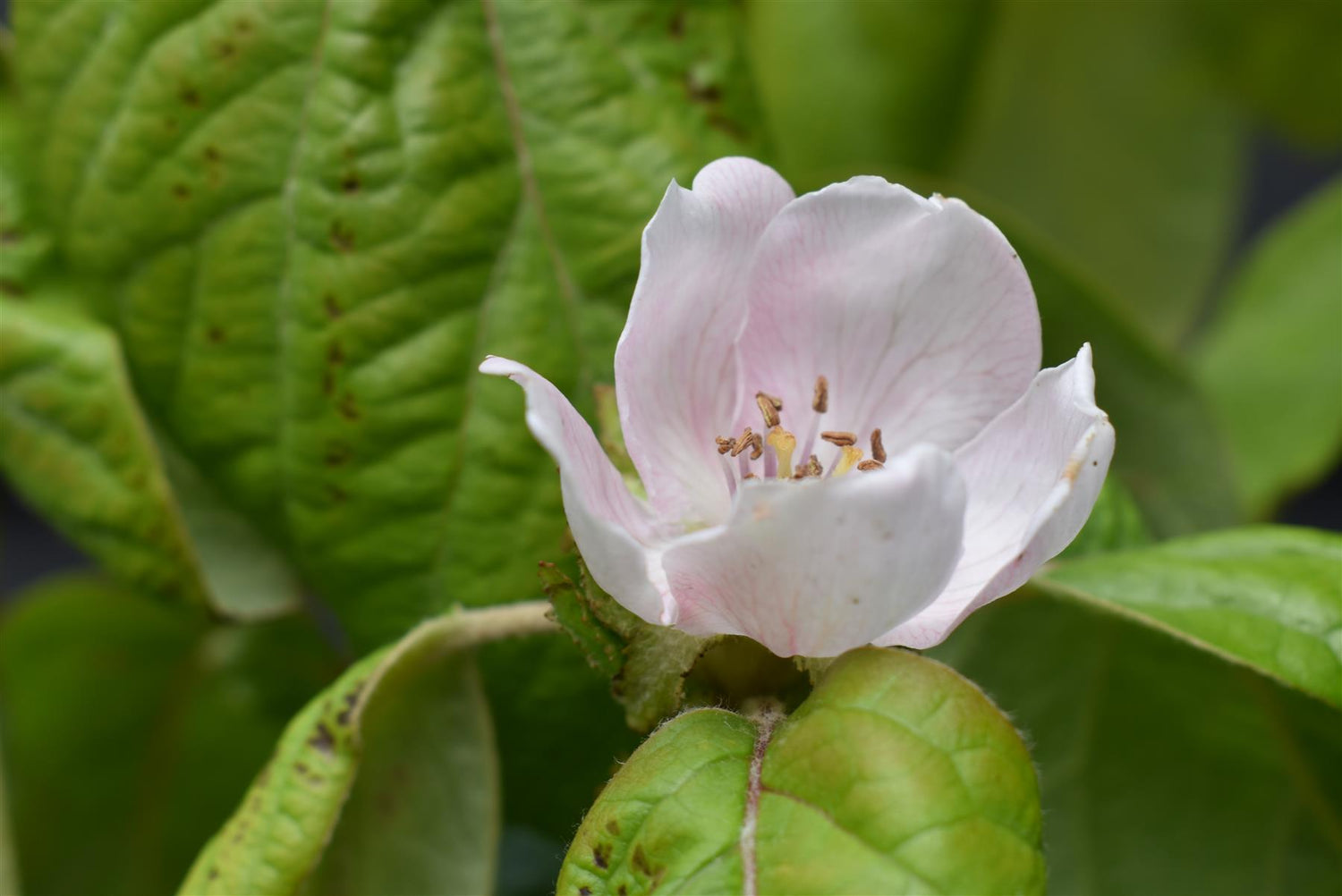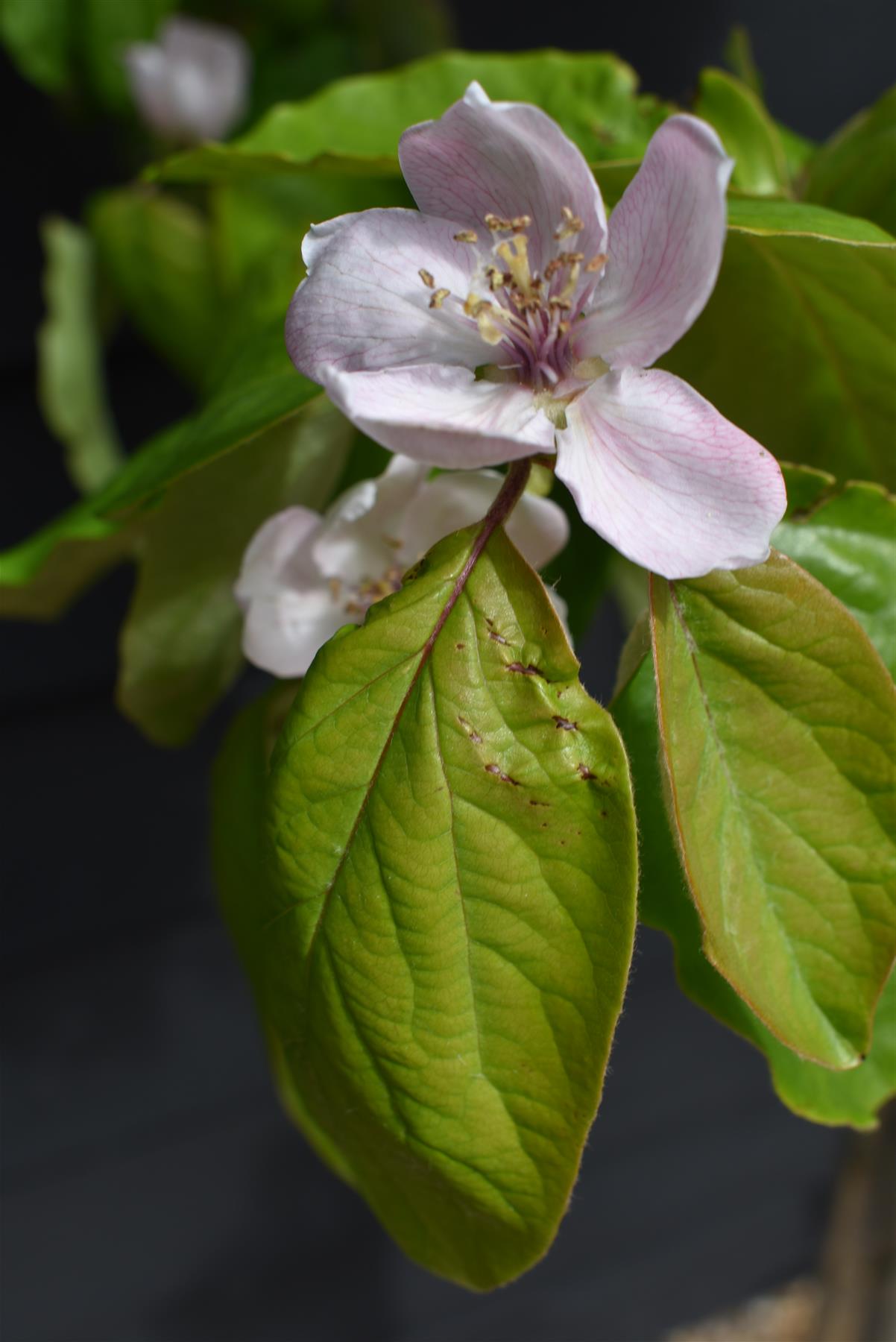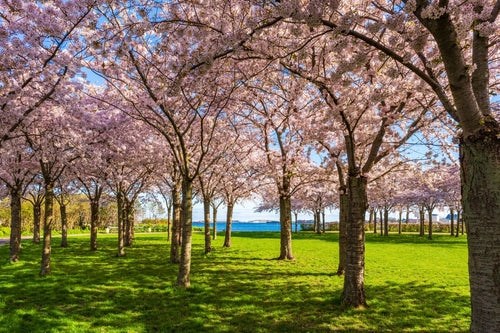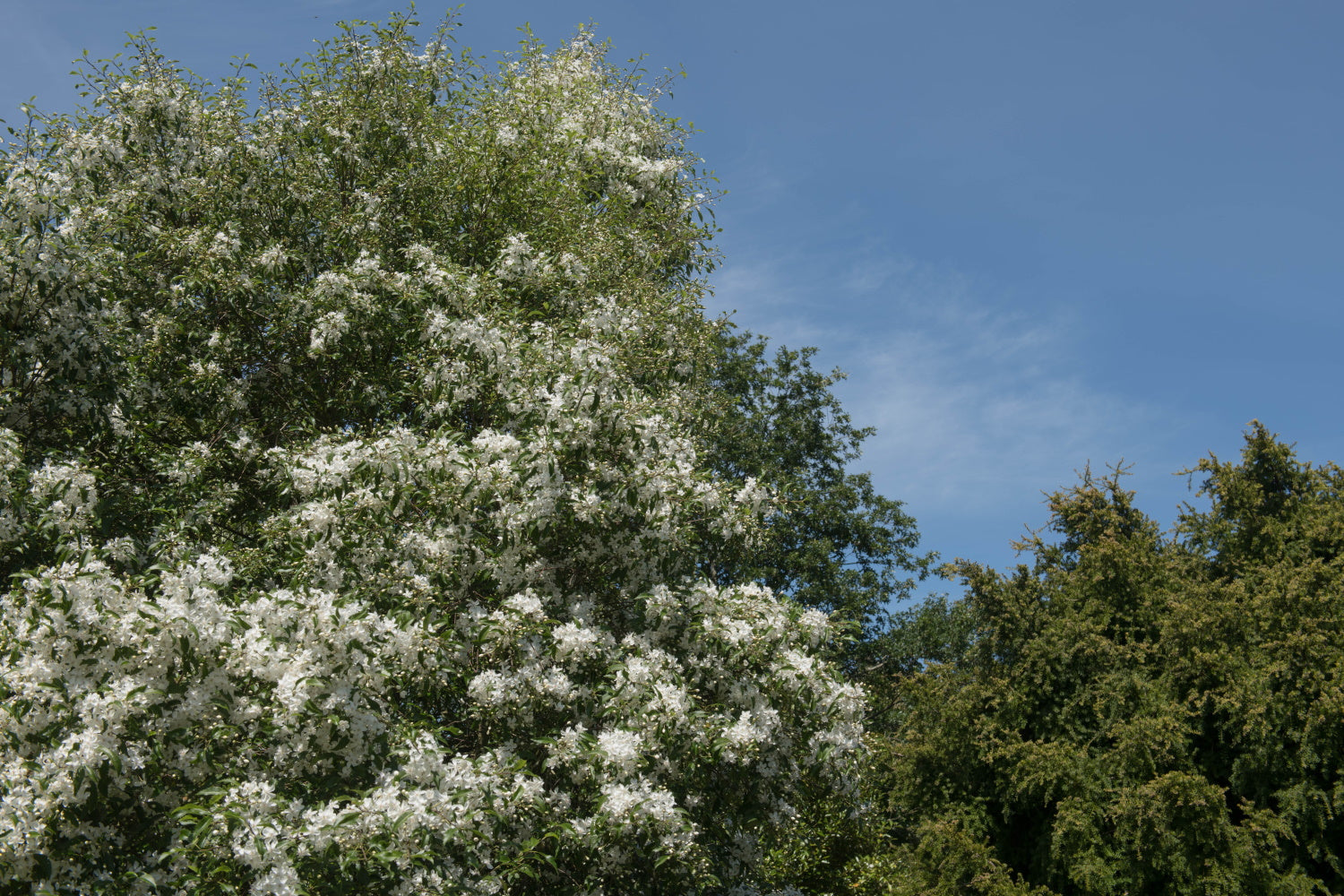786 products
786 products
Sort by:
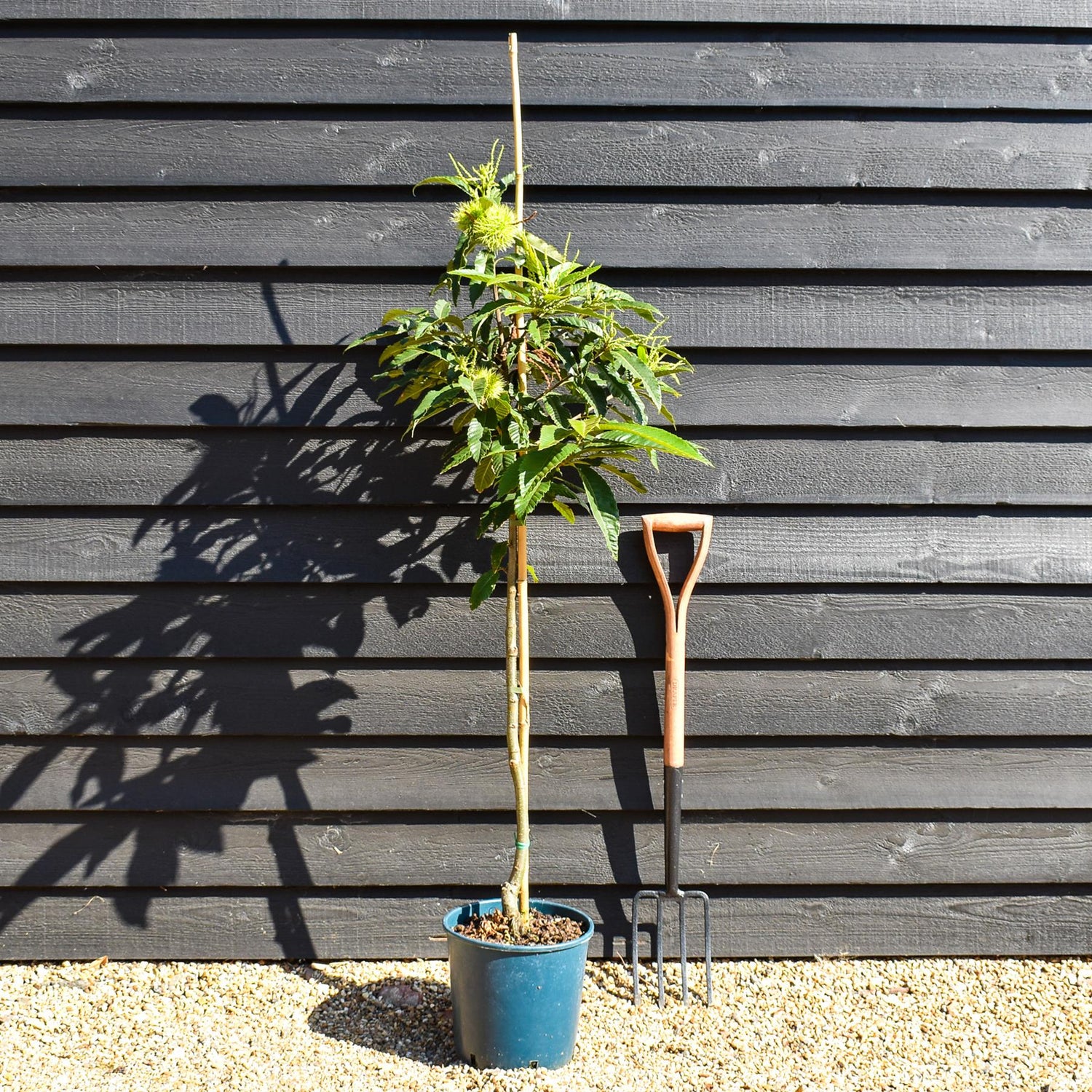
Sweet Chestnut | Castanea sativa - 100-120cm - 12lt
£72.00
Unit price perSweet Chestnut | Castanea sativa - 100-120cm - 12lt
£72.00
Unit price perCastanea sativa, commonly known as the sweet chestnut tree, is a majestic and long-lived species native to Europe and parts of Asia Minor. Belonging to the Fagaceae family, it stands as a symbol of strength and resilience in many cultures, with its towering stature and deeply furrowed bark.
The leaves of Castanea sativa are distinctively long and lance-shaped, with serrated edges that give them a rough texture. During the spring and summer, the canopy is adorned with clusters of creamy-white flowers, which give way to spiky green husks containing the prized sweet chestnuts in autumn.
Sweet chestnuts, often referred to simply as "chestnuts," have been a staple food source for centuries, cherished for their rich, nutty flavor and versatile culinary applications. Whether roasted over an open fire, boiled and mashed into a creamy puree, or incorporated into hearty stews and stuffing recipes, chestnuts are celebrated in both sweet and savory dishes throughout the UK.
Beyond their culinary significance, sweet chestnut trees play a vital ecological role, providing habitat and sustenance for a diverse array of wildlife. Birds, such as blue tits and nuthatches, feast on the tree's seeds, while small mammals like squirrels rely on them as a seasonal food source.
Despite their resilience, sweet chestnut trees face threats from various pests and diseases, including chestnut blight and ink disease, which have impacted populations in some regions. Conservation efforts aim to preserve these iconic trees and their valuable genetic diversity for future generations to enjoy.
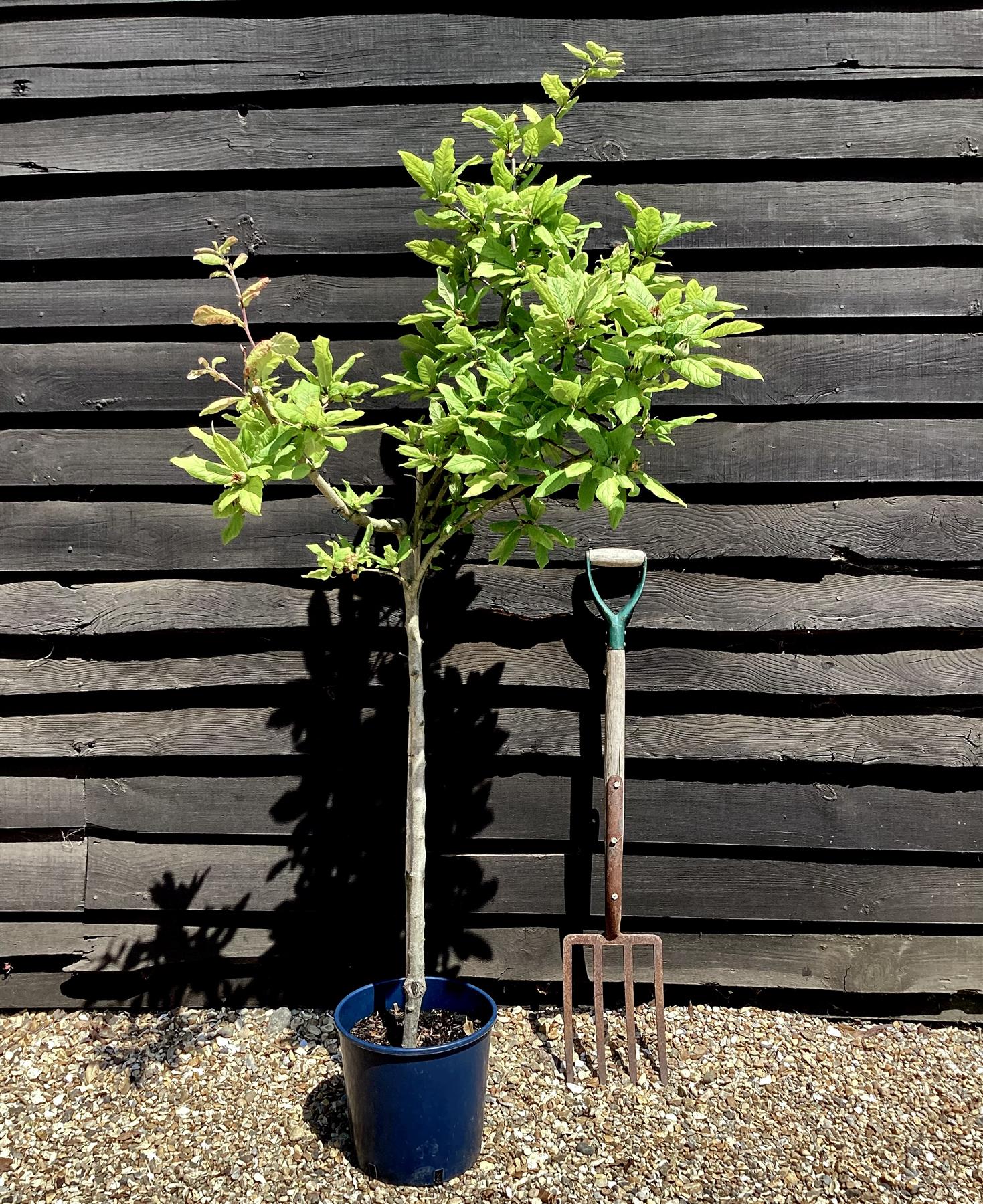
Medlar 'Nottingham' | Mespilus germanica - 150-160cm - 12lt
£72.00
Unit price perMedlar 'Nottingham' | Mespilus germanica - 150-160cm - 12lt
£72.00
Unit price perThe Medlar 'Nottingham' is a distinct fruit tree, revered for its historical importance and its production of unusual, tangy fruits. Originating from the species Mespilus germanica, this tree is renowned for its hardiness and minimal maintenance needs, making it an appealing choice for both novice and experienced gardeners.
Growing to a moderate size with a compact habit, the Medlar 'Nottingham' is ideal for smaller gardens, yielding large, russeted fruits that are not only ornamental but also edible once they undergo a process called bletting, in which the fruits are allowed to overripen, developing a sweet and tart flavor profile.
During spring, this tree is a visual delight, adorned with large, white, ornate blossoms that attract pollinators, adding ecological value to the garden ecosystem. Its leaves are deciduous and exhibit a stunning autumnal color display, providing year-round interest in the landscape.
The rich cultural and culinary history of the Medlar 'Nottingham' dates back centuries, with references in literature and historical texts underscoring its esteemed status in bygone eras. While not as commonly grown today, it remains a valued specimen for those interested in heritage fruits and traditional gardening practices. The fruits, which are known for their unique taste and texture, can be used in a variety of culinary applications, including jellies, jams, and desserts, making the Medlar 'Nottingham' a multifaceted addition to the garden.
Pear Conference | Pyrus communis - Height 150-180cm, 10lt
£72.00
Unit price perPear Conference | Pyrus communis - Height 150-180cm, 10lt
£72.00
Unit price perCherry 'Stella' half-standard | Prunus avium - Height 160-180cm - 12lt
£72.00
Unit price perCherry 'Stella' half-standard | Prunus avium - Height 160-180cm - 12lt
£72.00
Unit price perThe 'Stella' cherry is a highly popular, self-fertile sweet cherry variety, renowned for its adaptability to various soil types and climates, making it a favorable choice for a range of environments. A half-standard 'Stella' denotes a specific tree form, with a clear stem/trunk beneath a bushy, well-branched crown, typically reaching heights of about 10-15 feet.
Originating from Canada, the 'Stella' cherry tree produces luscious, dark-red to almost black, heart-shaped fruits, known for their succulent, sweet, and rich flavor, making them excellent for fresh eating, baking, and preserves. The fruits generally mature around mid-summer, attracting gardeners keen on early harvests.
Apart from its culinary virtues, 'Stella' serves an ornamental purpose, exhibiting beautiful white blossoms in spring that are a feast to the eyes, contributing to the aesthetic value of gardens. This cherry variety is particularly suitable for smaller gardens or limited spaces due to its compact growth habit.
Being self-fertile means 'Stella' does not require another tree for pollination, which simplifies orchard management and enhances its appeal for home gardeners. However, planting it with other varieties can potentially improve fruit yield and quality. Care considerations include regular watering, pruning, and monitoring for pests and diseases.
Pear 'Doyenne du Comice' | Pyrus communis - 150-180cm - 12lt
£72.00
Unit price perPear 'Doyenne du Comice' | Pyrus communis - 150-180cm - 12lt
£72.00
Unit price perPear 'Beurre Hardy' | Pyrus communis - 150-160cm - 12lt
£72.00
Unit price perPear 'Beurre Hardy' | Pyrus communis - 150-160cm - 12lt
£72.00
Unit price perPlum tree 'Oullins Gage' | Prunus domestica - 150-160cm - 10lt
£72.00
Unit price perPlum tree 'Oullins Gage' | Prunus domestica - 150-160cm - 10lt
£72.00
Unit price perApple tree 'Idared' | Malus domestica - 150-160cm - 10lt
£72.00
Unit price perApple tree 'Idared' | Malus domestica - 150-160cm - 10lt
£72.00
Unit price perApple tree 'Gala' | Malus Domestica - 150-180cm - 10lt
£72.00
Unit price perApple tree 'Gala' | Malus Domestica - 150-180cm - 10lt
£72.00
Unit price perMalus Domestica 'Gala' is a popular apple cultivar known for its crisp, juicy, and sweet flavor. The Gala apple was first developed in New Zealand in the 1930s and has since become one of the most widely cultivated apples in the world.
The fruit has a distinctive red and yellow skin with a creamy white flesh. It is typically medium to large in size and has a slightly conical shape. The skin of the Gala apple is thin and delicate, making it easy to bite into and chew. The flesh is firm and juicy, with a pleasant balance of sweetness and tartness.
Gala apples are versatile and can be used in a variety of ways. They are delicious eaten raw as a snack, but can also be used for cooking, baking, or juicing. Due to their sweetness and low acidity, they are particularly well-suited for making applesauce and apple juice.
The tree itself is moderately vigorous and bears fruit early in the season. It is known for its high yields and consistent fruit quality, making it a popular choice for commercial growers. The Gala apple is also a good choice for backyard orchards, as it is relatively easy to grow and maintain.
Overall, the Malus Domestica 'Gala' is a delicious and versatile apple cultivar that is enjoyed by apple lovers around the world.
Cherry tree 'Van' | Prunus avium 'Van' - 100-120cm - 10lt
£72.00
Unit price perCherry tree 'Van' | Prunus avium 'Van' - 100-120cm - 10lt
£72.00
Unit price perPrunus avium 'Van' is a deciduous fruit tree that produces delicious cherries. This variety is known for its large, firm, and sweet fruit that ripens in mid to late season. The cherries are dark red in color with a glossy finish and a crisp texture.
'Van' is a self-fertile cultivar, which means that it does not require another cherry tree for pollination. However, planting another cherry tree nearby can increase fruit production. The tree itself grows to be about 20-30 feet tall and wide and has a rounded shape with a dense canopy.
In the spring, the tree produces beautiful clusters of white flowers that attract pollinators such as bees and butterflies. It prefers full sun and well-draining soil, and it is generally easy to care for.
Prunus avium 'Van' is a great choice for a home orchard or garden, as it produces a bountiful harvest of delicious cherries that can be eaten fresh, used for baking, or preserved for later use. Its attractive appearance and pollinator-friendly flowers also make it a lovely addition to any landscape.
Cherry tree 'Lapins' | Prunus avium 'Cherokee' - 100-120cm - 10lt
£72.00
Unit price perCherry tree 'Lapins' | Prunus avium 'Cherokee' - 100-120cm - 10lt
£72.00
Unit price perPrunus avium 'Cherokee' is a popular cultivar of sweet cherry trees known for its large, dark red fruit and its hardiness. This deciduous tree typically reaches a height of 15-25 feet and a spread of 10-15 feet, with a rounded crown of dark green leaves that turn yellow in the fall. The fruit produced by 'Cherokee' cherry trees is sweet and juicy, with a firm texture that makes it ideal for eating fresh, baking, or preserving.
'Cherokee' cherry trees are self-fertile, meaning they can produce fruit without the need for a second tree for cross-pollination. They are also adaptable to a variety of soil types, including sandy, loamy, and clay soils, as long as they are well-drained. These trees prefer full sun and moderate watering, and can tolerate cold temperatures down to -20 degrees Fahrenheit.
Overall, Prunus avium 'Cherokee' is a beautiful and productive cherry tree that is easy to care for and provides delicious fruit. It is an excellent choice for home orchards, landscape plantings, or commercial production.
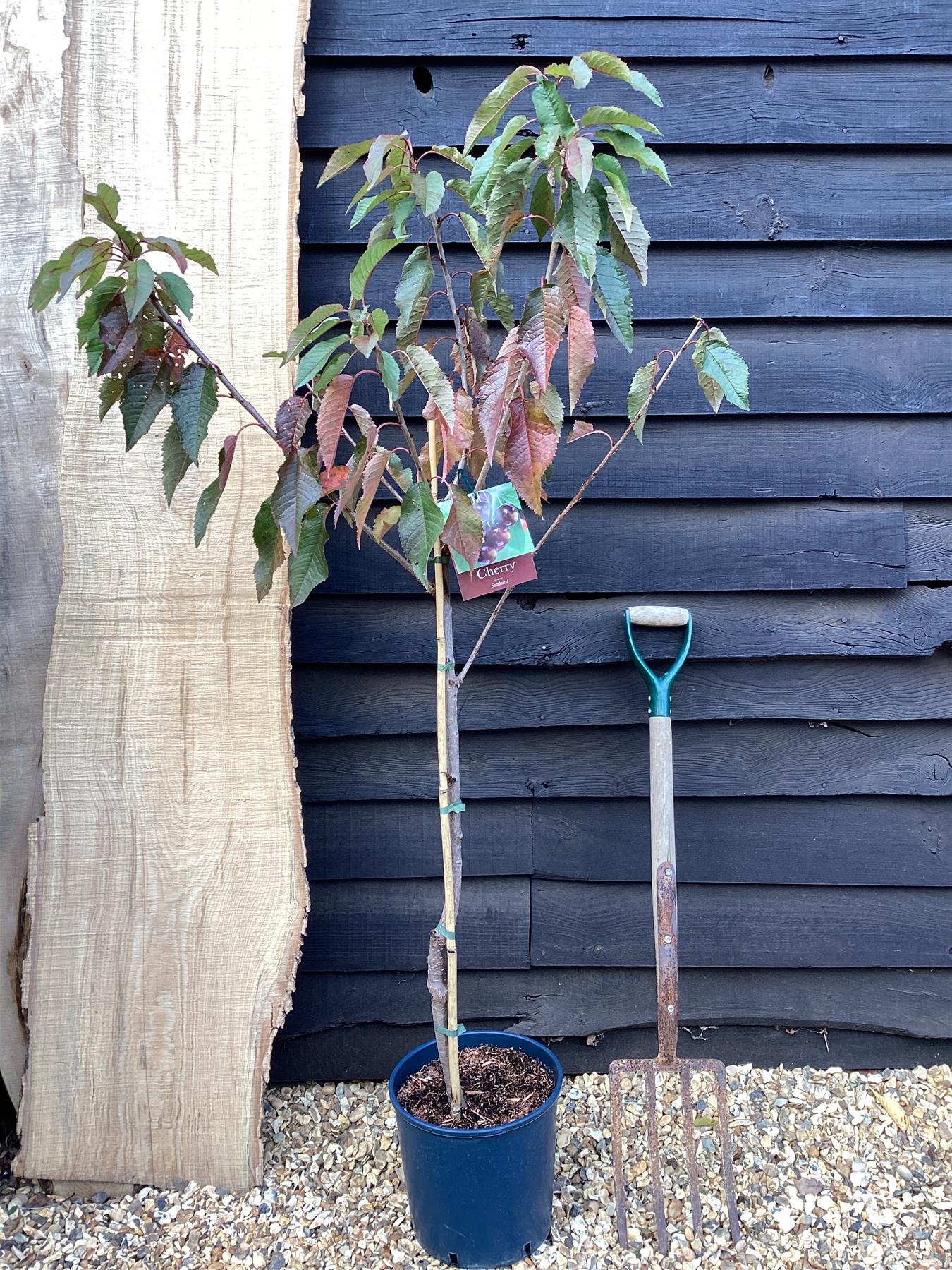
Cherry 'Sunburst' on Colt | Prunus Avium - Semi-Dwarfing - 160-170cm - 12lt
£72.00
Unit price perCherry 'Sunburst' on Colt | Prunus Avium - Semi-Dwarfing - 160-170cm - 12lt
£72.00
Unit price perThe Cherry 'Sunburst' grafted onto Colt rootstock is a distinguished fruit tree, valued for its prolific production of large, sweet, dark-red to near-black cherries, popular in culinary applications for their rich flavor. The 'Sunburst' variety is known for its self-fertility and is often praised for its excellent, robust yields and resilience to variable climates.
Colt rootstock is esteemed in horticulture for its compatibility with various cherry varieties, offering enhanced vigor and adaptability to less-than-ideal soil conditions, including those of poor drainage and fertility. It’s specifically chosen for its ability to induce early fruiting, promote impressive yields, and impart increased hardiness to the plant, allowing it to withstand unfavorable weather conditions. Moreover, it’s valued for imparting a semi-dwarfing effect, aiding in manageable tree sizes for convenient harvesting and maintenance.
This combination of 'Sunburst' and Colt rootstock is particularly beneficial for gardeners seeking a resilient and productive cherry tree, as it exemplifies a harmonious balance of fruitful bounty and hardy robustness. The disease resistance of this rootstock adds another layer of appeal, minimizing susceptibility to common cherry diseases, ensuring healthier, more bountiful harvests.
In essence, Cherry 'Sunburst' on Colt rootstock is a versatile and reliable choice for those seeking to enjoy the delightful flavors of home-grown cherries, coupled with the assurance of hardiness and productivity.
Colt rootstock is a popular choice for cherry trees, offering a semi-dwarfing size that reaches about 70-80% the height of standard cherry trees. It's well-suited for heavier soils, providing good anchorage and resistance to bacterial canker. Colt enhances the tree's longevity and supports robust fruit yields, making it ideal for various cherry cultivars.
Apple tree 'Scrumptious' | Malus domestica - M26 - Dwarfing - 140-150cm - 10lt
£72.00
Unit price perApple tree 'Scrumptious' | Malus domestica - M26 - Dwarfing - 140-150cm - 10lt
£72.00
Unit price perMalus domestica 'Scrumptious' is an early-fruiting, dessert apple tree with ovate, dark green leaves and pale pink flowers blooming in spring. Flowers are followed by heavy crops of large, sweet, crisp, and aromatic apples with thin, red skin and tasty, white flesh, ready for harvesting in early autumn, usually September. Malus domestica 'Scrumptious' grows best in moderately fertile, moist, well-drained soils in full sun, but can adapt to a wide range of soils as long as they are well-drained. It can tolerate partial shade but the best cropping occurs if grown in full sun. It can withstand frost and, therefore, suitable for colder areas. Fairly resistant to pests and diseases. It is self-fertile and a good pollinator to other varieties. May require pruning and fruit thinning for better crops. Apple 'Scrumptious' is a modern English dessert apple, a cross between the Golden Delicious and the Discovery. Great option for small informal and cottage gardens and for growing in containers.
M26 is a semi-dwarfing rootstock (smaller than MM106) used for apple trees, particularly in orchards and home gardens. It produces trees 10-12 feet in height, making them easier to manage and harvest. M26 ensures early fruit production, good anchorage, and medium vigour. However, it requires staking during early years and is moderately susceptible to fire blight.
Eriobotrya japonica Shrub| Loquat, Japanese medlar - Low Shrub - Height 50-70cm - 25lt
£72.00
Unit price perEriobotrya japonica Shrub| Loquat, Japanese medlar - Low Shrub - Height 50-70cm - 25lt
£72.00
Unit price perEriobotrya japonica, also known as the loquat tree or bush, is a small evergreen tree that is native to southeastern China. It is a popular ornamental plant in gardens and landscapes due to its attractive foliage and bushy, fruiting habit.
The loquat tree grows to a height of 10 to 20 feet and has a spread of 10 to 15 feet. The leaves are large, glossy, and dark green, with a distinctive shape that is reminiscent of holly leaves. The tree produces fragrant, white or yellow flowers in late autumn or early winter, which are followed by small, yellow or orange, pear-shaped fruits in the spring.
The loquat fruit is sweet and tangy, with a flavor that is similar to a mix of peach, citrus, and mango. It is high in vitamin A, potassium, and fiber, and is commonly used in desserts, jams, and juices. The tree is also highly valued for its ornamental qualities, as its attractive foliage and fruit make it a popular choice for landscaping.
The loquat tree is easy to grow and requires little maintenance. It prefers full sun to partial shade and well-drained soil. It is relatively cold-hardy and can withstand temperatures as low as 10 degrees Fahrenheit. The tree can be pruned to maintain a compact shape, and is also adaptable to growing in containers.
Overall, Eriobotrya japonica is a versatile and attractive plant that is prized for both its ornamental and edible qualities. Its bushy, fruiting habit makes it a great addition to any garden or landscape.
Viburnum tinus Spirit - Clear Stem 75cm - Height 110cm - 7lt
£72.00
Unit price perViburnum tinus Spirit - Clear Stem 75cm - Height 110cm - 7lt
£72.00
Unit price perViburnum tinus ‘Spirit’ is an evergreen shrub valued for its attractive year-round foliage and clusters of delicate flowers, making it a popular choice for UK gardens. This compact variety is especially appreciated for its hardiness and ability to thrive in a wide range of soils and light conditions, from full sun to partial shade. Reaching an average height and spread of about 1.5 to 2 metres, it’s well-suited for hedging, borders, or as a standalone feature in smaller garden spaces.
The foliage of Viburnum tinus ‘Spirit’ is lush, dense, and a rich dark green, providing an excellent backdrop for its flowers. The leaves are oval-shaped with a leathery texture, adding structure and depth to garden displays. Flowering from late autumn through to early spring, it produces rounded clusters of small, star-shaped flowers that open in pale pink buds and gradually transition to a bright, creamy white. This long blooming period makes it especially valuable for providing colour and interest during the colder months when many other plants are dormant.
The flowers of Viburnum tinus ‘Spirit’ are followed by metallic blue-black berries, which ripen in spring and attract birds to the garden. These berries add an extra visual appeal and make the plant a good choice for wildlife-friendly gardens. The shrub is relatively low-maintenance, requiring only occasional pruning to maintain shape, and it’s resistant to most pests and diseases. Additionally, Viburnum tinus ‘Spirit’ is tolerant of coastal conditions, making it a resilient option for seaside gardens.
Overall, Viburnum tinus ‘Spirit’ is a versatile, robust, and decorative shrub that brings a mix of evergreen foliage, seasonal flowers, and attractive berries to any garden, ensuring year-round interest with minimal effort.
Quince 'Vranja' | Cydonia oblonga 'Vranja' - 150-160cm - 12lt
£72.00
Unit price perQuince 'Vranja' | Cydonia oblonga 'Vranja' - 150-160cm - 12lt
£72.00
Unit price perPear 'Williams' Bon Chretien' | Pyrus communis - 150-160cm - 12lt
£72.00
Unit price perPear 'Williams' Bon Chretien' | Pyrus communis - 150-160cm - 12lt
£72.00
Unit price perAspen | Populus tremula - Height 200-220cm - 4-5 years old - Feathered - Very well rooted -Pot Grown - 12lt
£72.00
Unit price perAspen | Populus tremula - Height 200-220cm - 4-5 years old - Feathered - Very well rooted -Pot Grown - 12lt
£72.00
Unit price perPot grown from seed here at the Arundel Arboretum, very well rooted and hardened.
Populus tremula, commonly known as the trembling aspen or quaking aspen, is a deciduous tree native to various regions across the Northern Hemisphere, including the United Kingdom. It belongs to the genus Populus and is renowned for its distinctive quivering leaves, which flutter in even the slightest breeze, giving rise to its evocative common names.
The trembling aspen typically reaches heights of 20 to 25 meters, although some specimens can grow taller under optimal conditions. Its slender trunk is often pale grey or white with black knots, and it tends to have a narrow crown with branches that ascend in a graceful, upward fashion.
One of the most striking features of the trembling aspen is its leaves. They are roughly triangular in shape with finely serrated edges, and they have a flat petiole that causes them to flutter and tremble in the wind. This unique characteristic helps to distinguish the tree from other species in its range.
In the spring, the trembling aspen produces catkins, which are long, drooping clusters of small flowers. These flowers are an important source of pollen for bees and other pollinators. Later in the season, the tree develops small, round fruits containing tiny seeds surrounded by cottony fluff, aiding in wind dispersal.
Trembling aspens typically thrive in moist, well-drained soils in locations such as riverbanks, wetlands, and mixed woodlands. They are relatively fast-growing and can colonize disturbed areas quickly, making them an important pioneer species in forest ecosystems.
In addition to their ecological significance, trembling aspens also hold cultural and historical importance. They feature prominently in folklore and mythology in various cultures, often symbolizing resilience, regeneration, and transformation.
Showing 90/786


